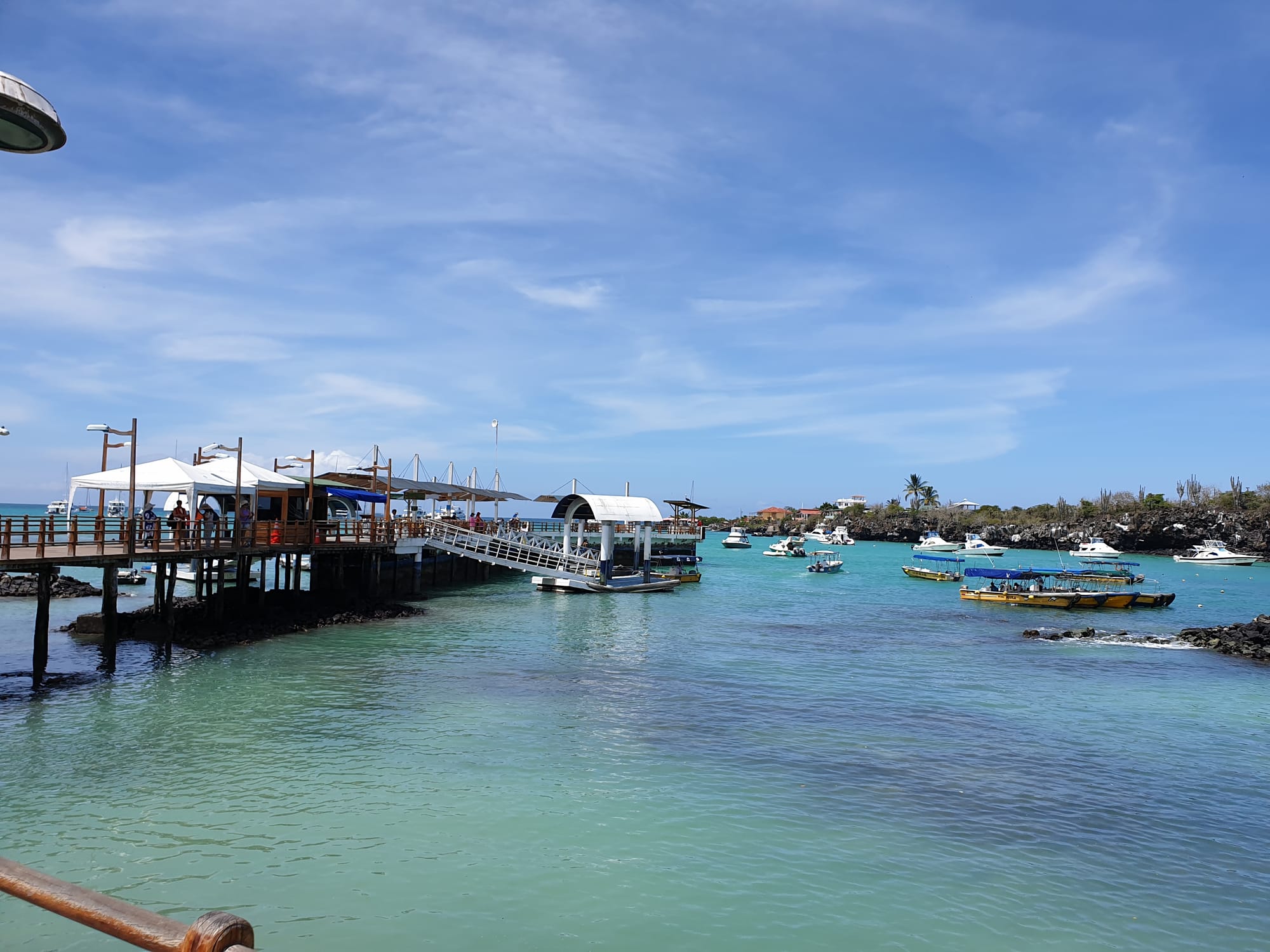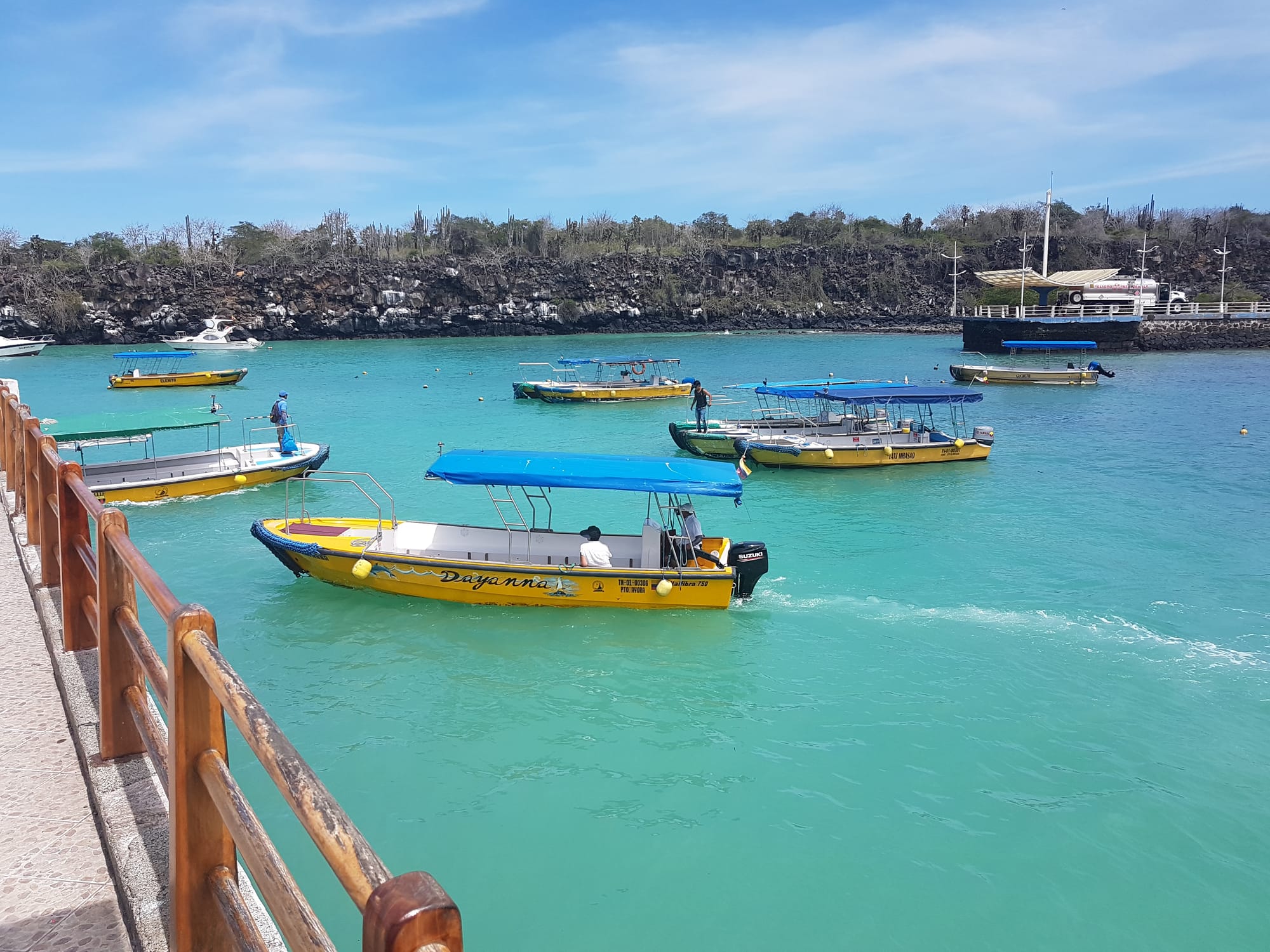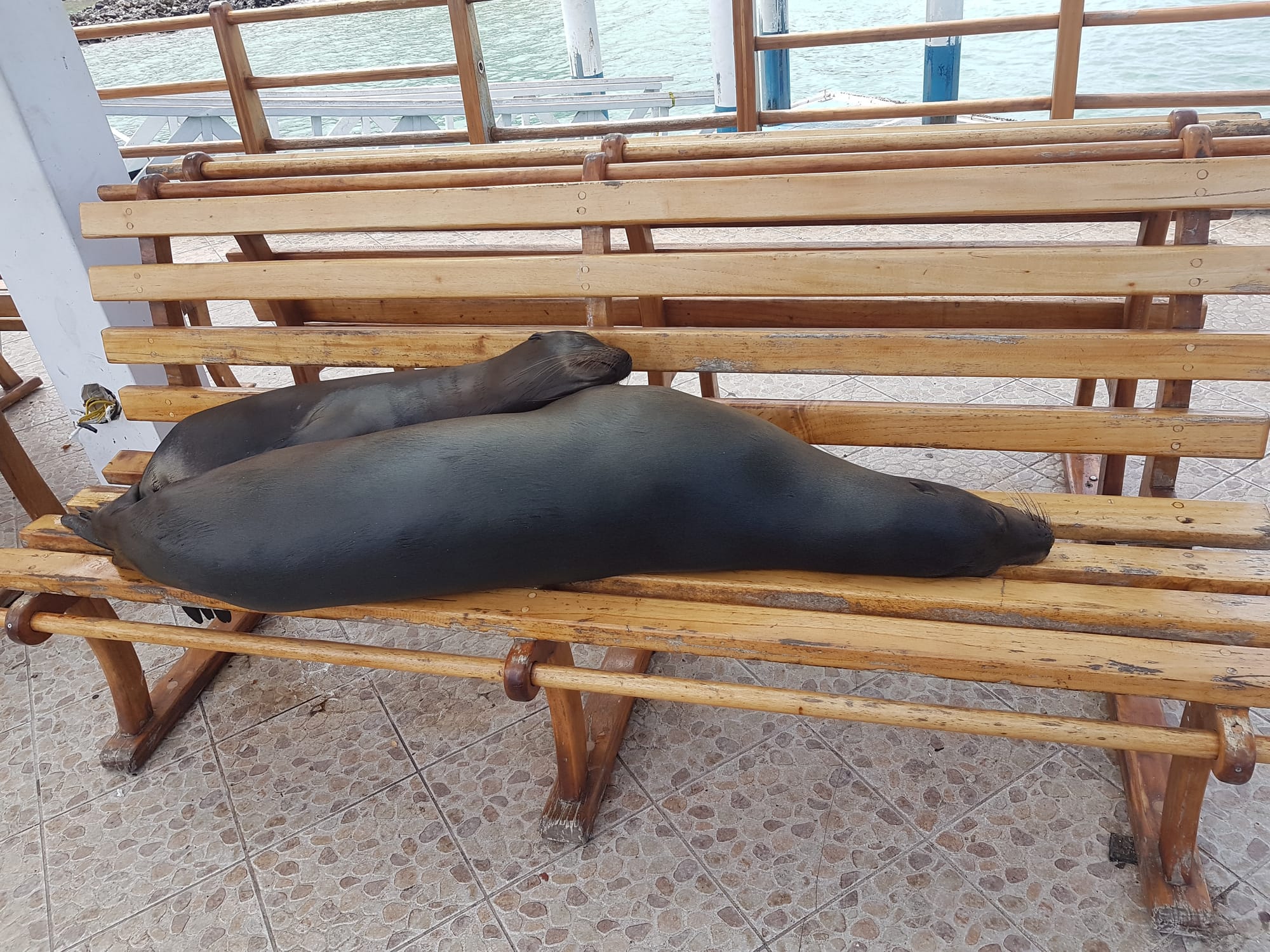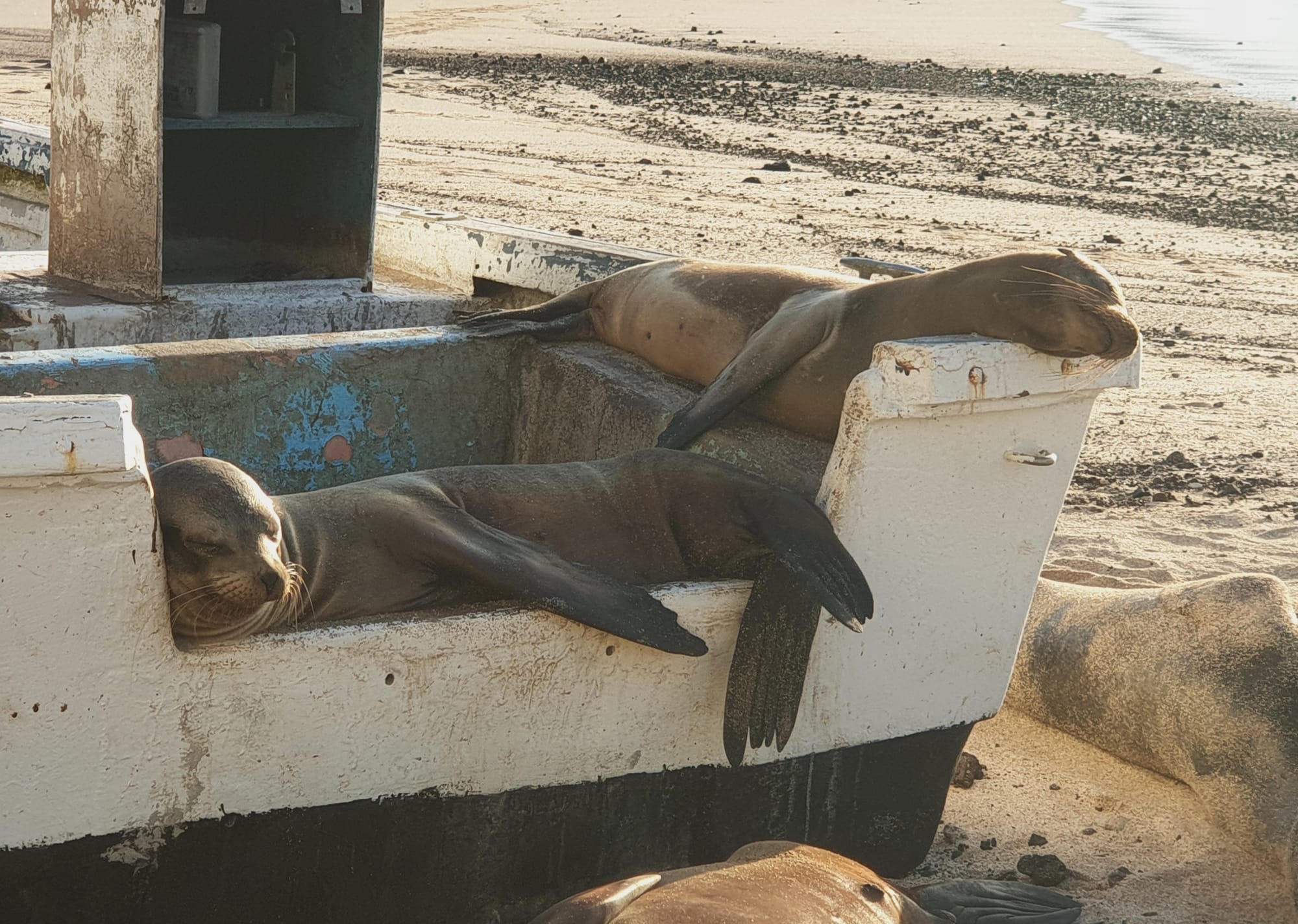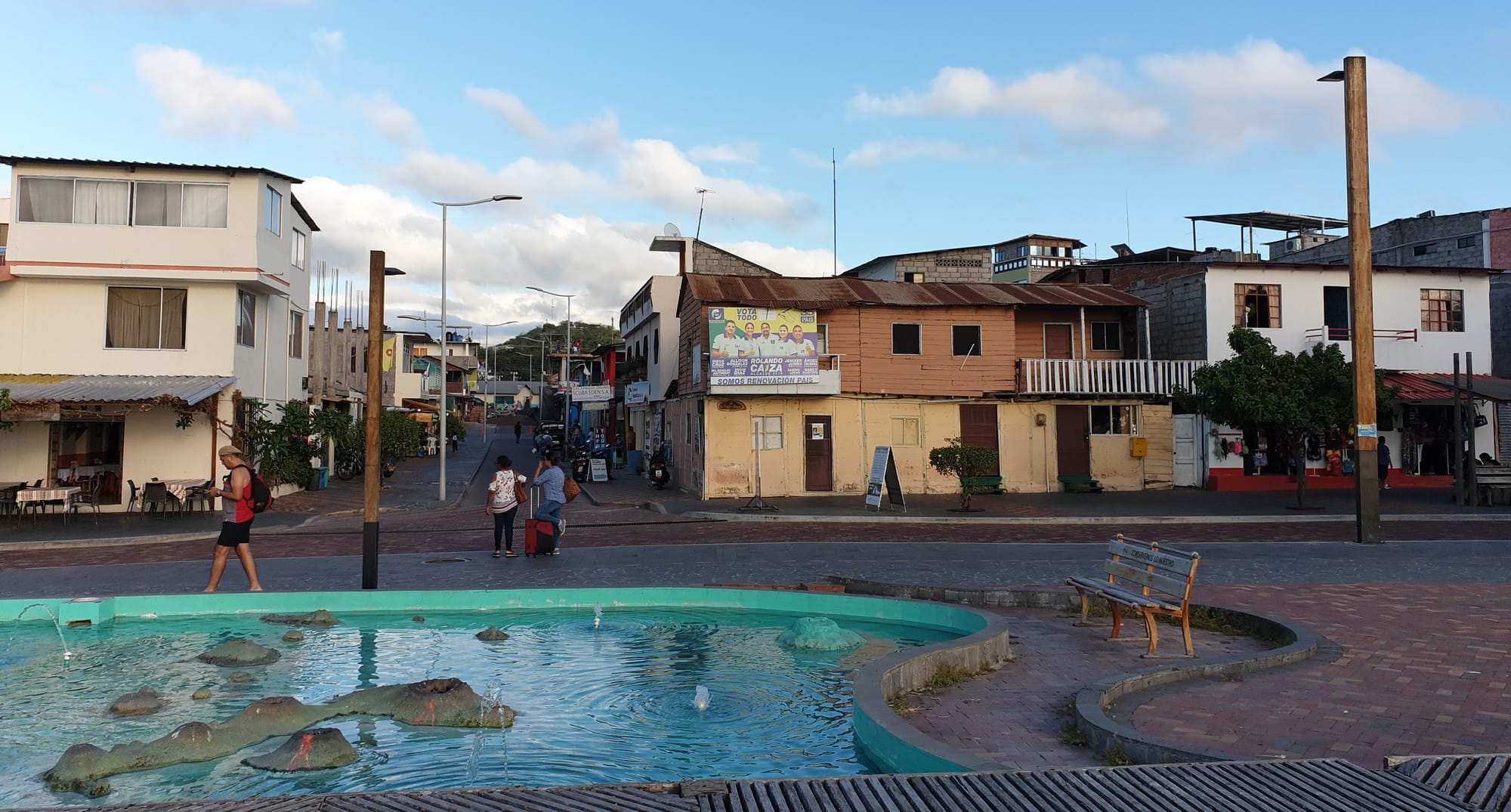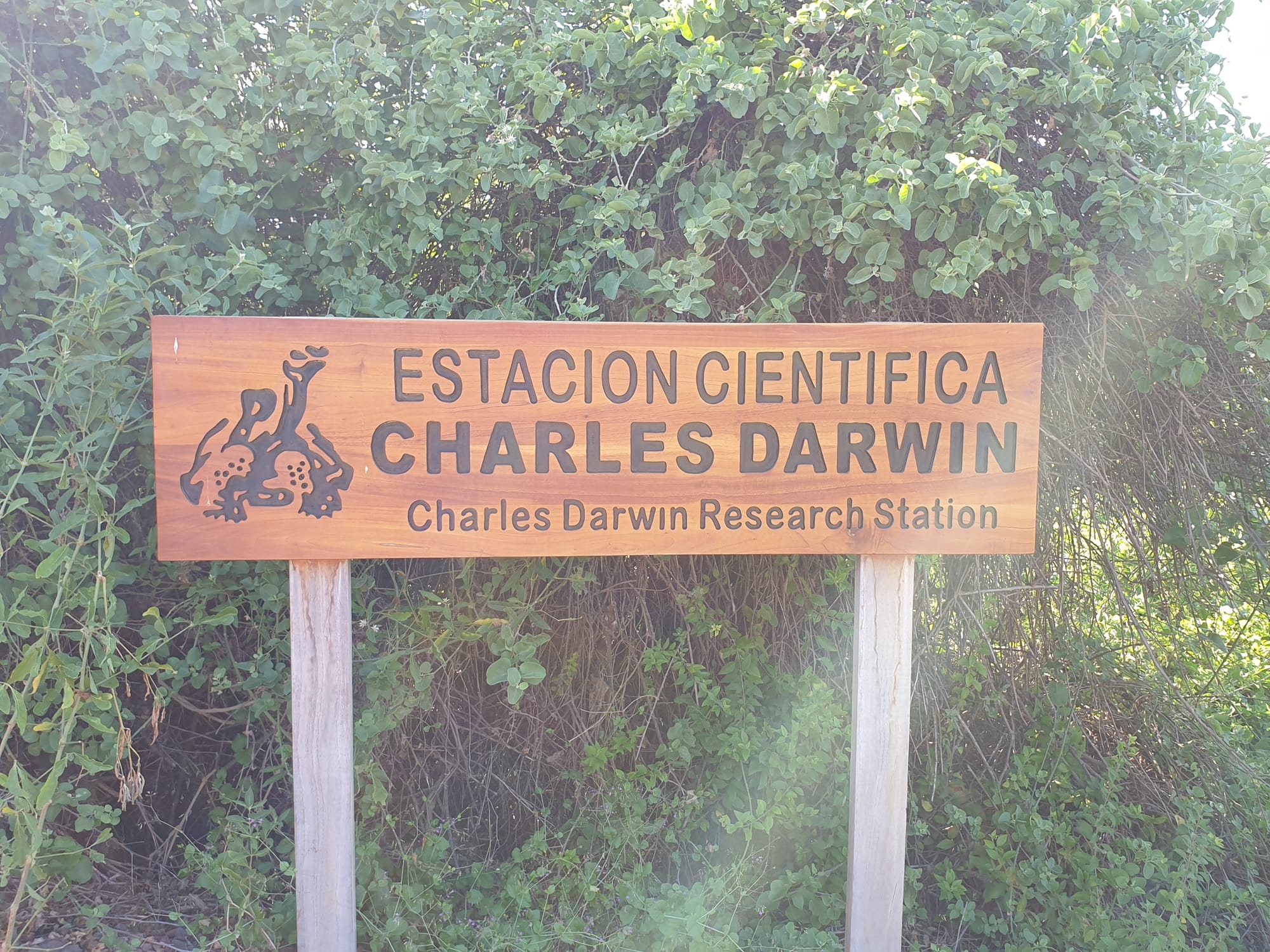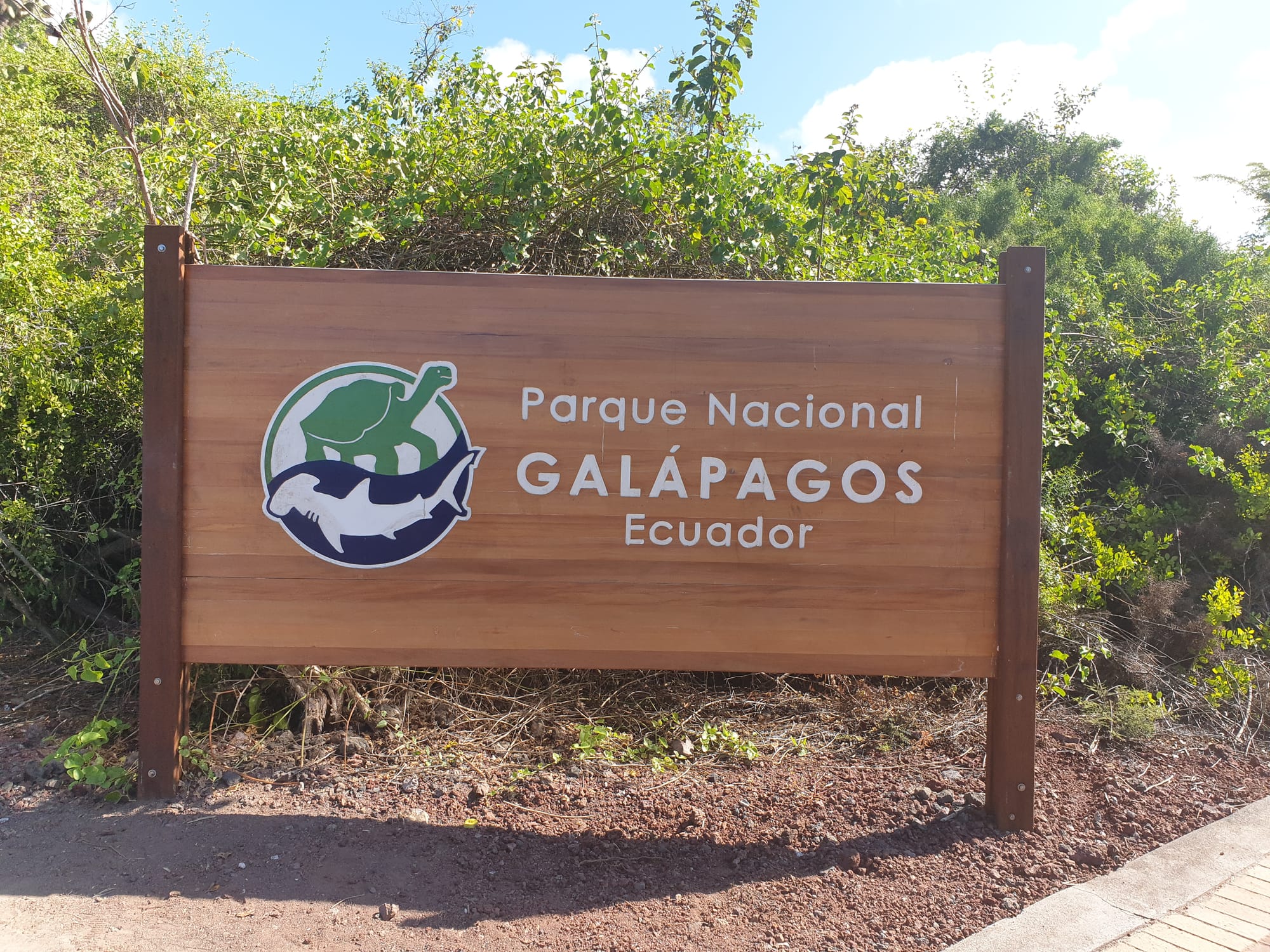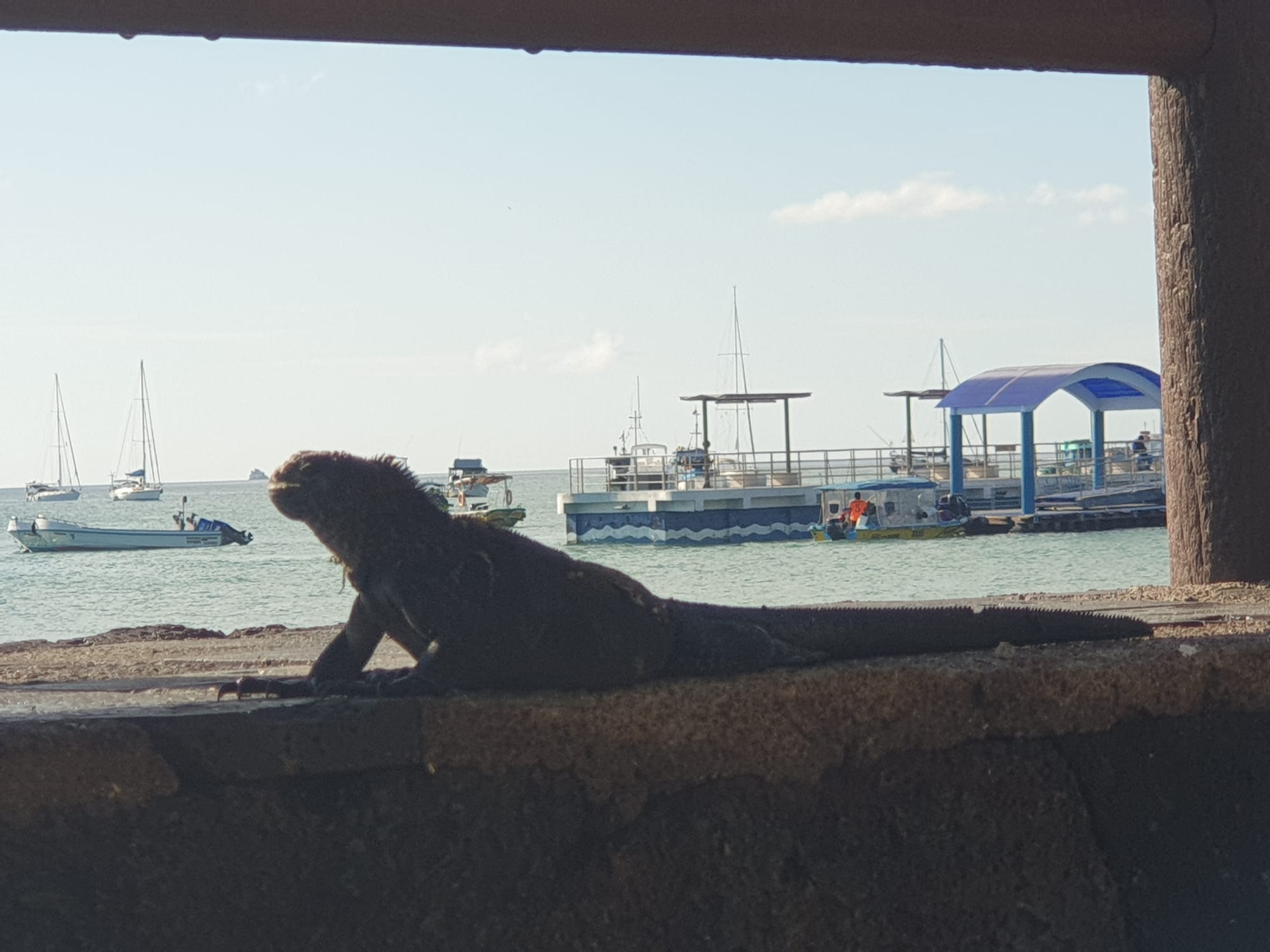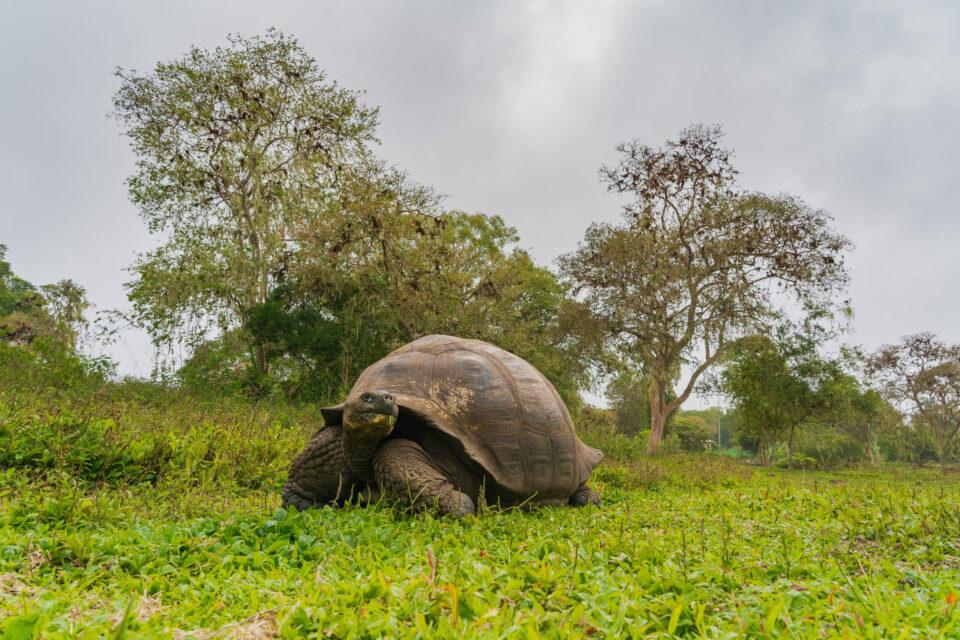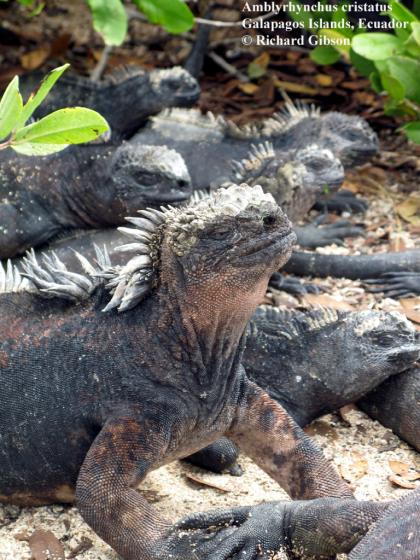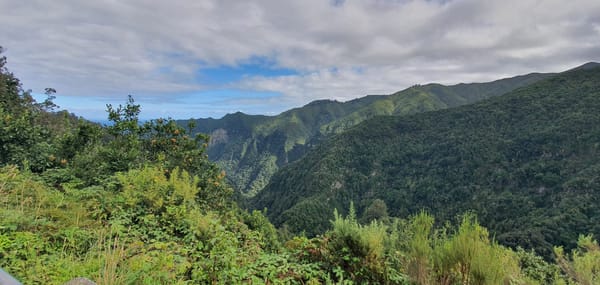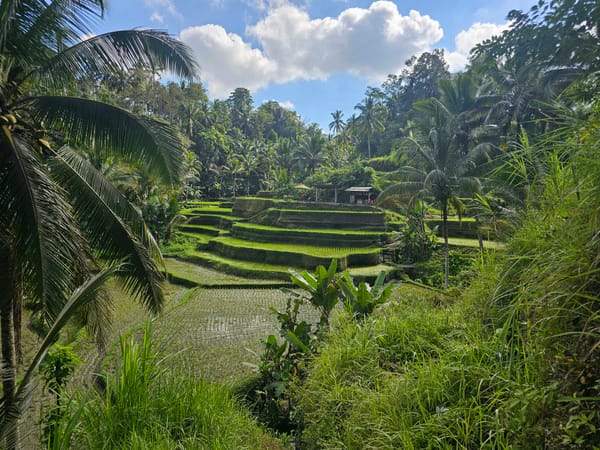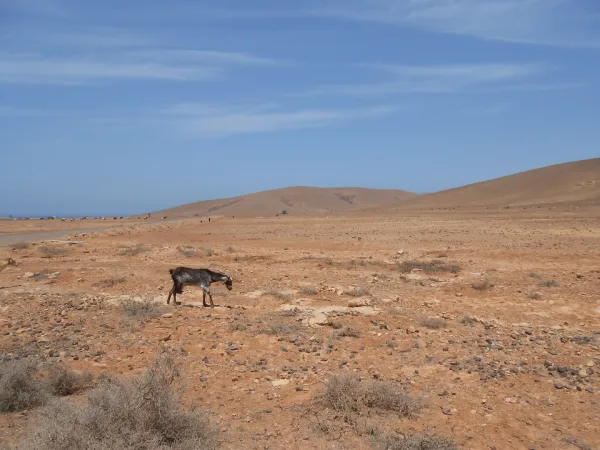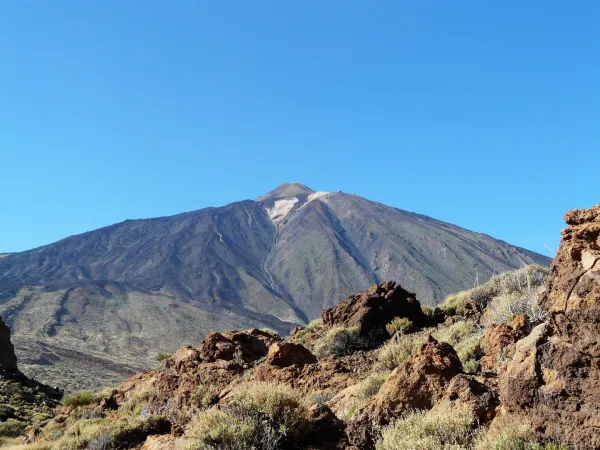Galapagos

Part 1 of: 22 days Galapagos Amazon Forest Cusco
Part 2 Peru
Part 3 Amazon Forest
London Heathrow – Bogota – Guayaquil – St. Cristobal – Guayaquil – Lima – Cusco – Lima -Bogota – London Heathrow
Airline: Avianca – tickets bought through Opodo, to order vegan meals I had to call Avianca but it was very easy, the meals were very simple, nothing fancy :). Overall, no problems, nice and easy.
Before the journey we booked:
Amazon visit with a small local company
Machu Pichu entry https://reservas.machupicchu.gob.pe
train tickets to Machu Pichu http://www.perurail.com
Galapagos ferries: https://book-ec.com/ferry/
and our accomodation through booking.com
Day 1 LHR Airport
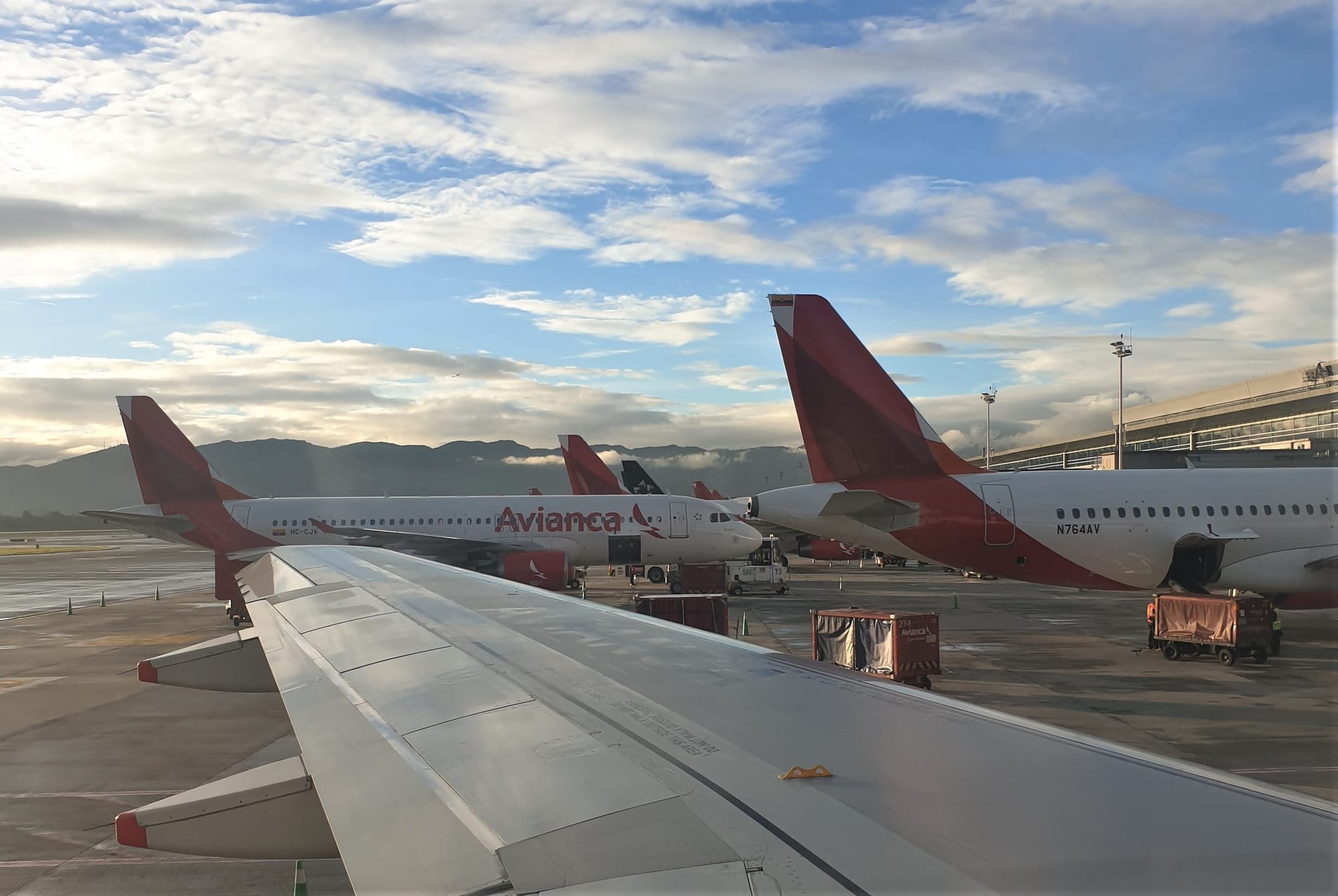
Day 2
Guayaquil, Ecuador – a very nice airport for a short break. Since the next flight was within the same country, we were able to go outside for a walk.
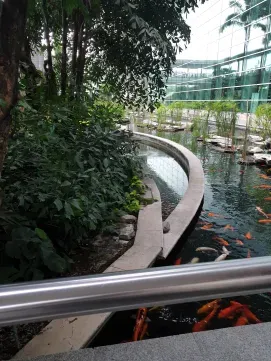
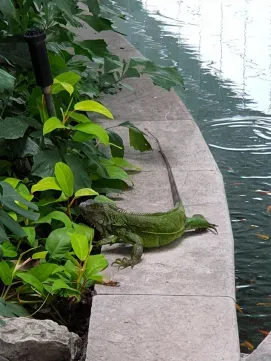
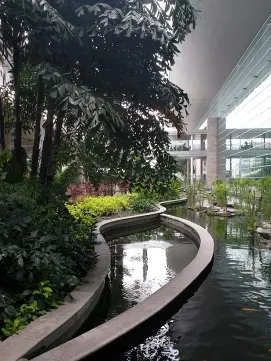
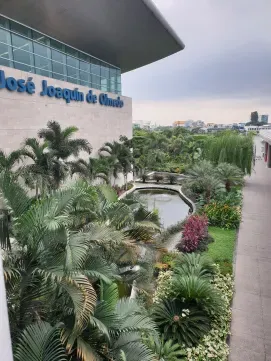

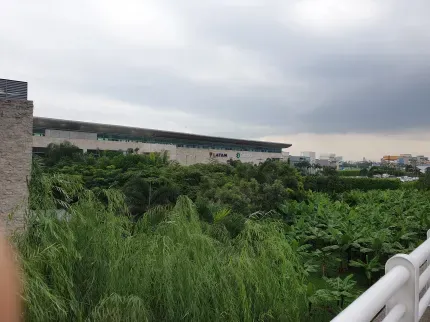
Iguana iguana Green Iguana
A few things to double check before travel to Galapagos:
The ticket flight from mainland Equador to Galapagos need to be return ticket. Tourists' bags are checked for restricted items by the Tourist Control and Certification (TCC) to ensure the preservation of the islands' unique environment and wildlife before checking in for your flight to Galapagos.
There is a Galapagos National Park entrance fee that is paid upon arriving in Galapagos.
The Galápagos Archipelago consists of 13 major islands and numerous smaller islands, islets, and rocks. The volcanic Galapagos has never been attached to another land mass most of the species here are endemic - species found nowhere else on earth. About 80% of the land birds, 97% of the reptiles and land mammals, more than 20% of the marine species andmore than 30% of the plants are endemic.
San Cristobal, Galapagos
Puerto Baquerizo Moreno
Puerto Baquerizo Moreno is the capital of Galápagos Province, Ecuador. It is located on the southwestern coast of San Cristóbal, the easternmost island in the archipelago, and is the capital of San Cristóbal Canton. Wikipedia
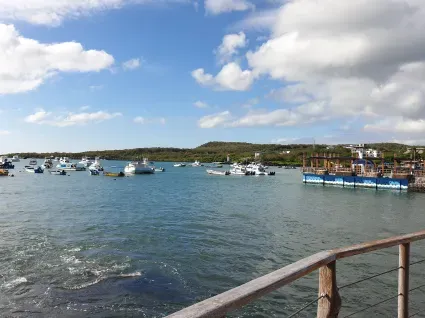
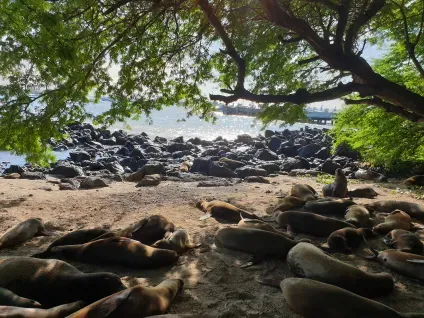
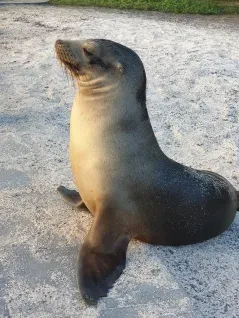
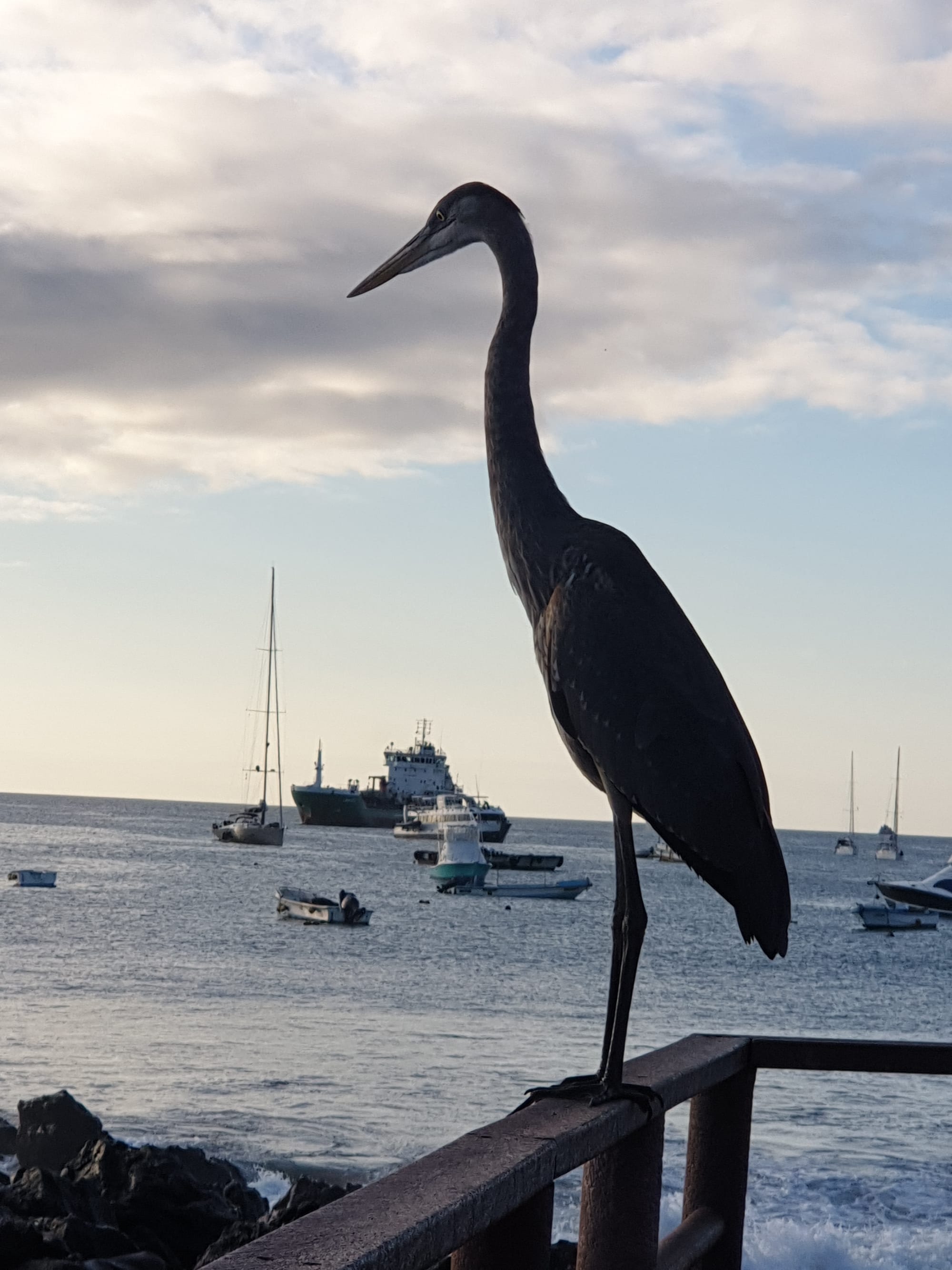
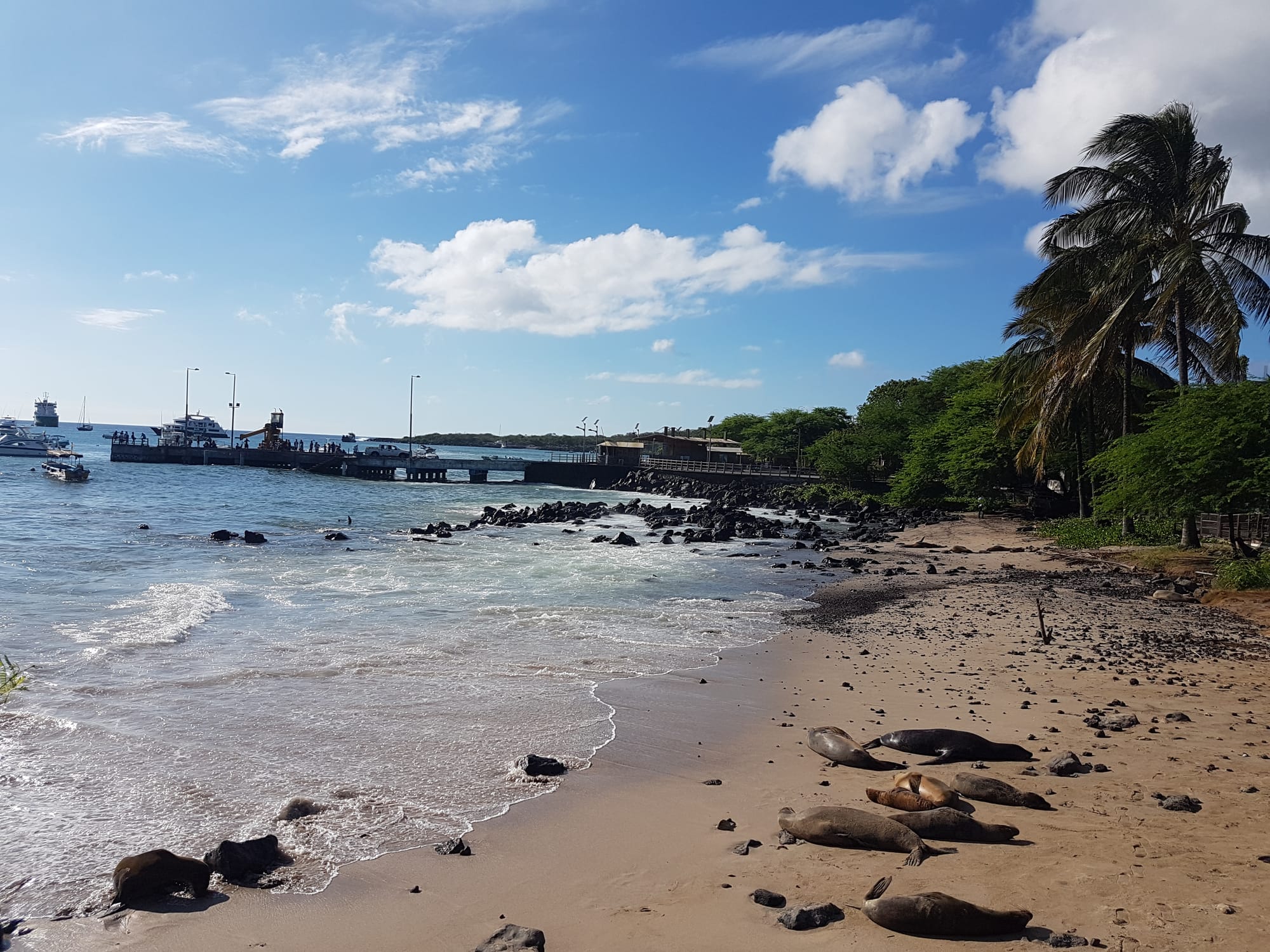
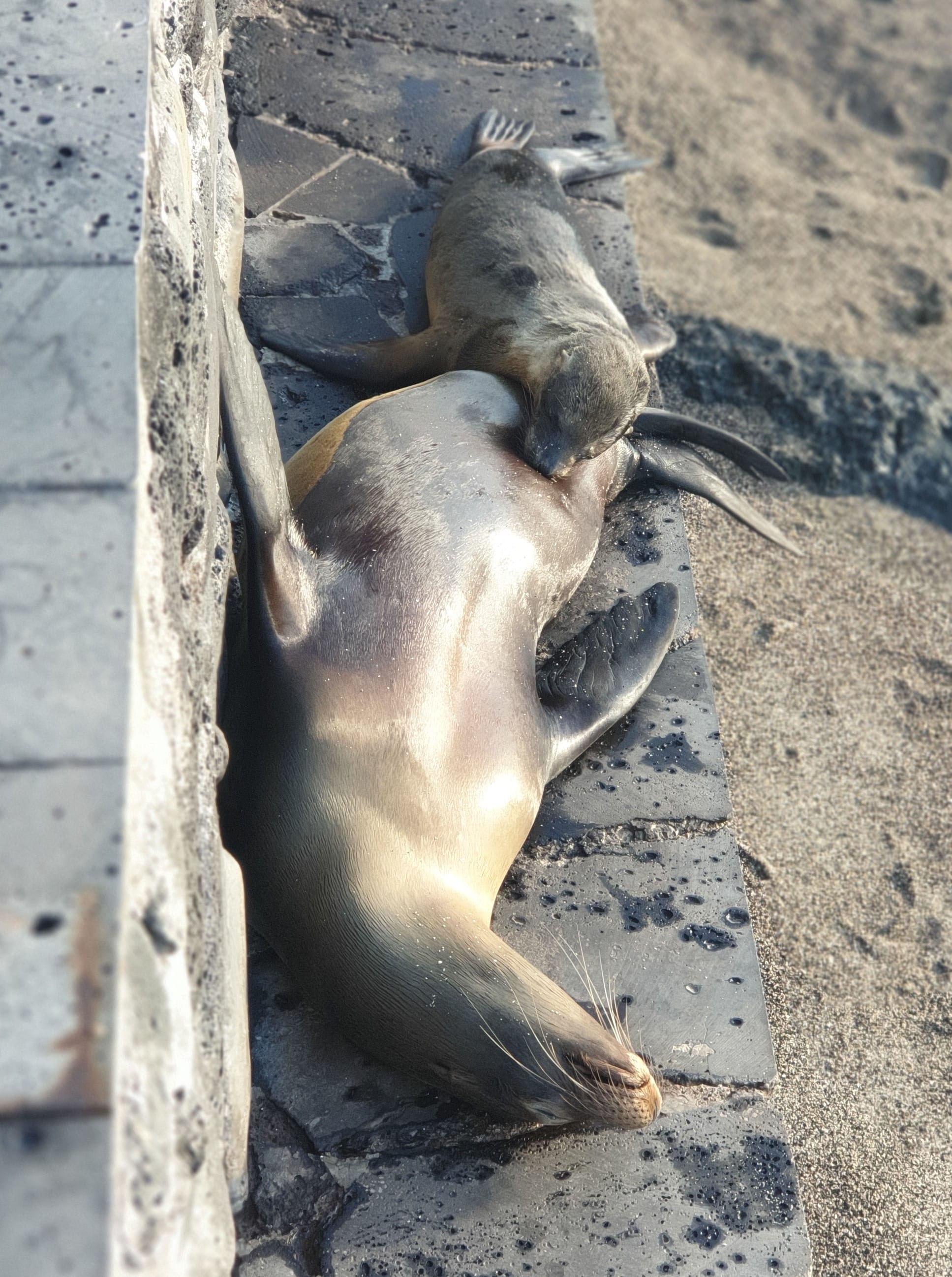
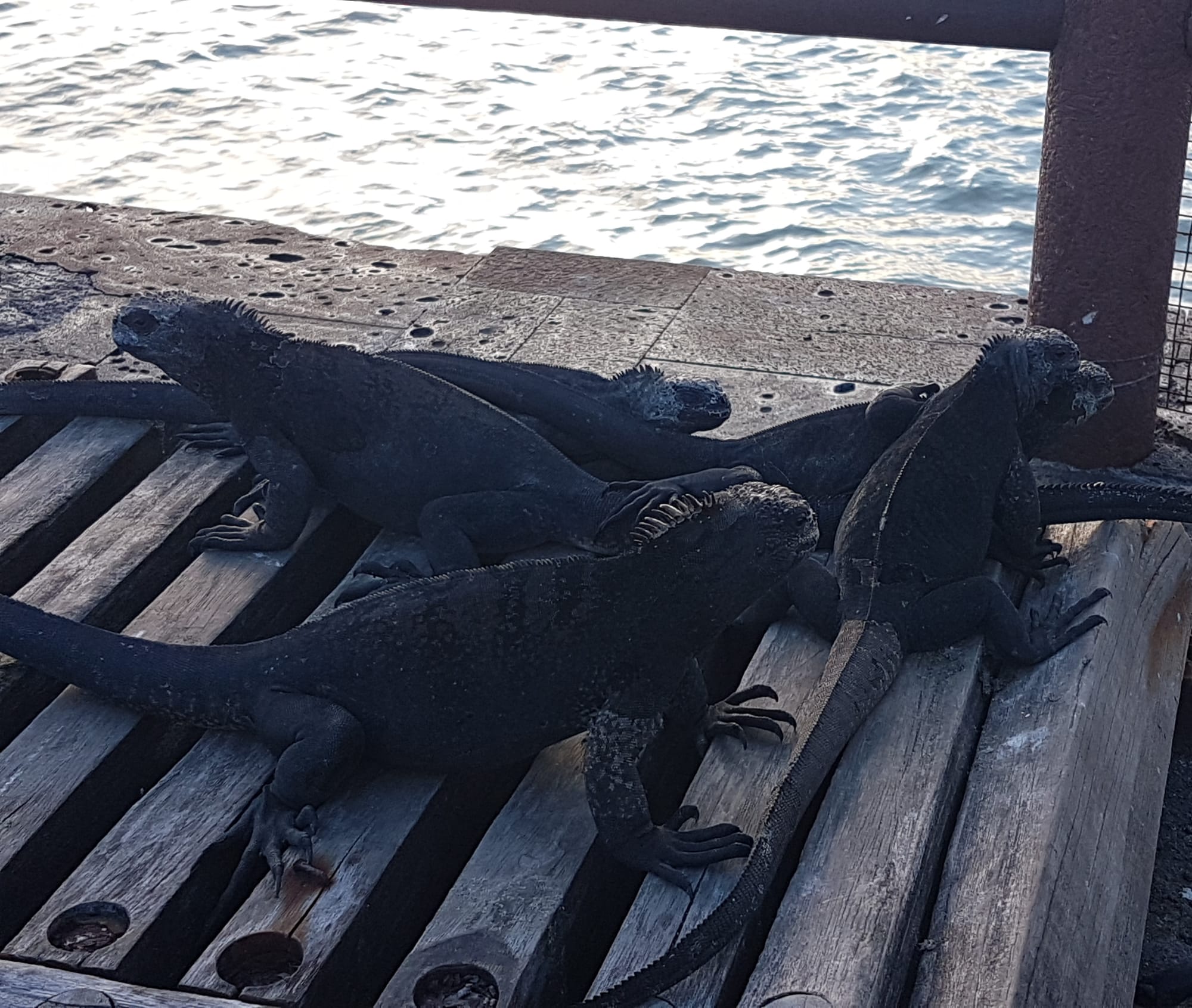
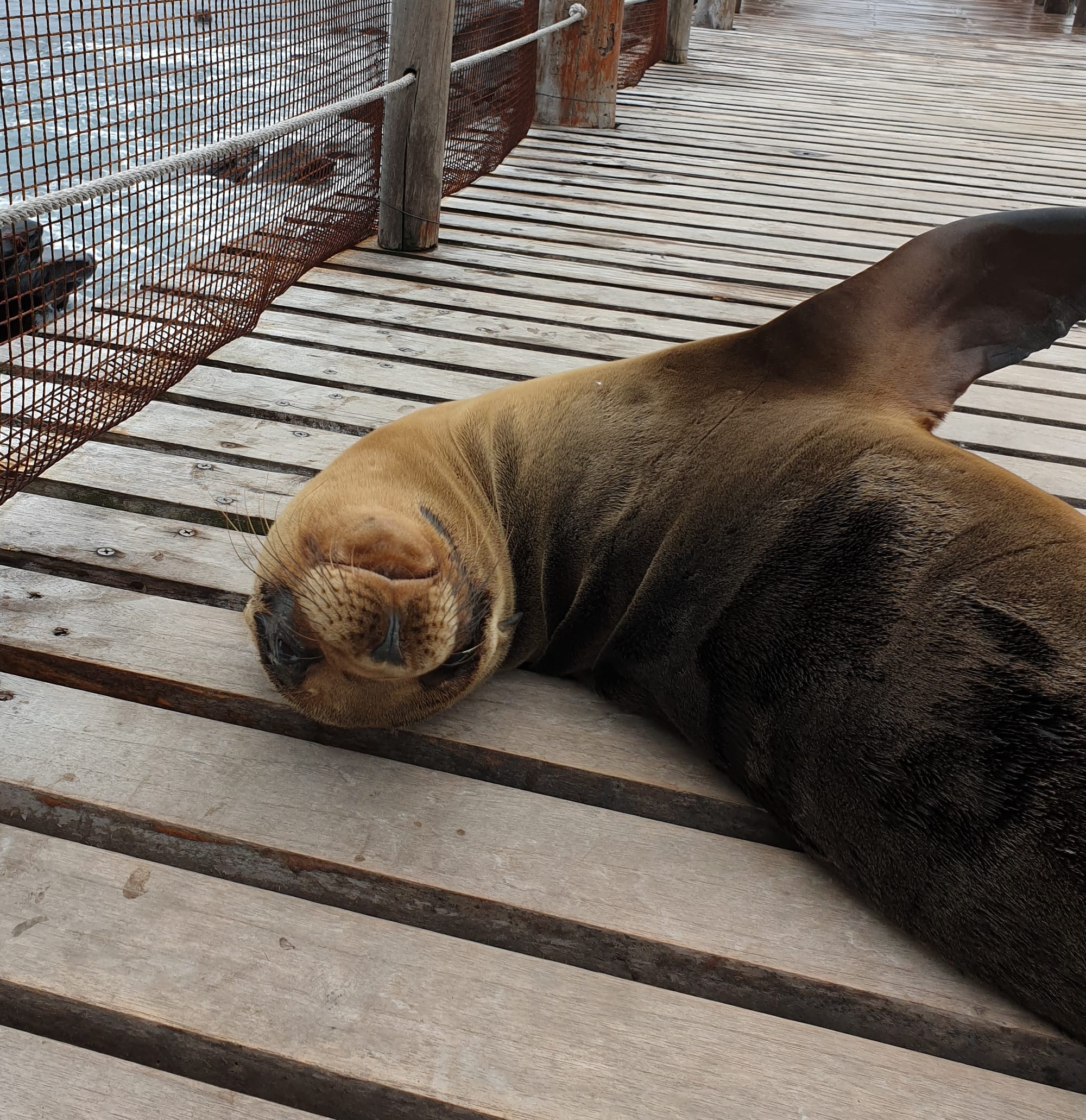
Ardea herodias aap. cognata Galapagos Great Blue Heron
Galapagos sea lion
Ardea herodias aap. cognata Galapagos Great Blue Heron The Galápagos sea lion Zalophus wollebaeki is a species that lives and breeds on the Galápagos Islands, and in smaller numbers on Isla de la Plata, Ecuador. It is the smallest of all sea lion species. Conservation Status: Endangered
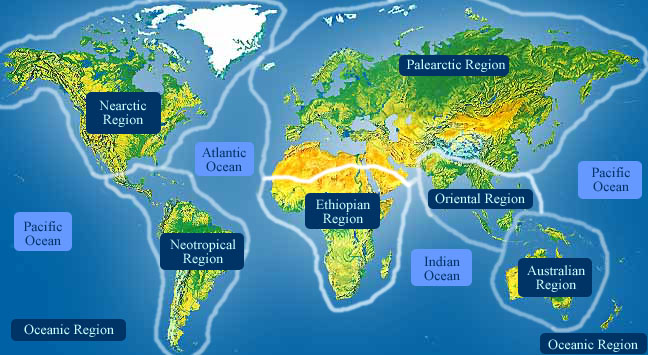
There are two small beaches in the town: Playa de Oro – full of sea lions, and Playa Mann – a nice but crowded beach right next to the Interpretation Center and the path to Cerro Tijeretas.
We visited the Interpretation Centre (visitor center), went up to Mirador Cerro Tijeretas, then down to Muelle Tijeretas, and ended up at Punta Carola.
Punta Carola
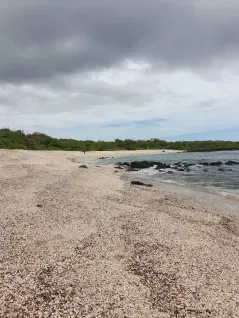
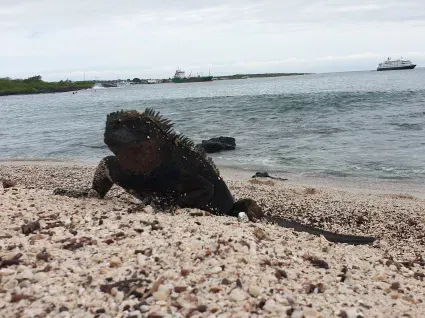
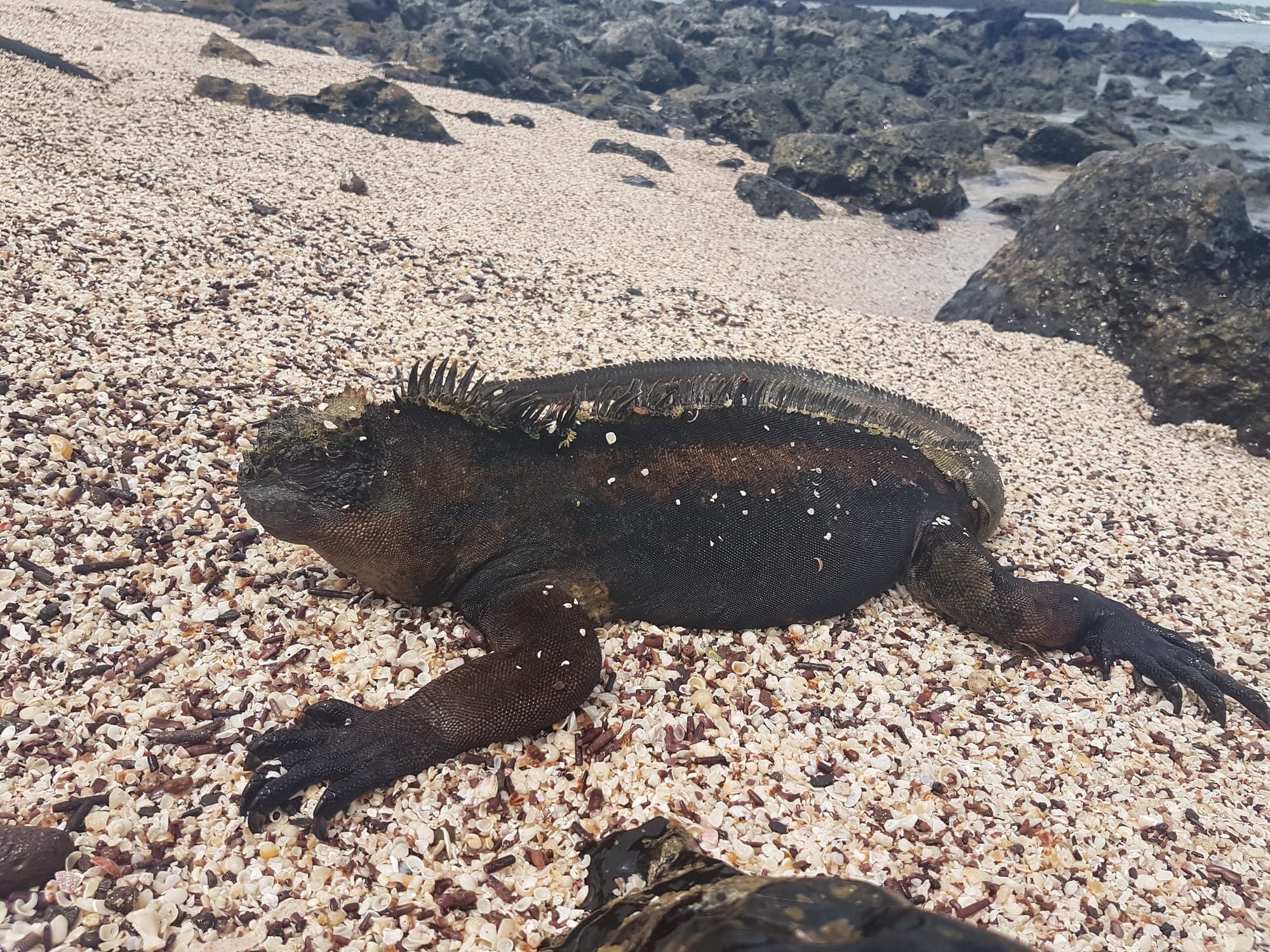
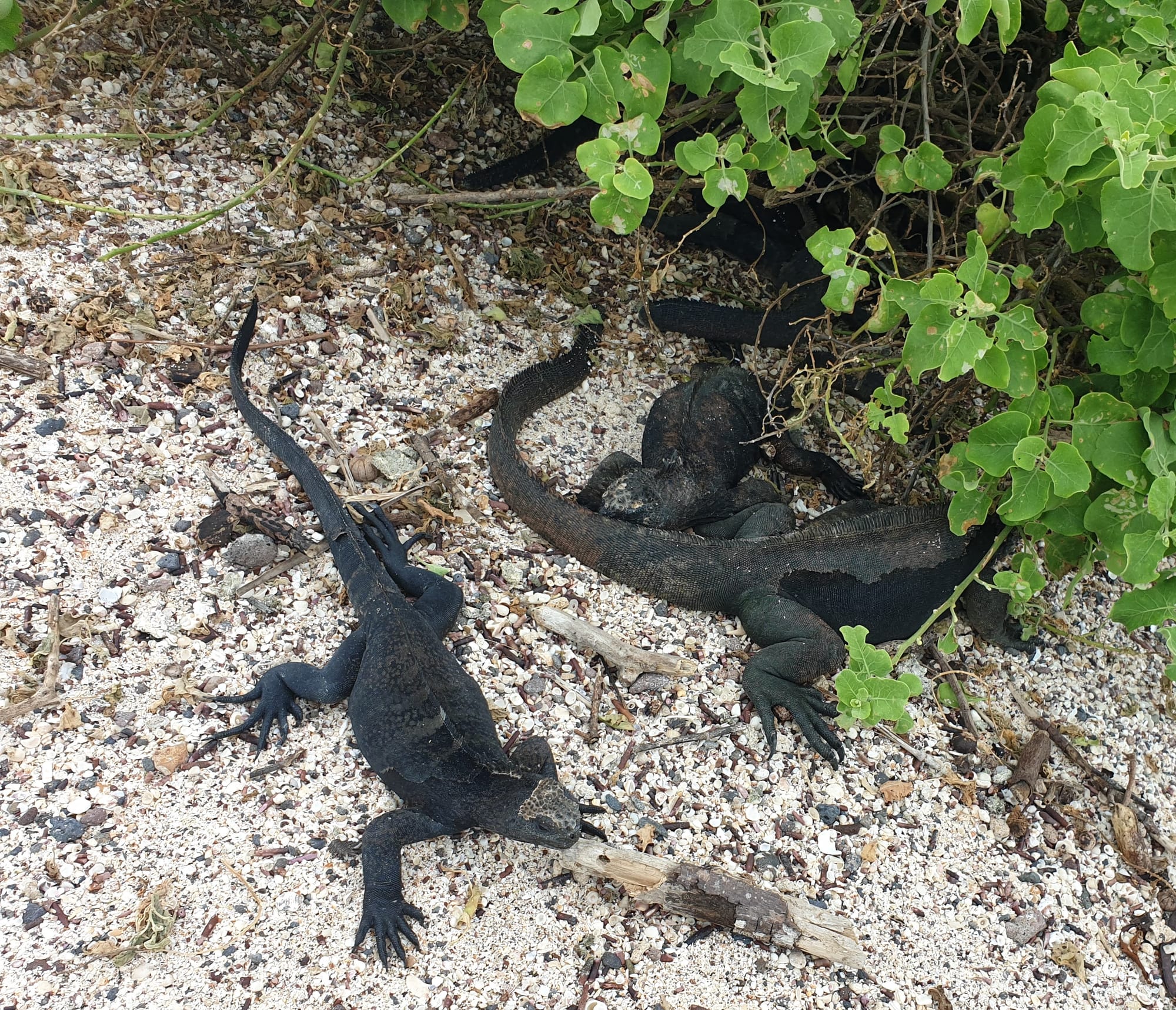
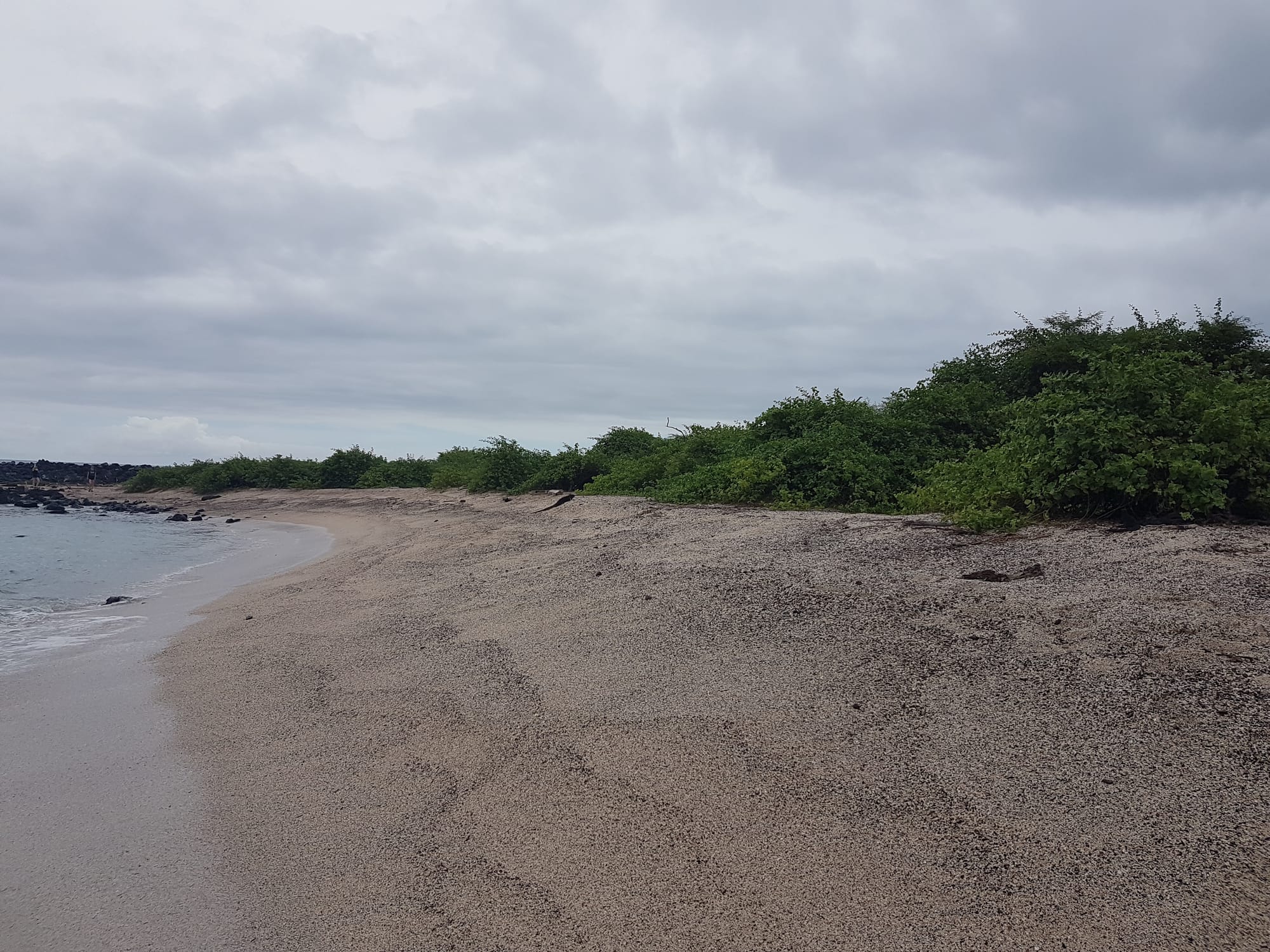
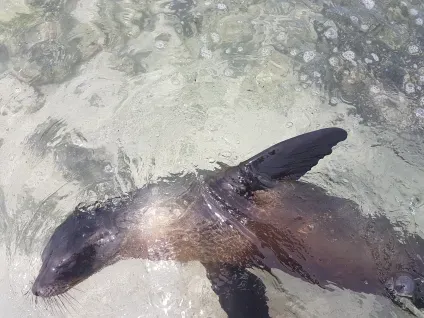
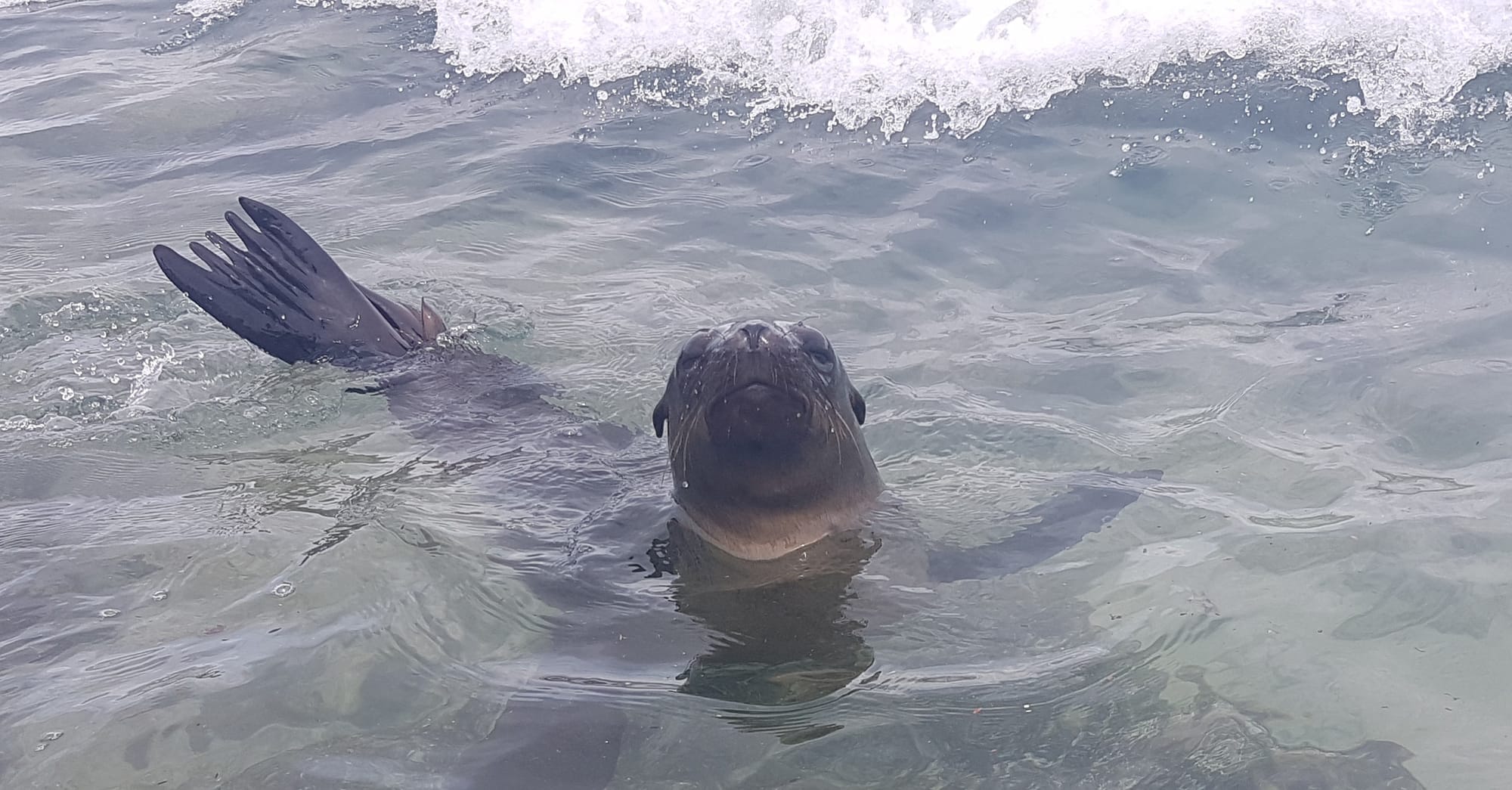
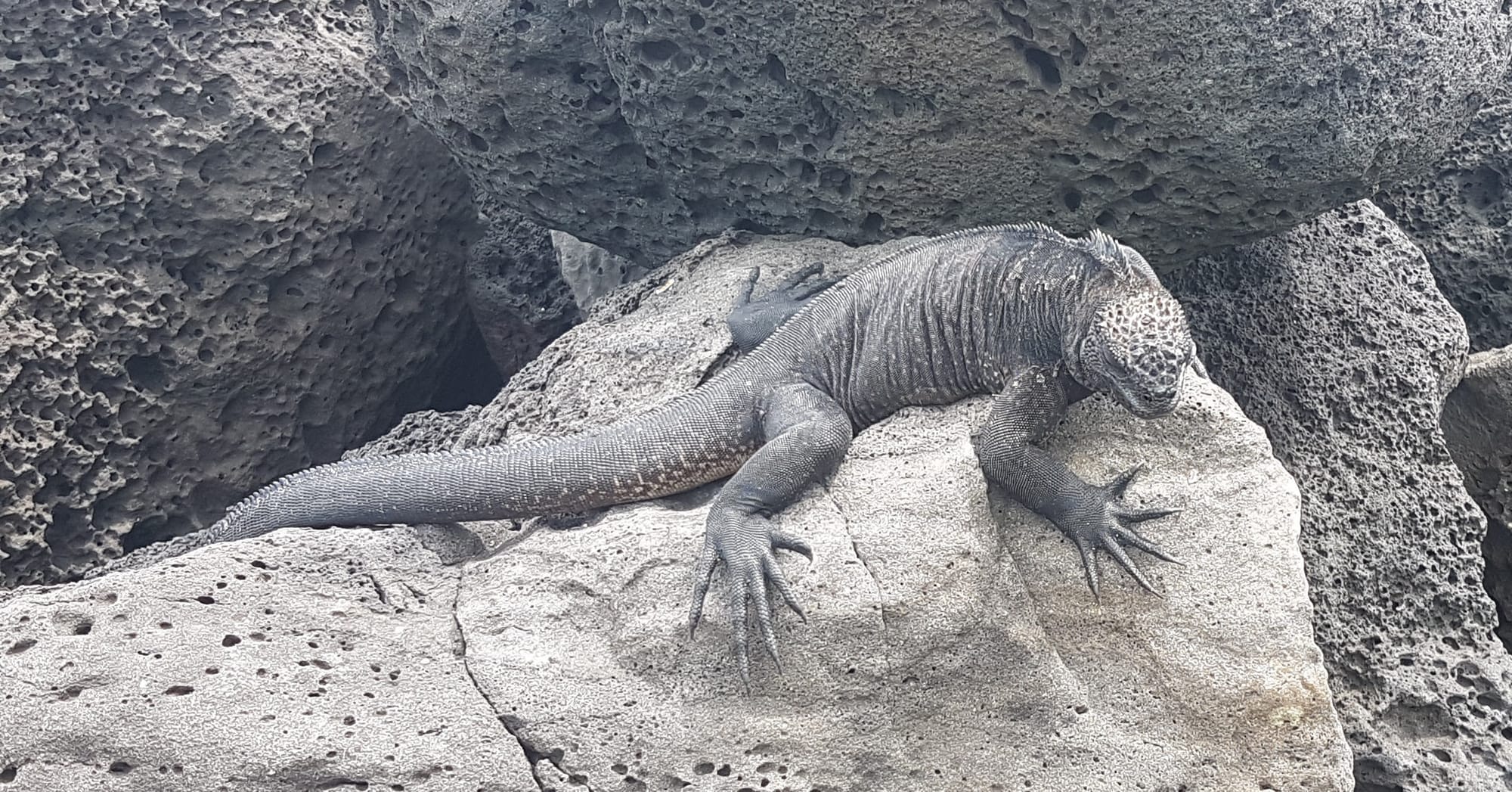
Marine iguana Amblyrhynchus cristatus is a species endemic to the Galapagos Islands
Amblyrhynchus cristatus mertensi Eibl-Eibesfeldt, 1962 – San Cristóbal Marine Iguana
Conservation status: Vulnerable

Marine iguanas are the only sea-going lizards in the world. They live on land and can't stay in cold water for long - only long enough to fill their bellies. They grazing on marine algae. "Marine iguanas are an excellent example of a species well-adapted and continuing to adapt to their environment." They have "a short, blunt nose that is well-adapted to feeding on algae growing on rocks" and " flattened tail perfect for swimming".
Young marine iguanas are black. Adult colours vary depending on the island: red and black, black, green, or red and grey.
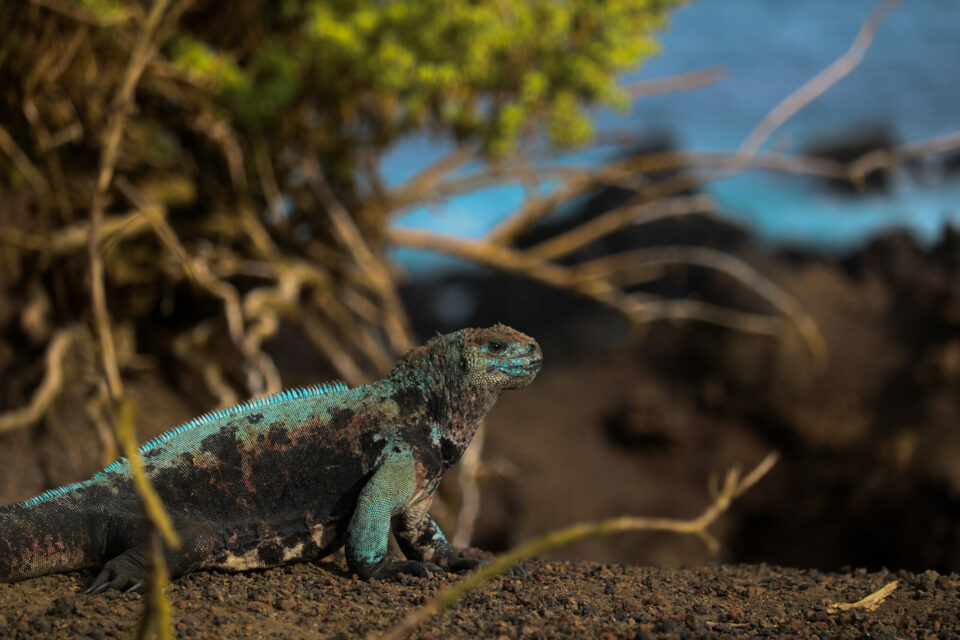
Mirador Cerro Tijeretas and Muelle Tijeretas
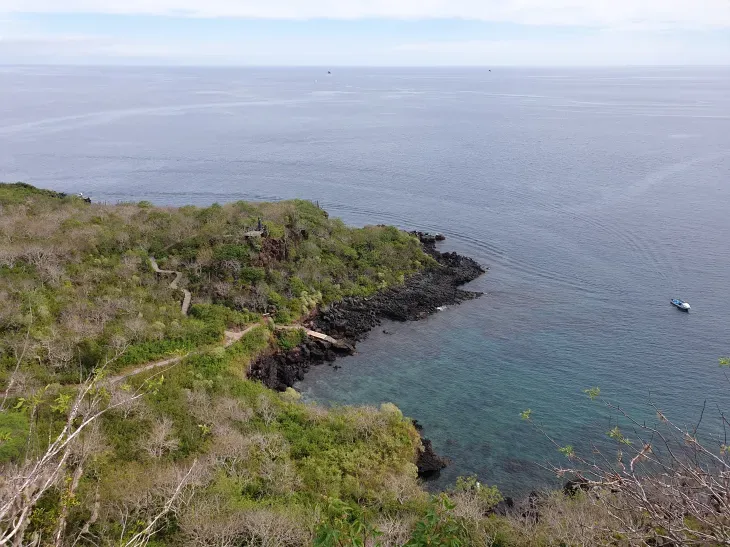
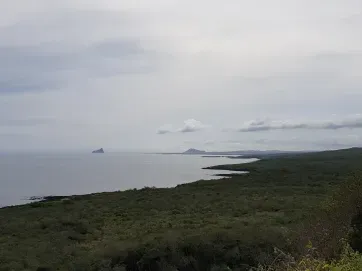
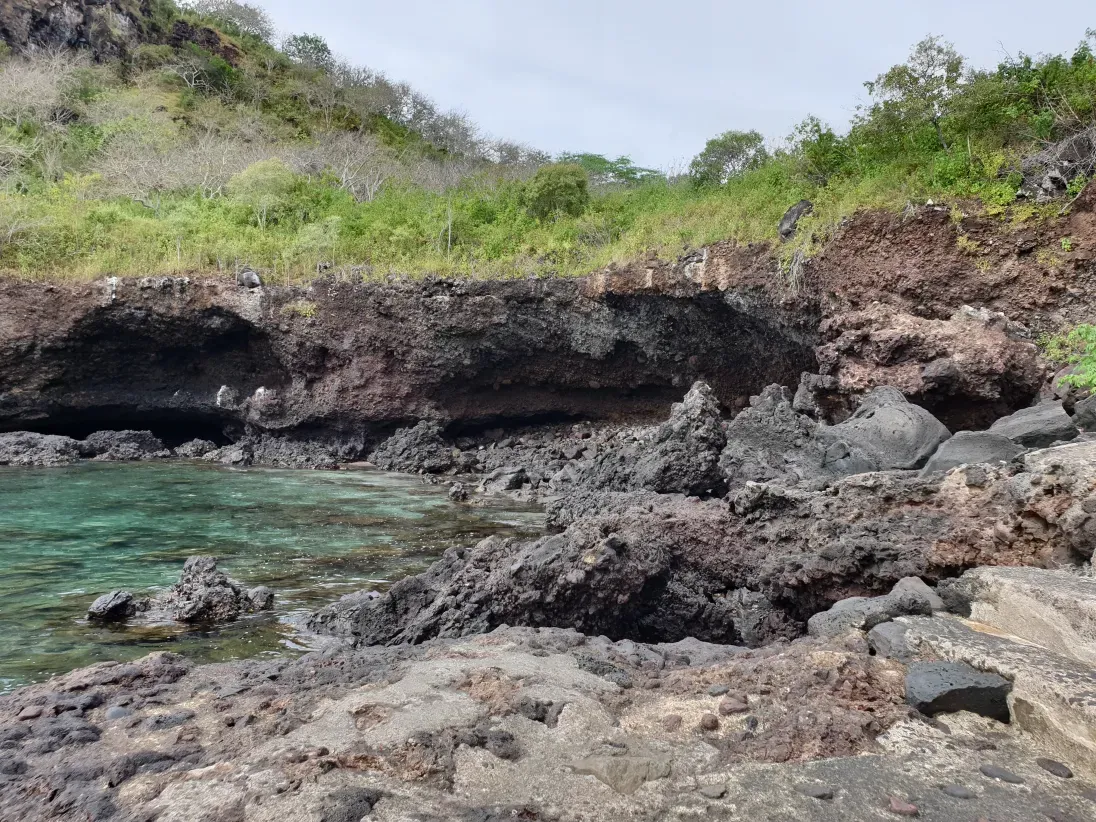
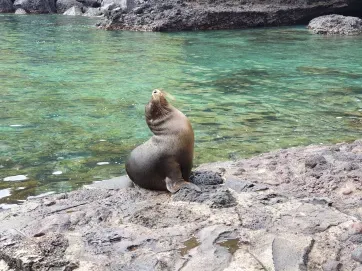
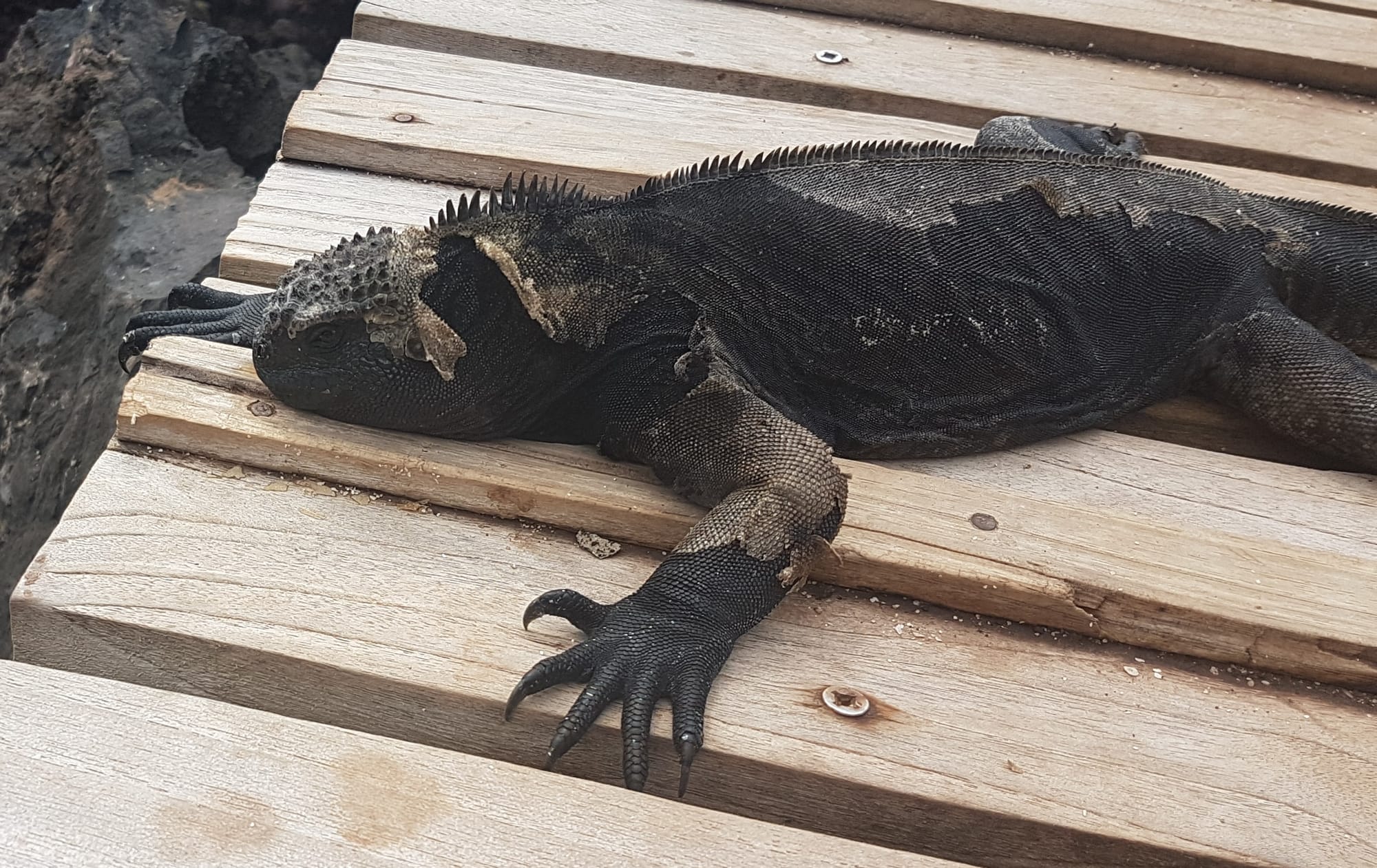
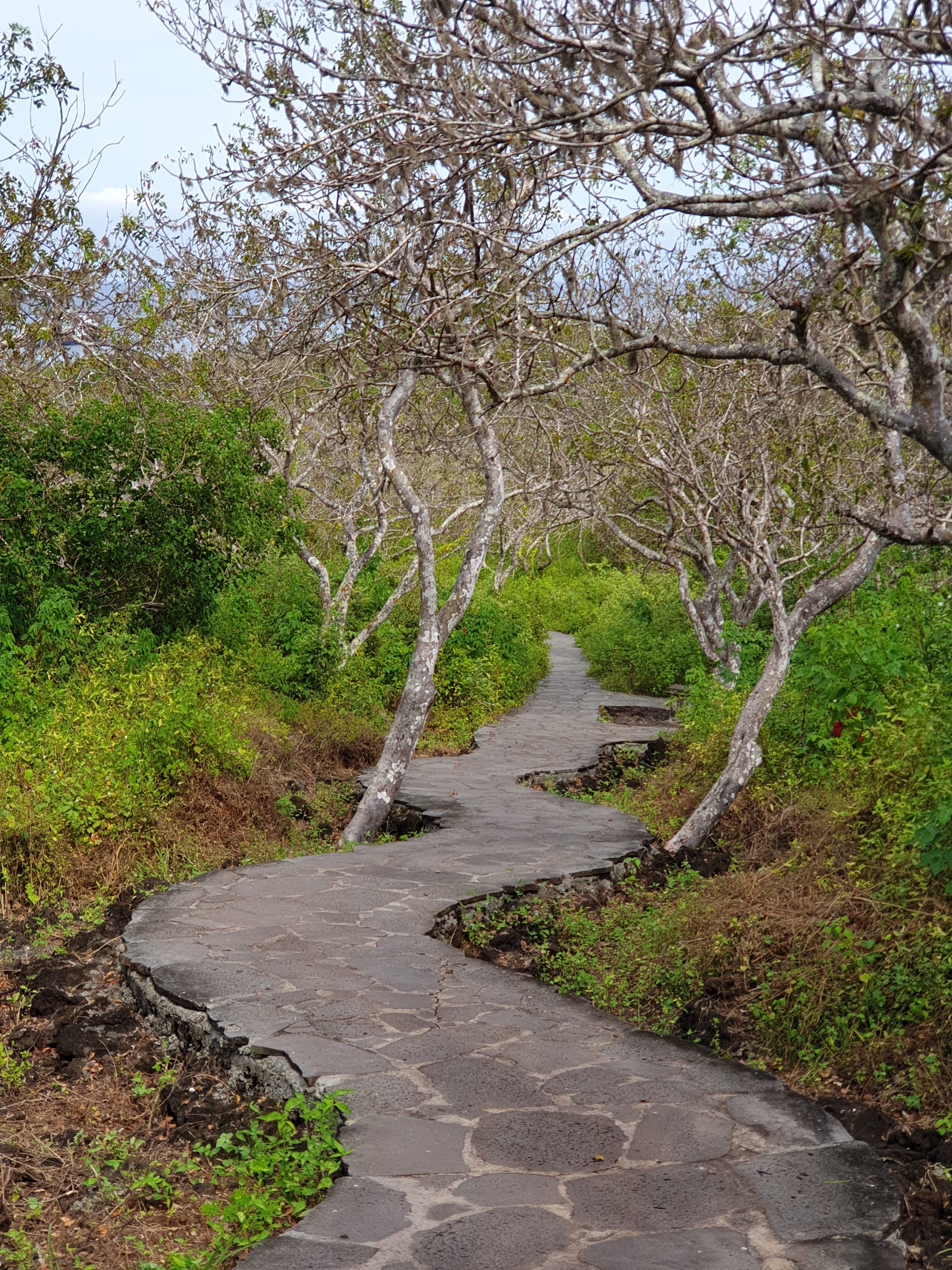
The place we booked for our stay was simply amazing – quiet, beautiful, and surrounded by plants and trees. It takes only a few minutes to get to the town by car. The rooms and facilities (kitchen, drinking water, coffee, fruits) are excellent, and the hosts are the nicest people you can imagine. They provide free pick-up from the airport and will help with anything you might need.
https://www.facebook.com/Cucuve-Eco-Hostal
We did not rent a car, and catching a "taxi" is not a problem. Everyone who owns a car will take you wherever you want and charge the same fare as everyone else. The white taxis waiting in the port area are a little more expensive.
Day 3
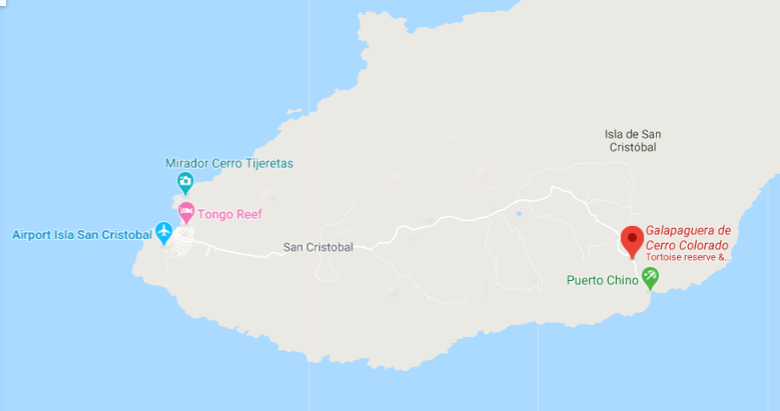
Galapaguera de Cerro Colorado – no entrance fee, you can get there by car
La Galapaguera is a breeding centre for giant Galapagos tortoises. Unlike other similar facilities, this recovery center preserves semi-natural conditions, allowing young tortoises to hatch without the need for incubators. The breeding centres increase the survival rate of new hatchlings in the wild. The tortoises are kept at the center for the first years of their lives and it is possible to see babies, young ones and adults at the centre.
Giant Tortoise of San Cristobal (Geochelone chathamensis)
Conservation Status: Endangered
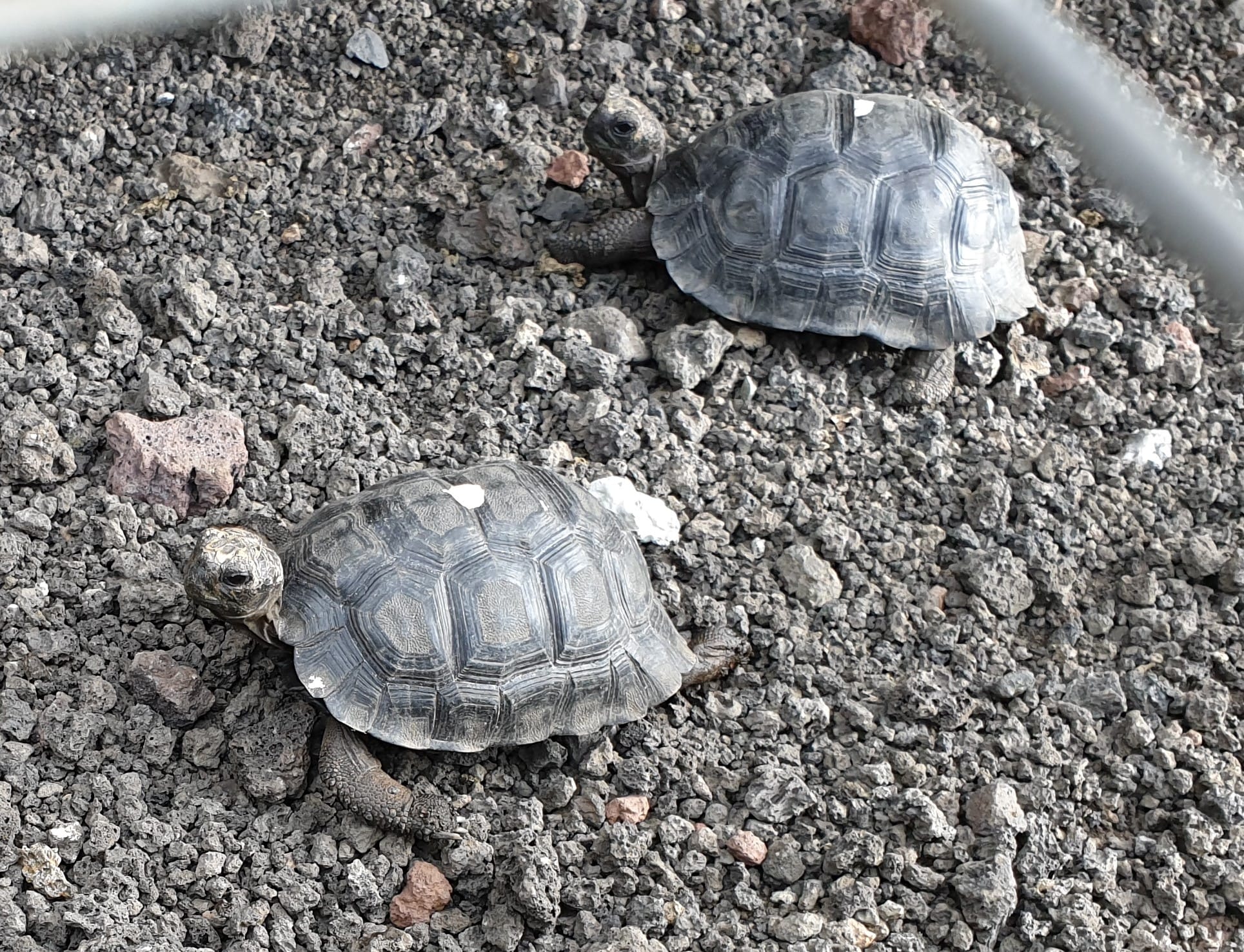
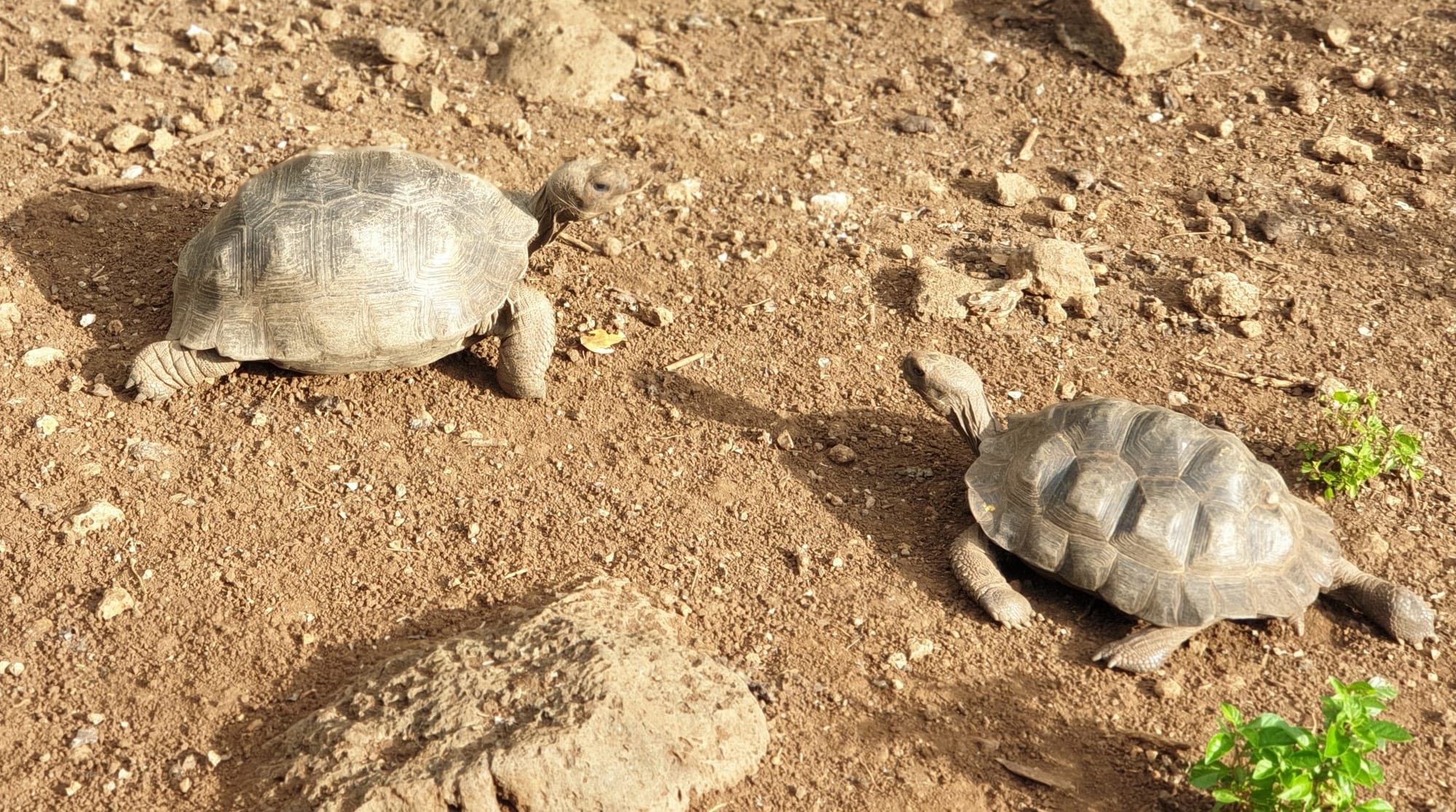
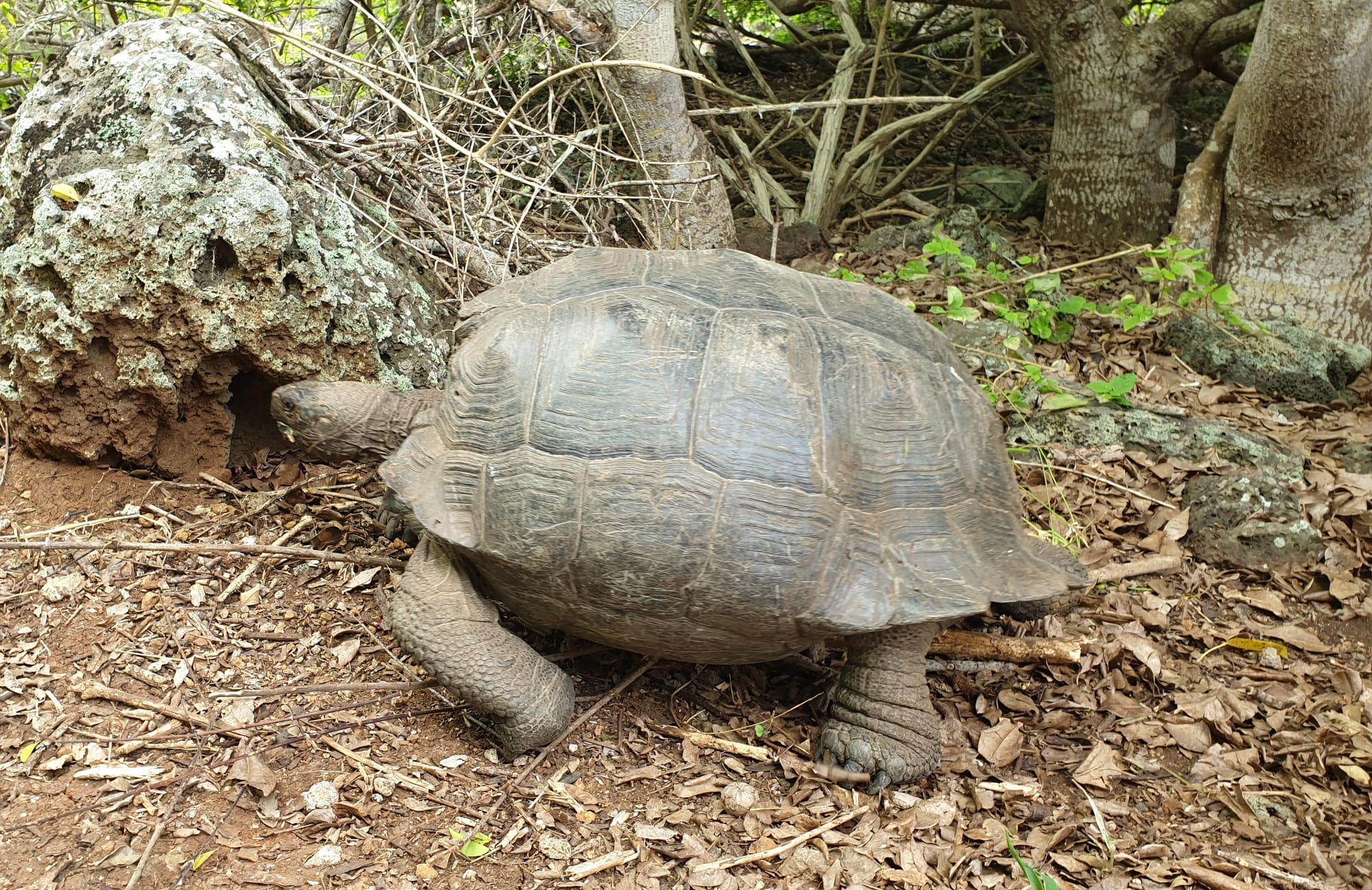
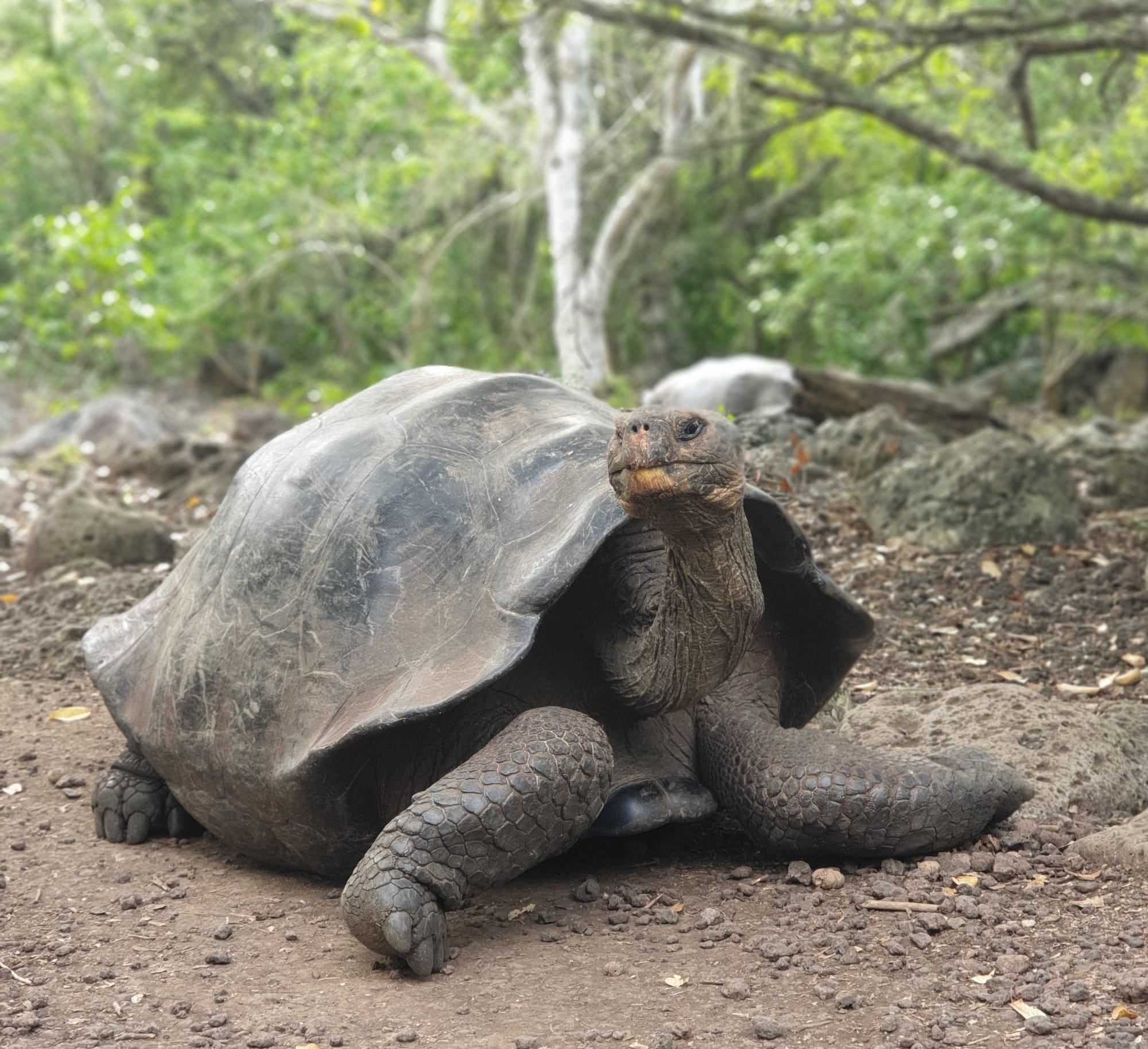
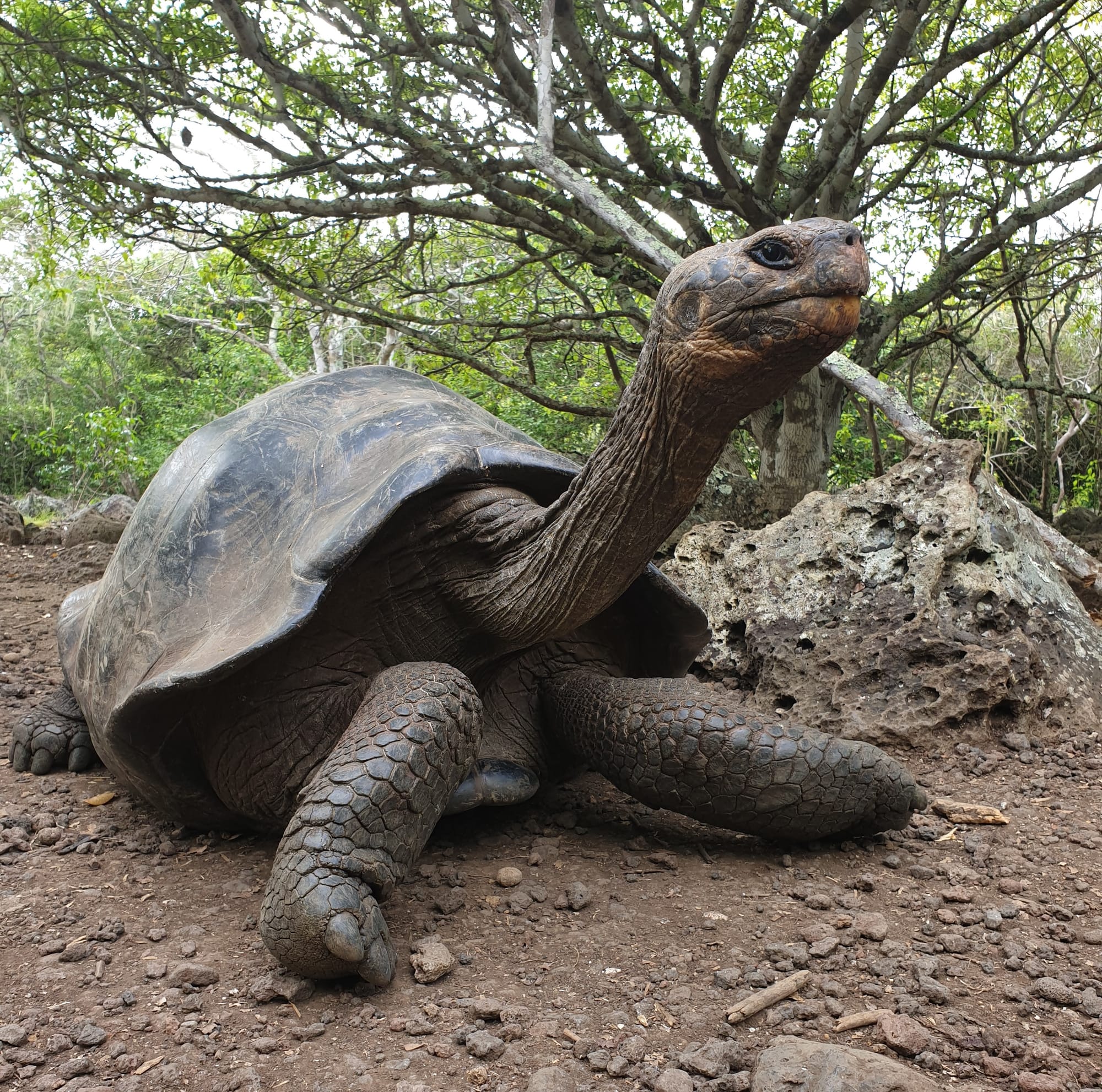
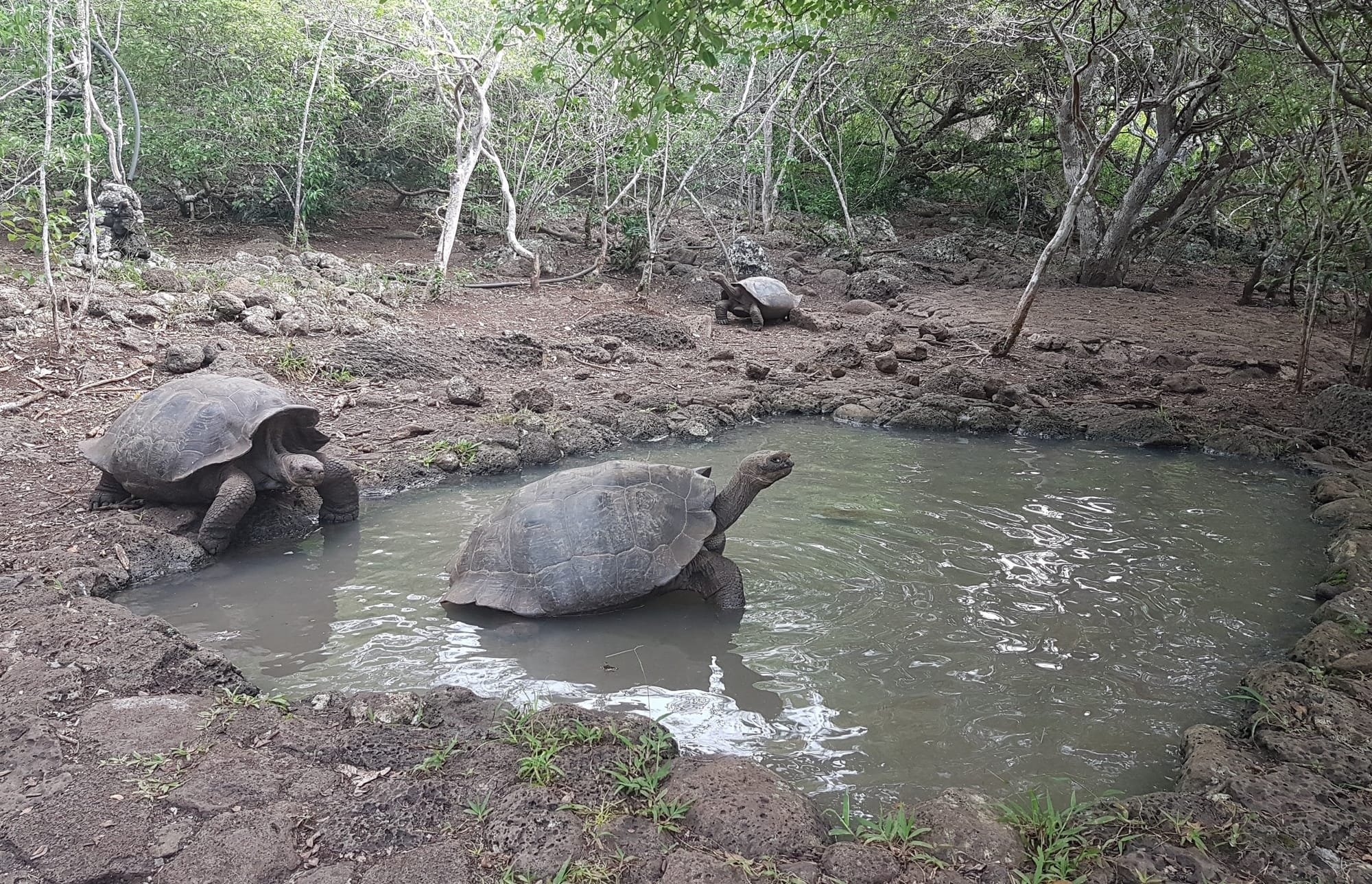
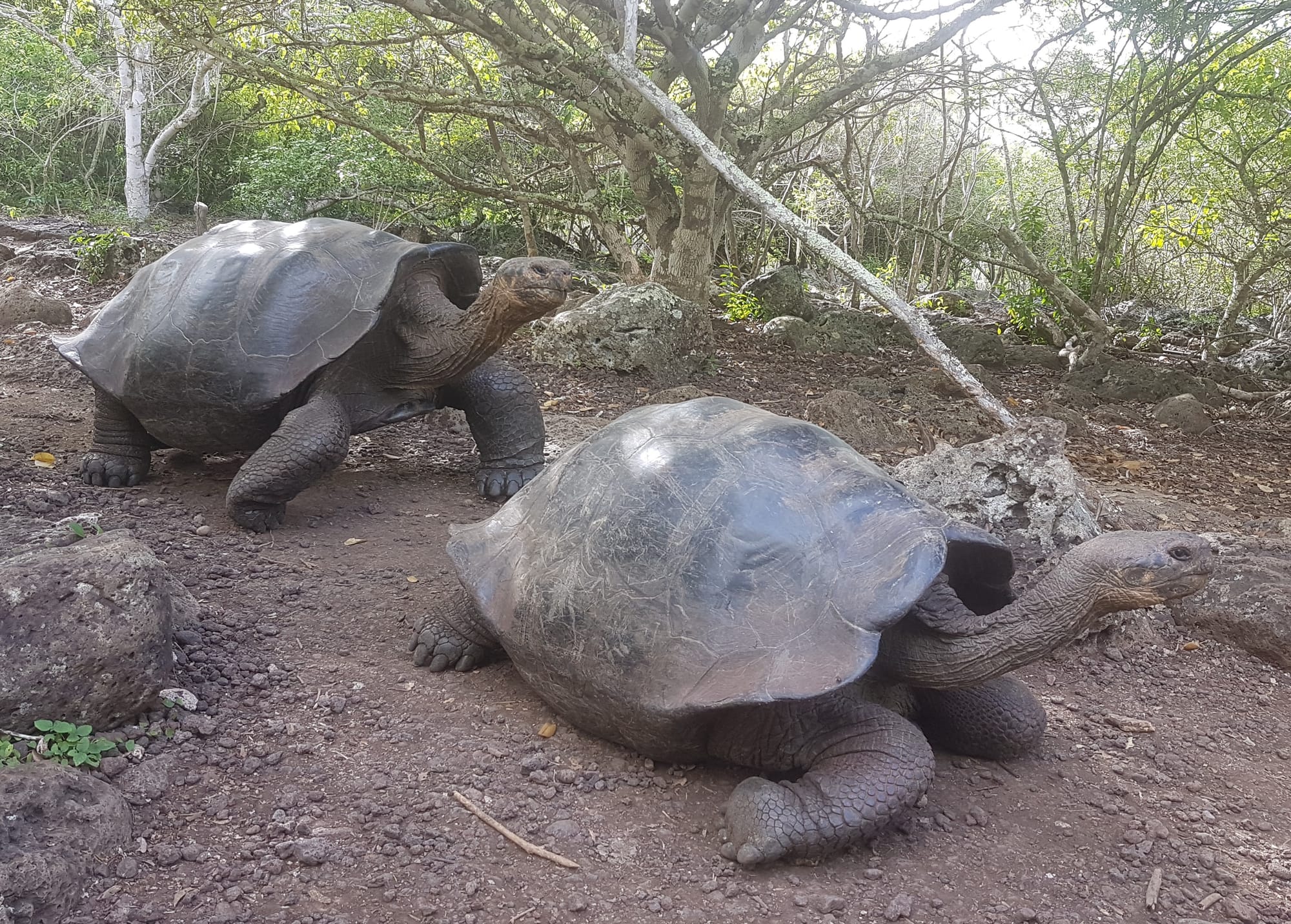
Puerto Chino the most beautiful beach (15 mins walk from Galapaguera)
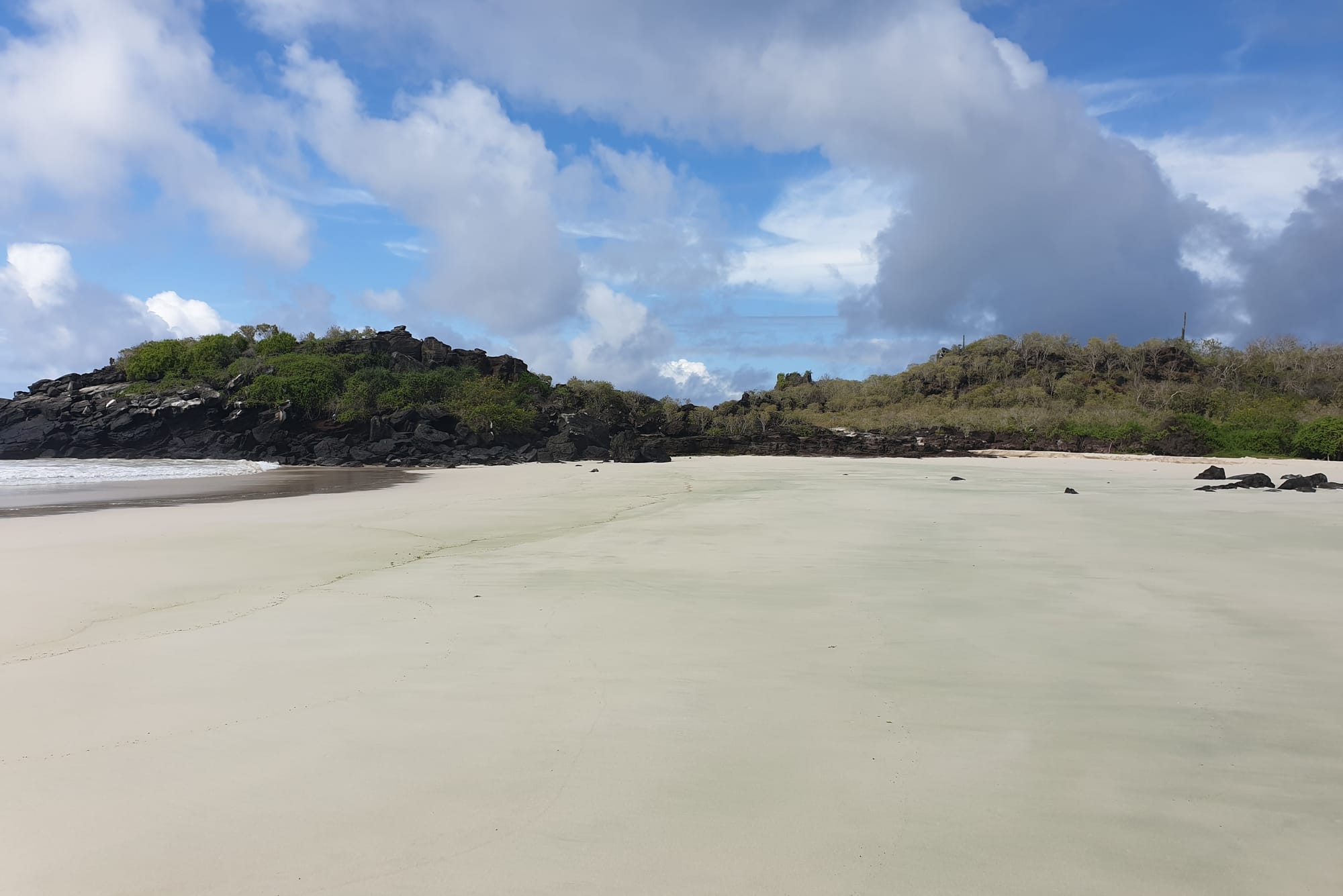
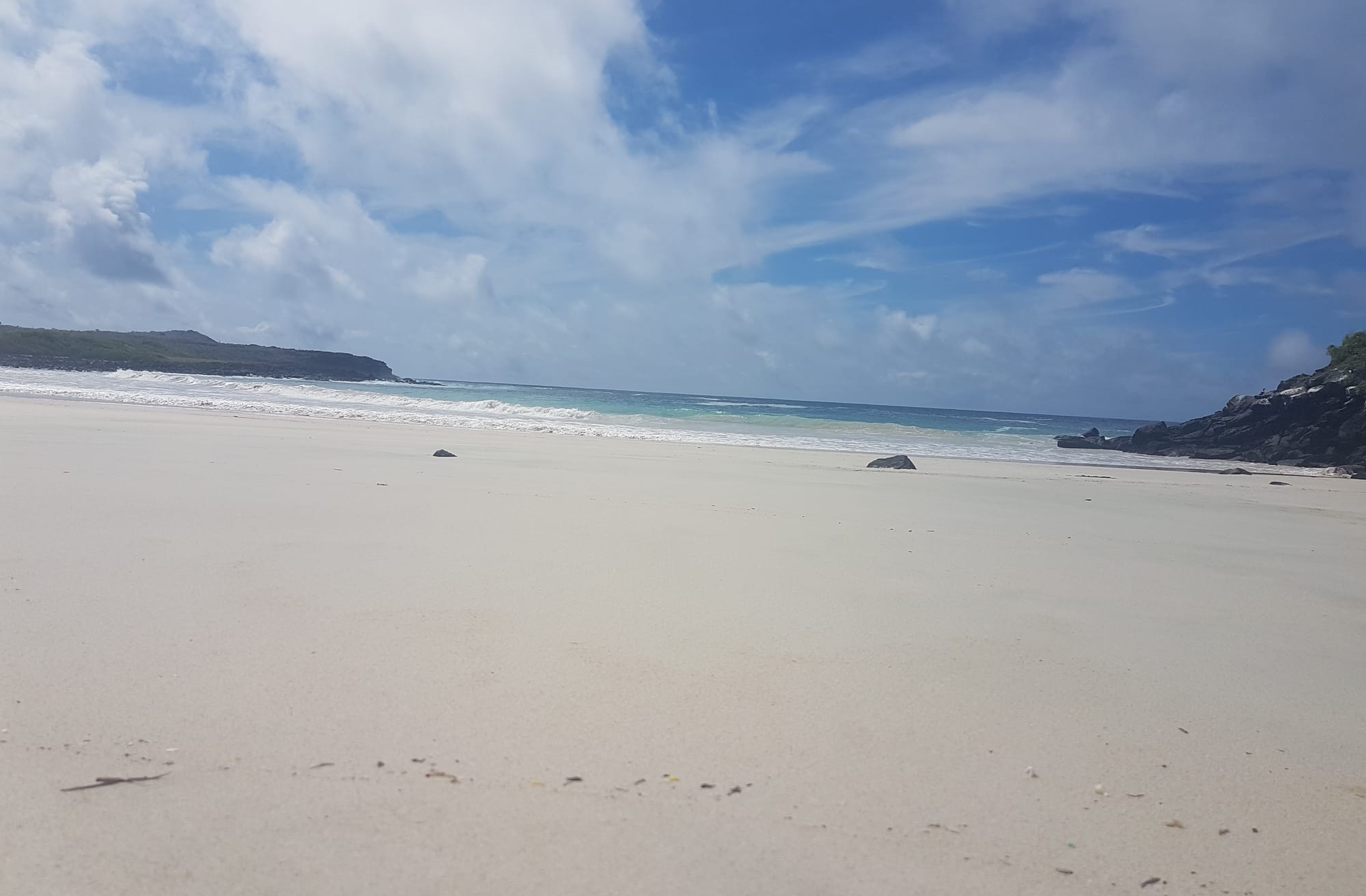
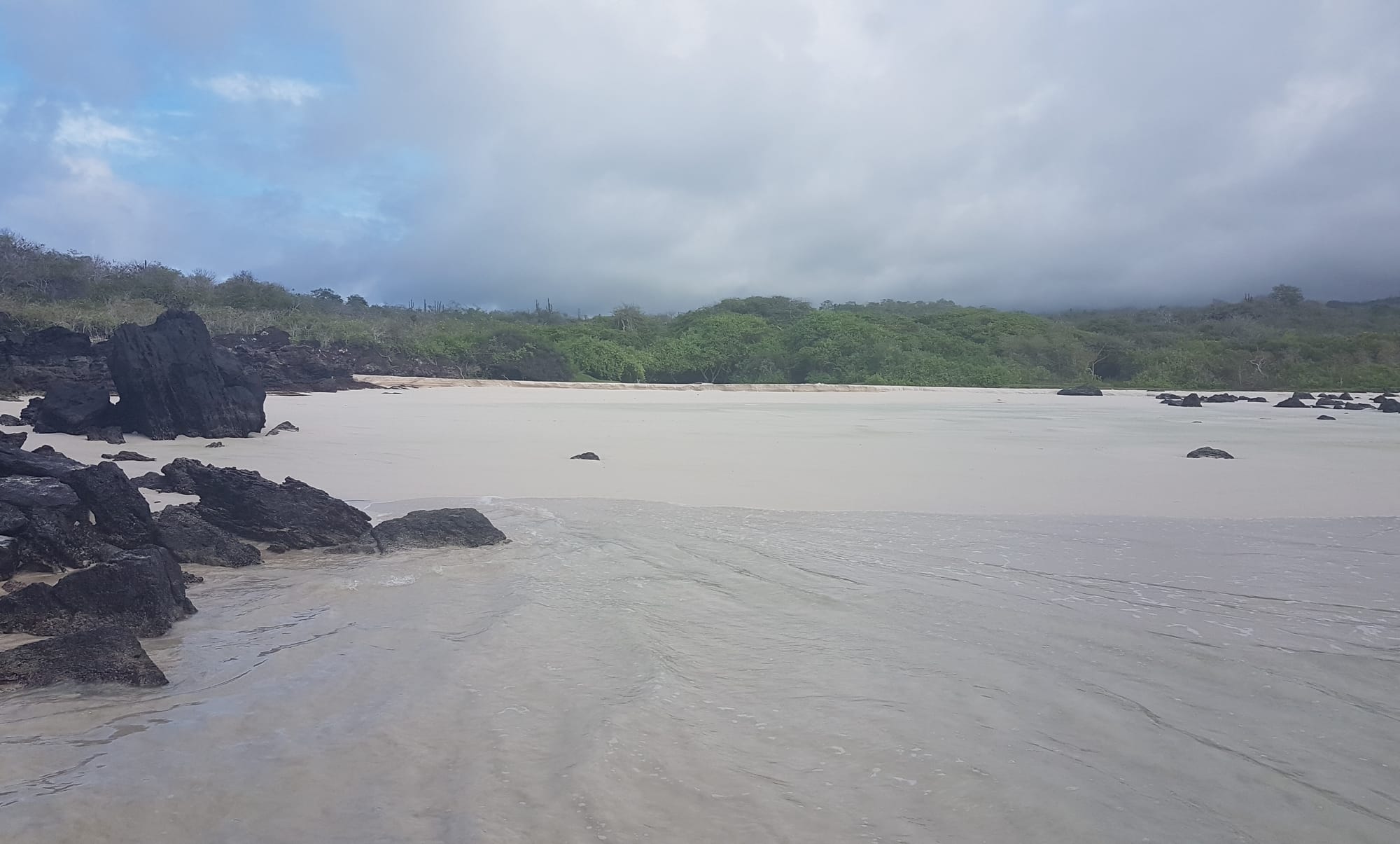
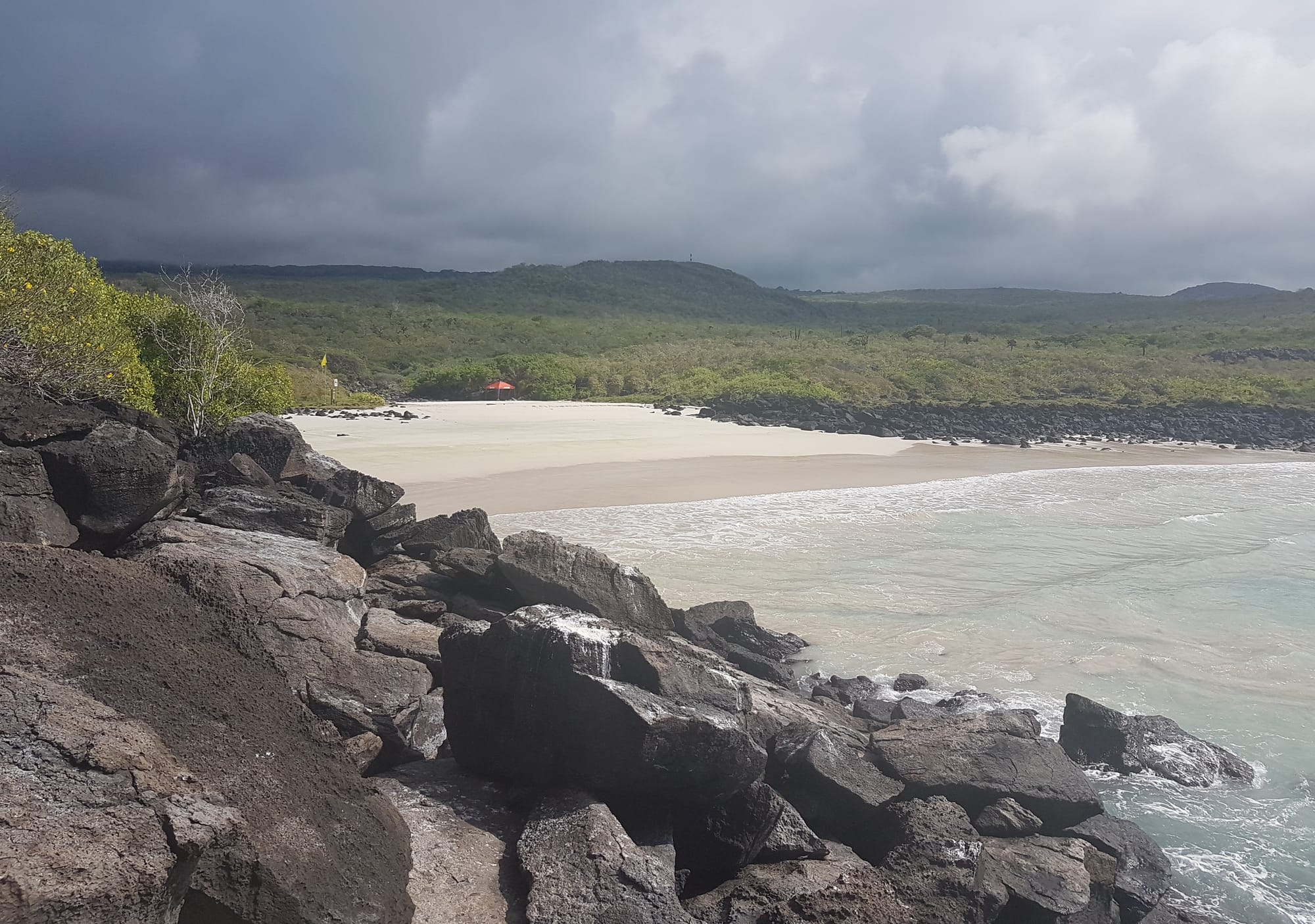
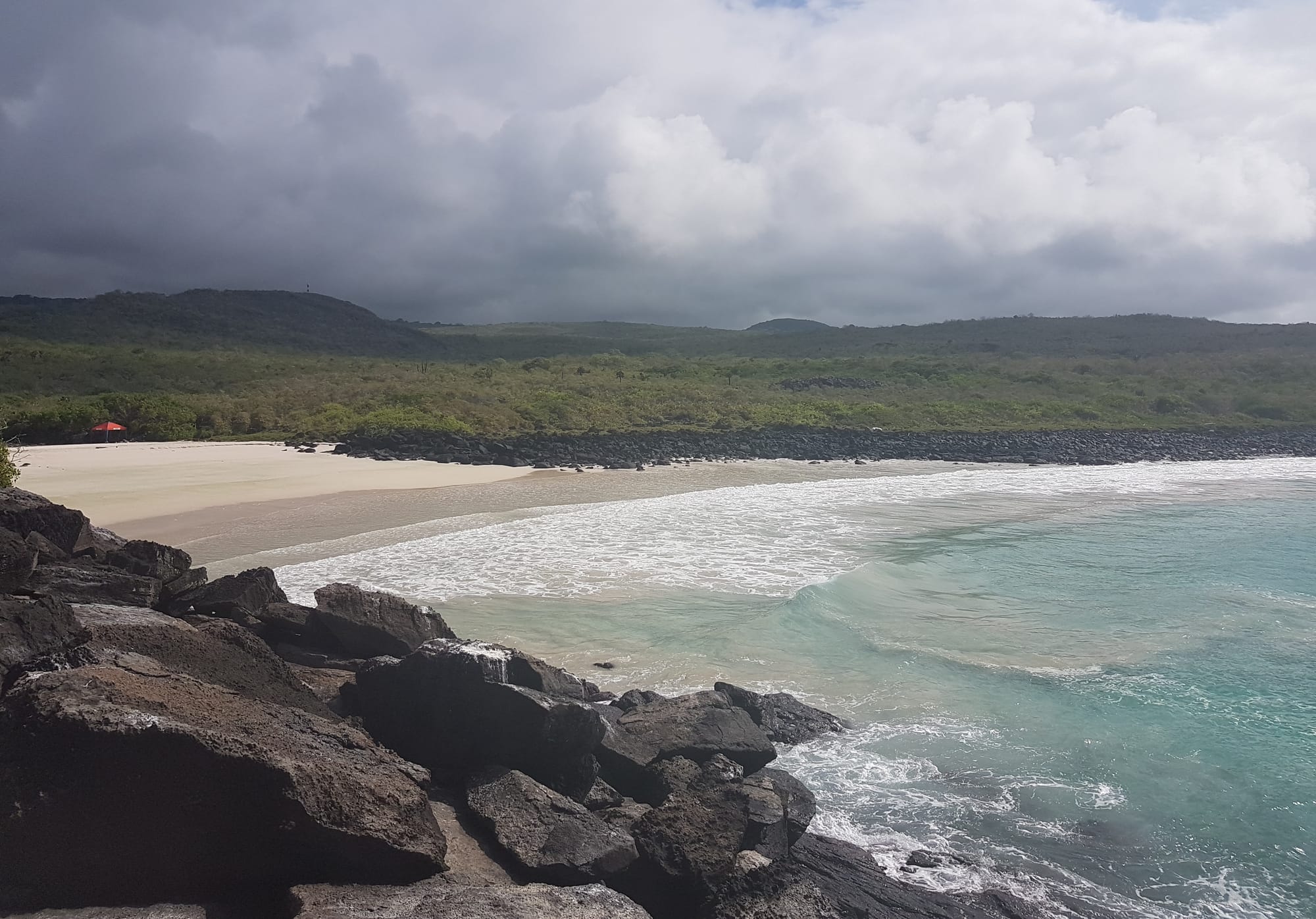
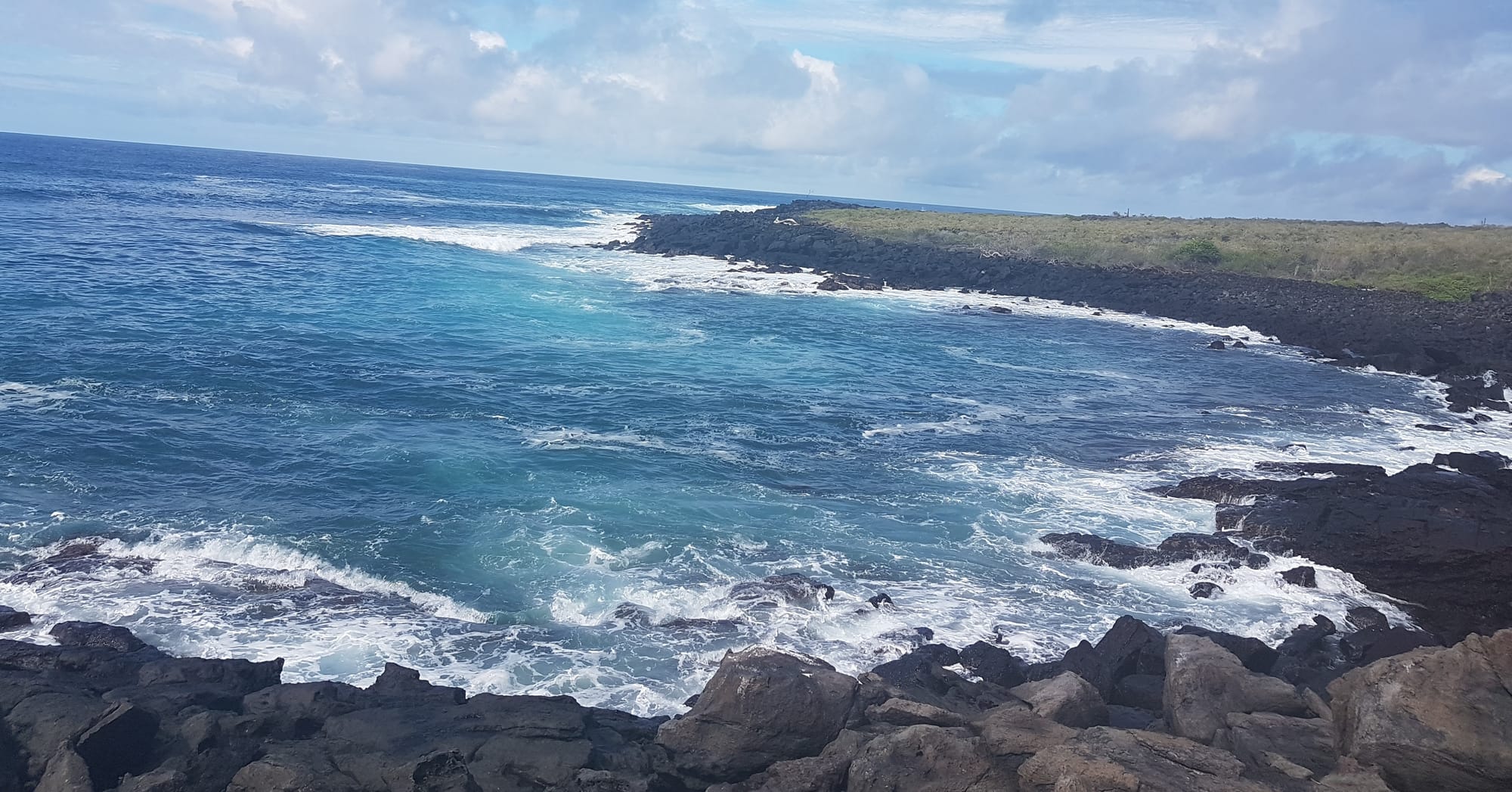
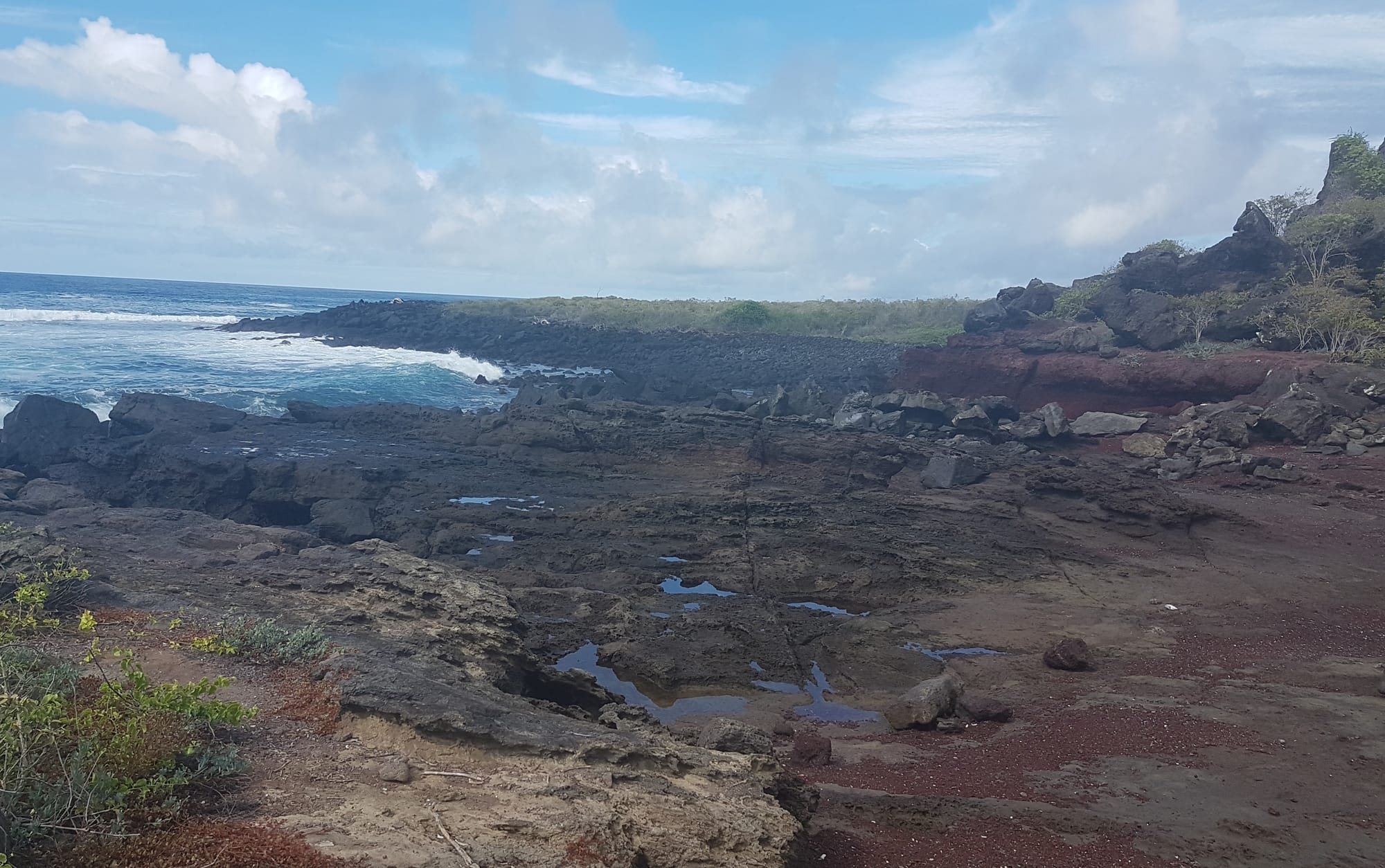
Day 4 & 5
We booked Galapagos Ferry to St Cruz, it’s quite a long journey and not much fun as the boats are ridiculously noisy! You still need to pay some small fee to the taxi boat which takes you from the pier to the boat – just remember to have some change….
St Cruz, Galapagos
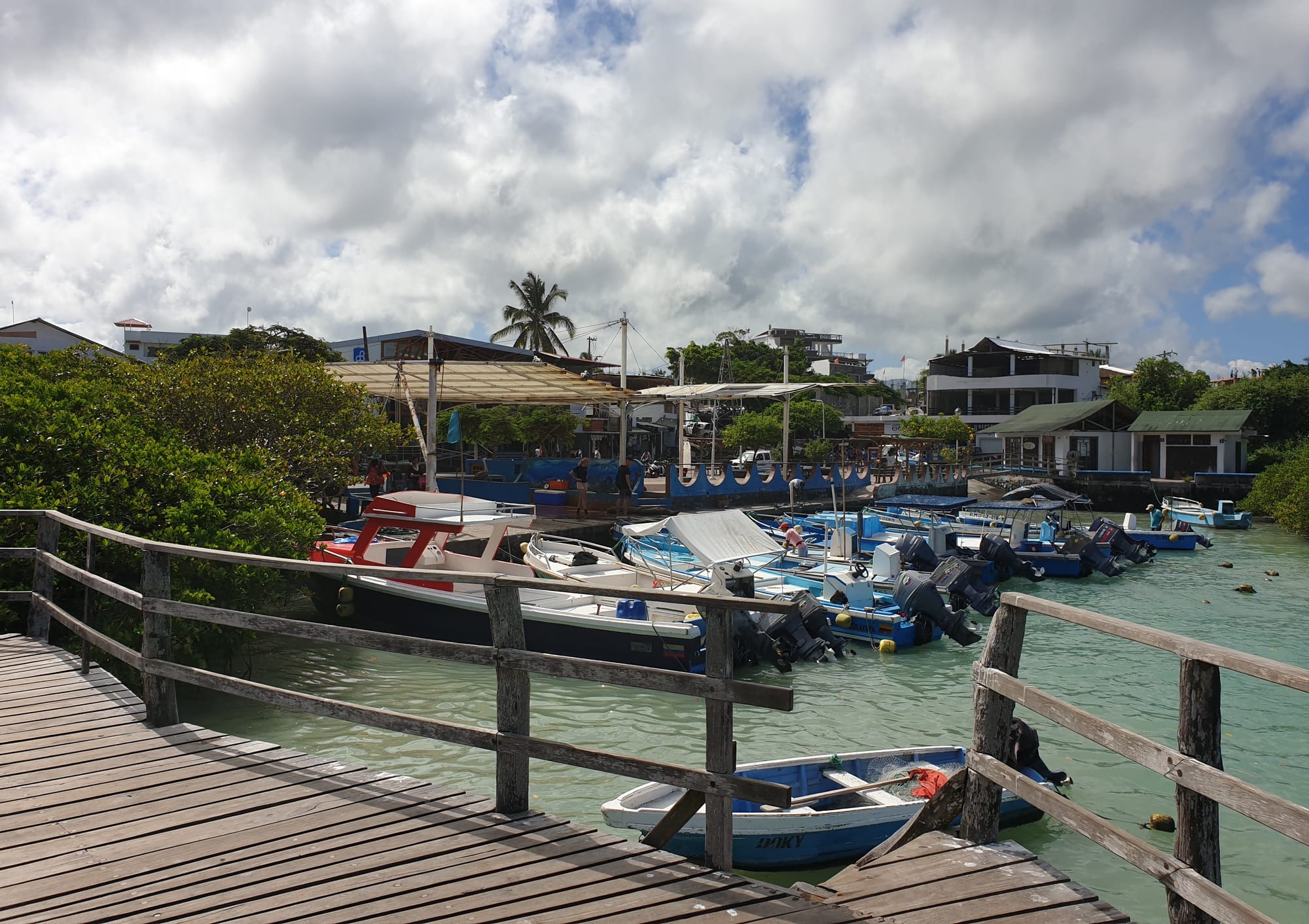
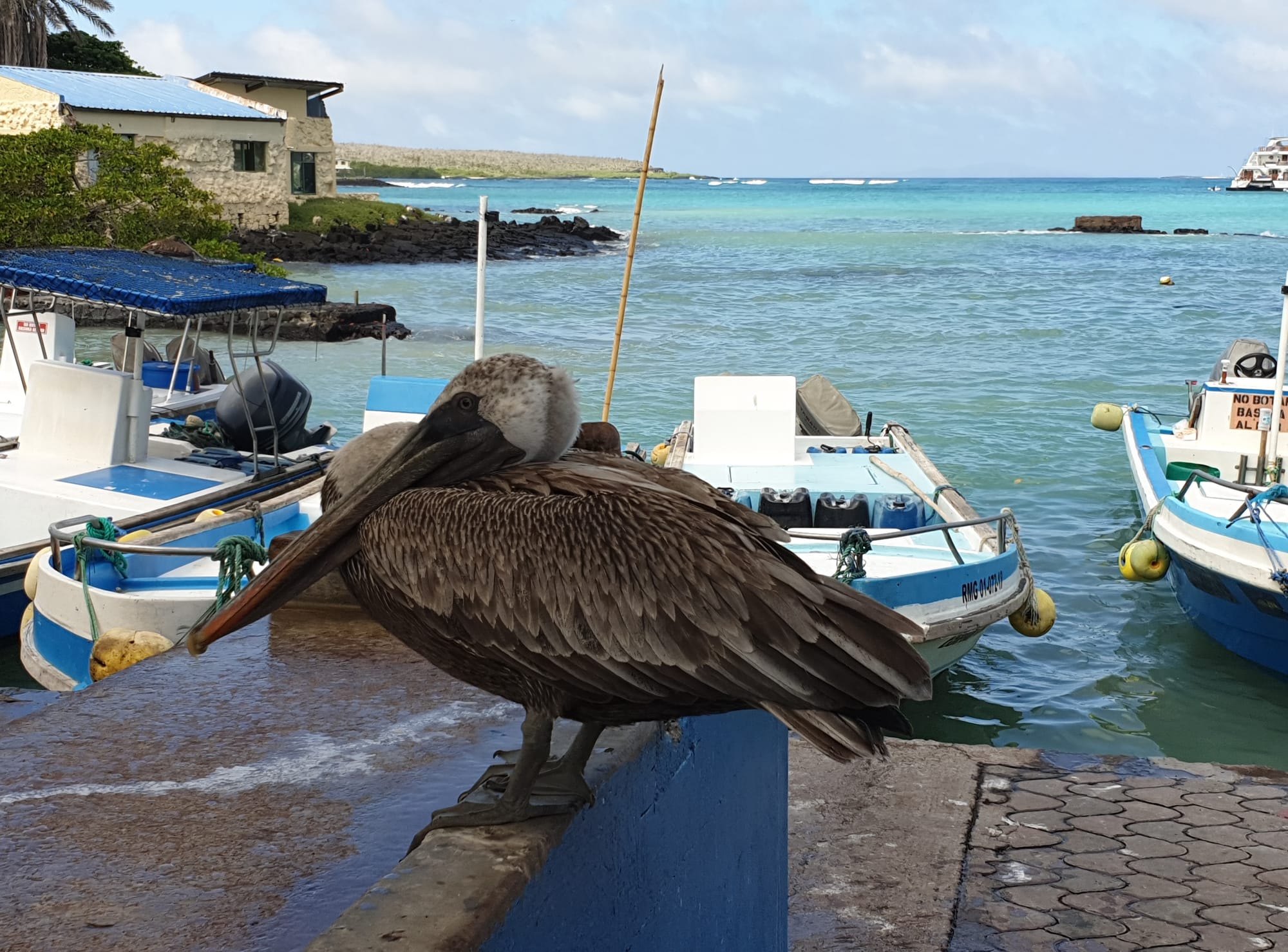
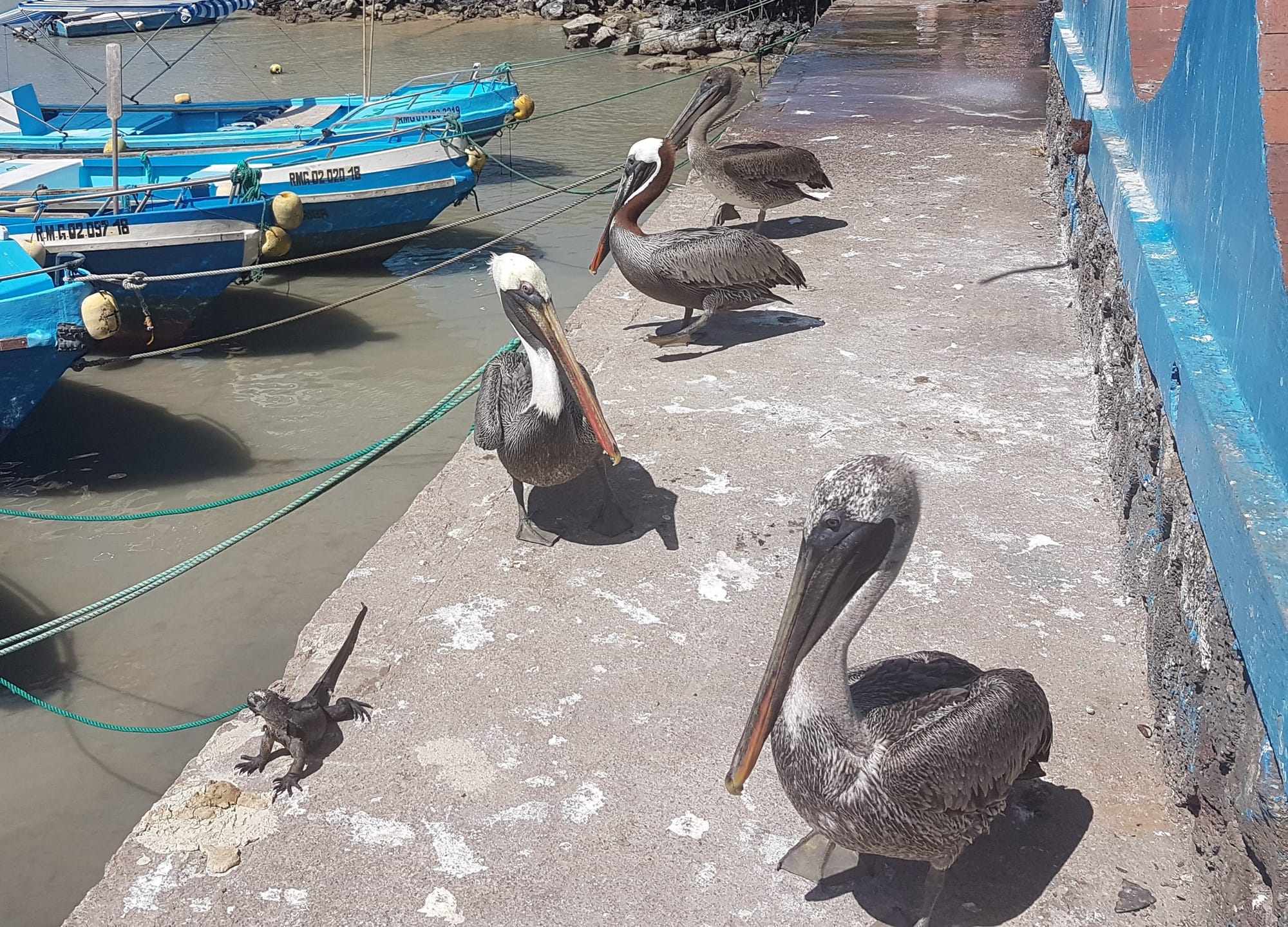
Pelecanus occidentalis ssp. urinator Galápagos Brown Pelican
Obviously the main point of the visit was Charles Darwin Research Station https://www.darwinfoundation.org/en/
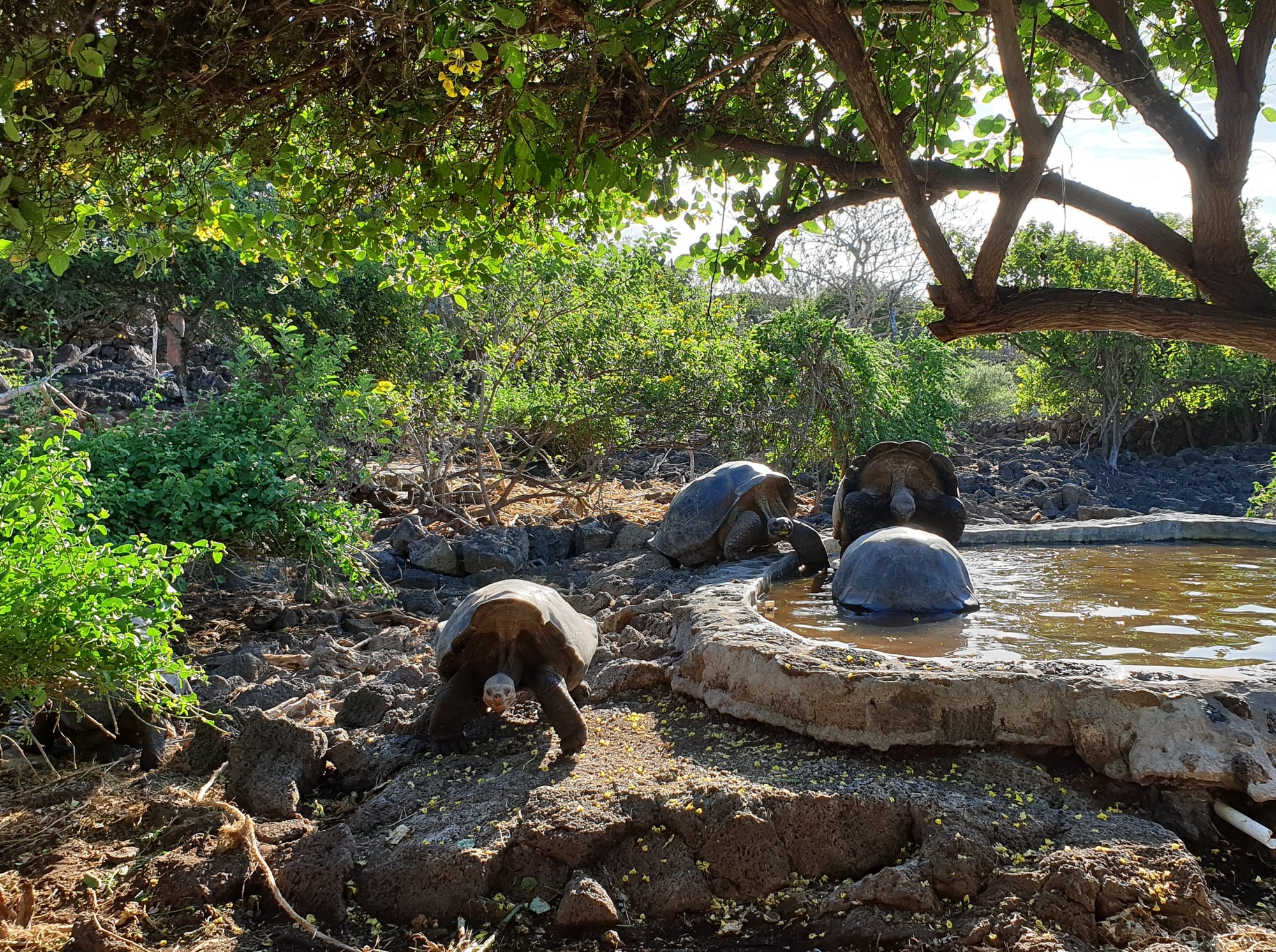
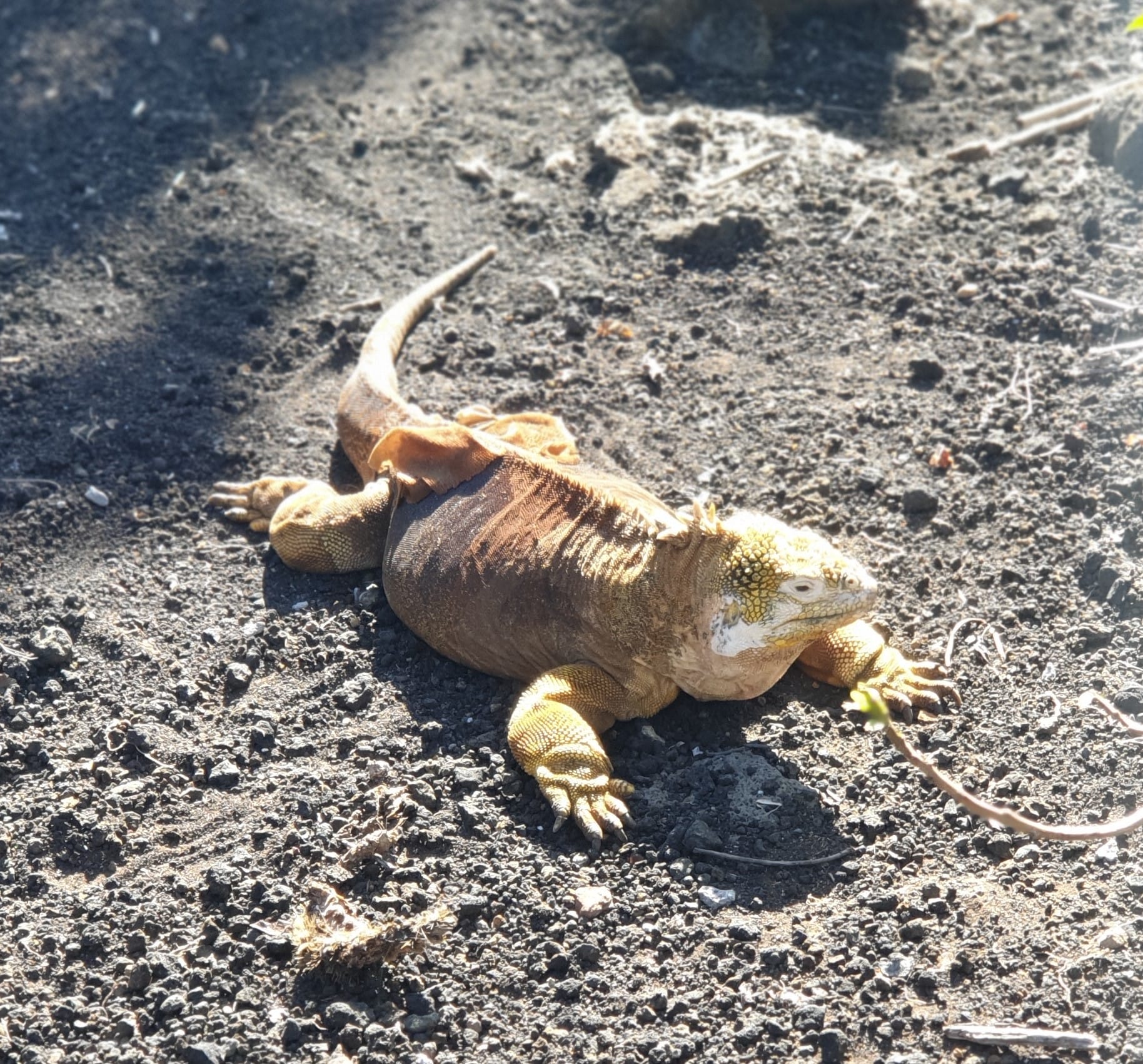
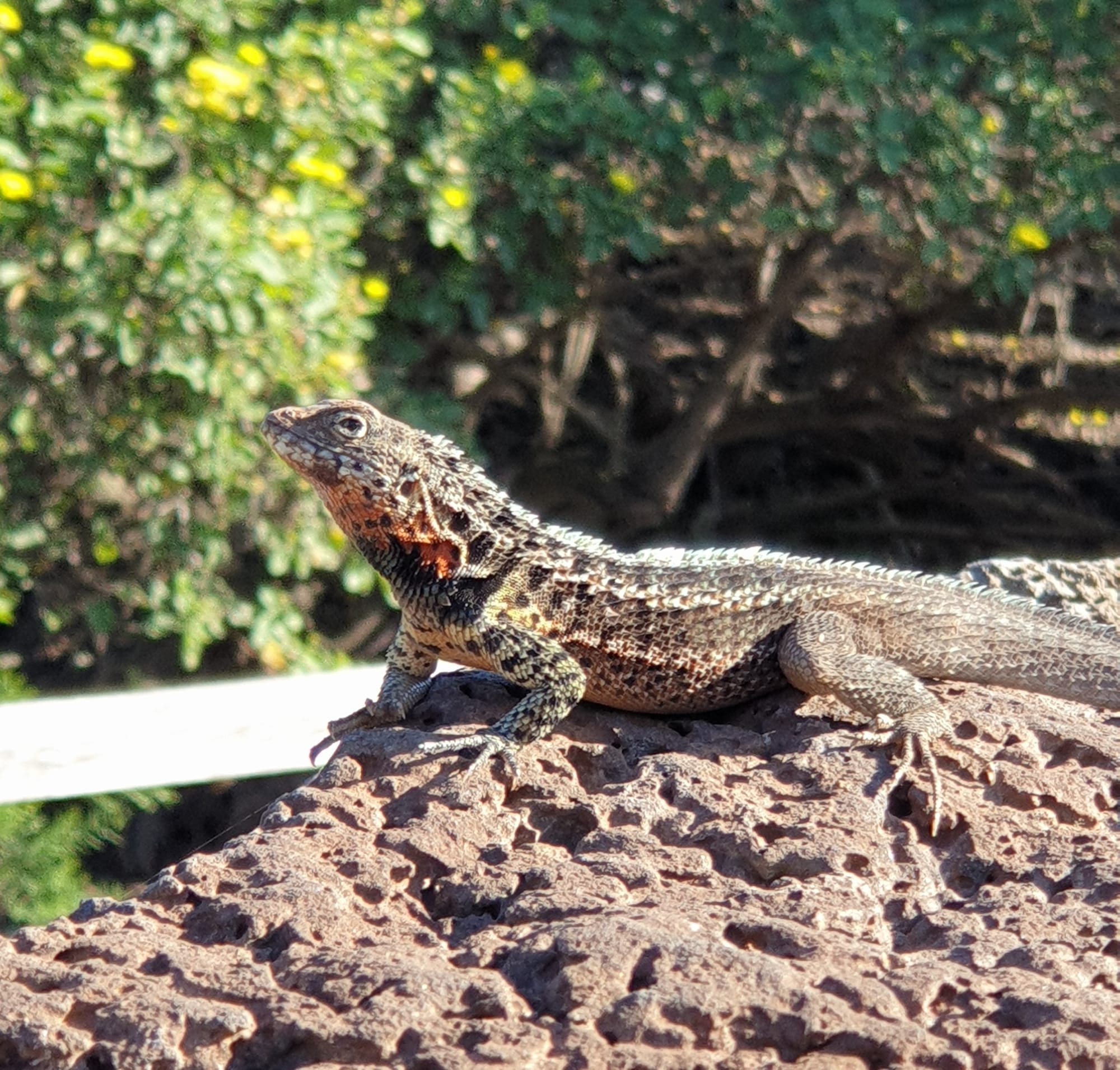
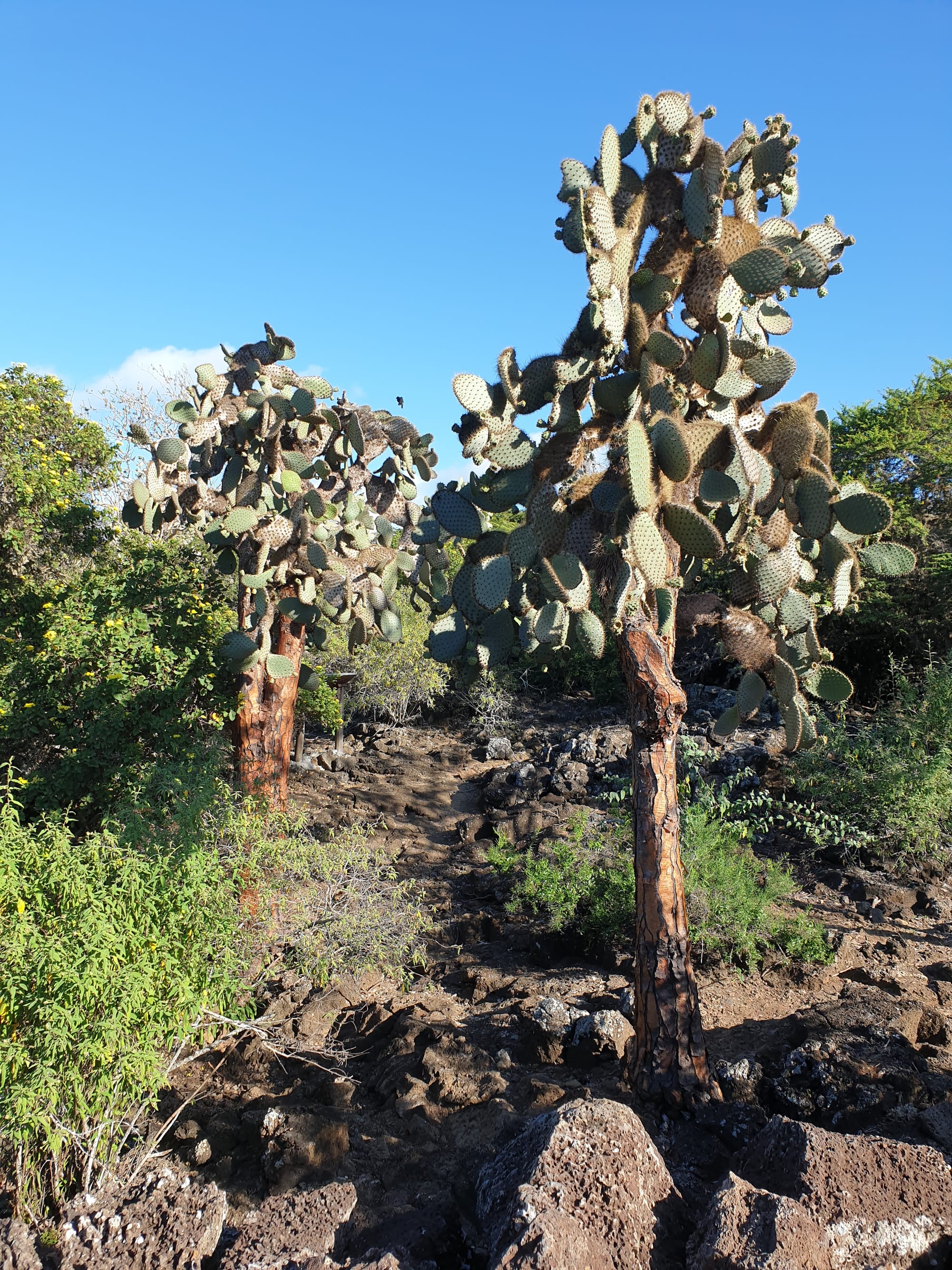
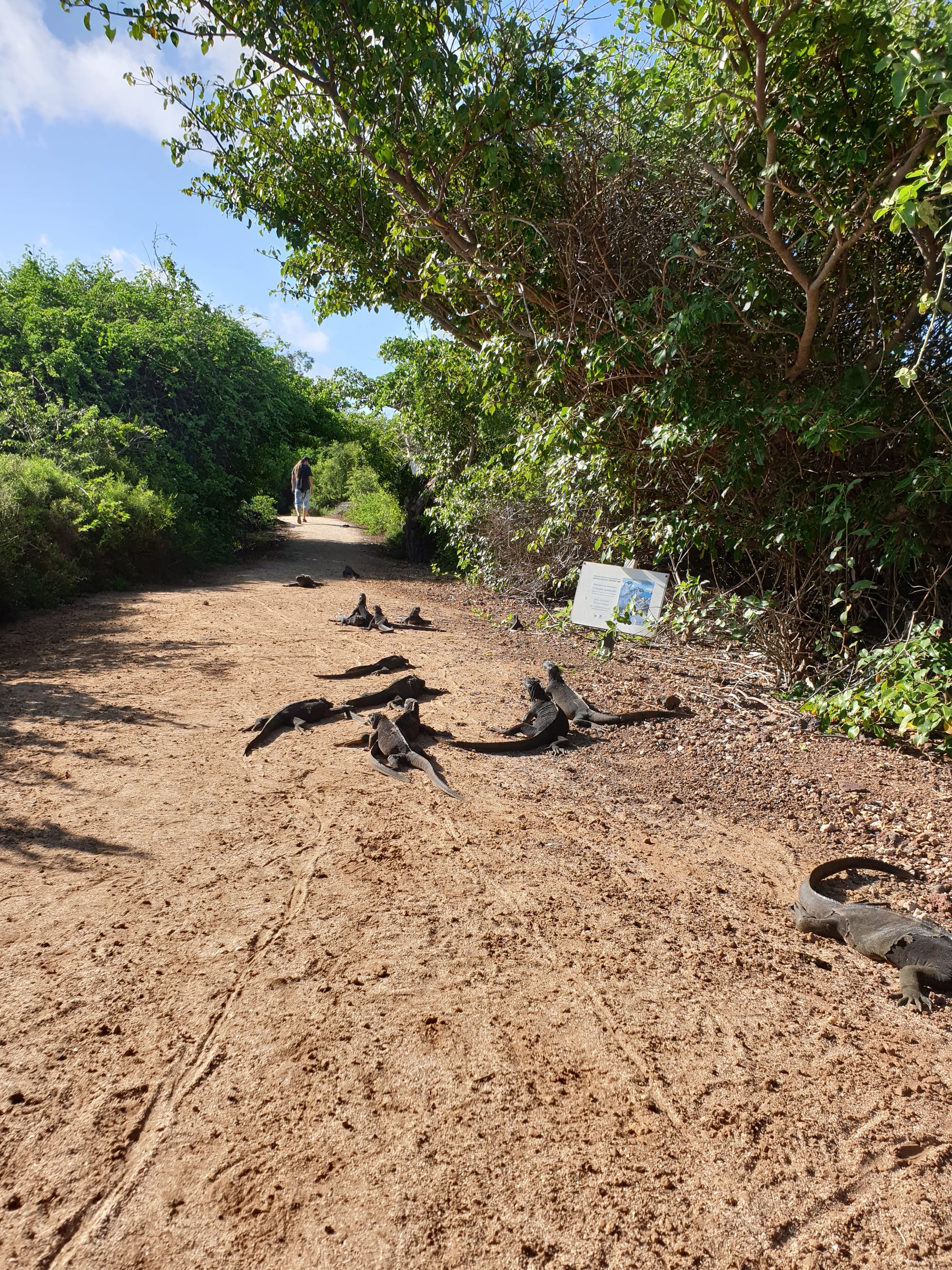
Conolophus subcristatus Galápagos Land Iguana
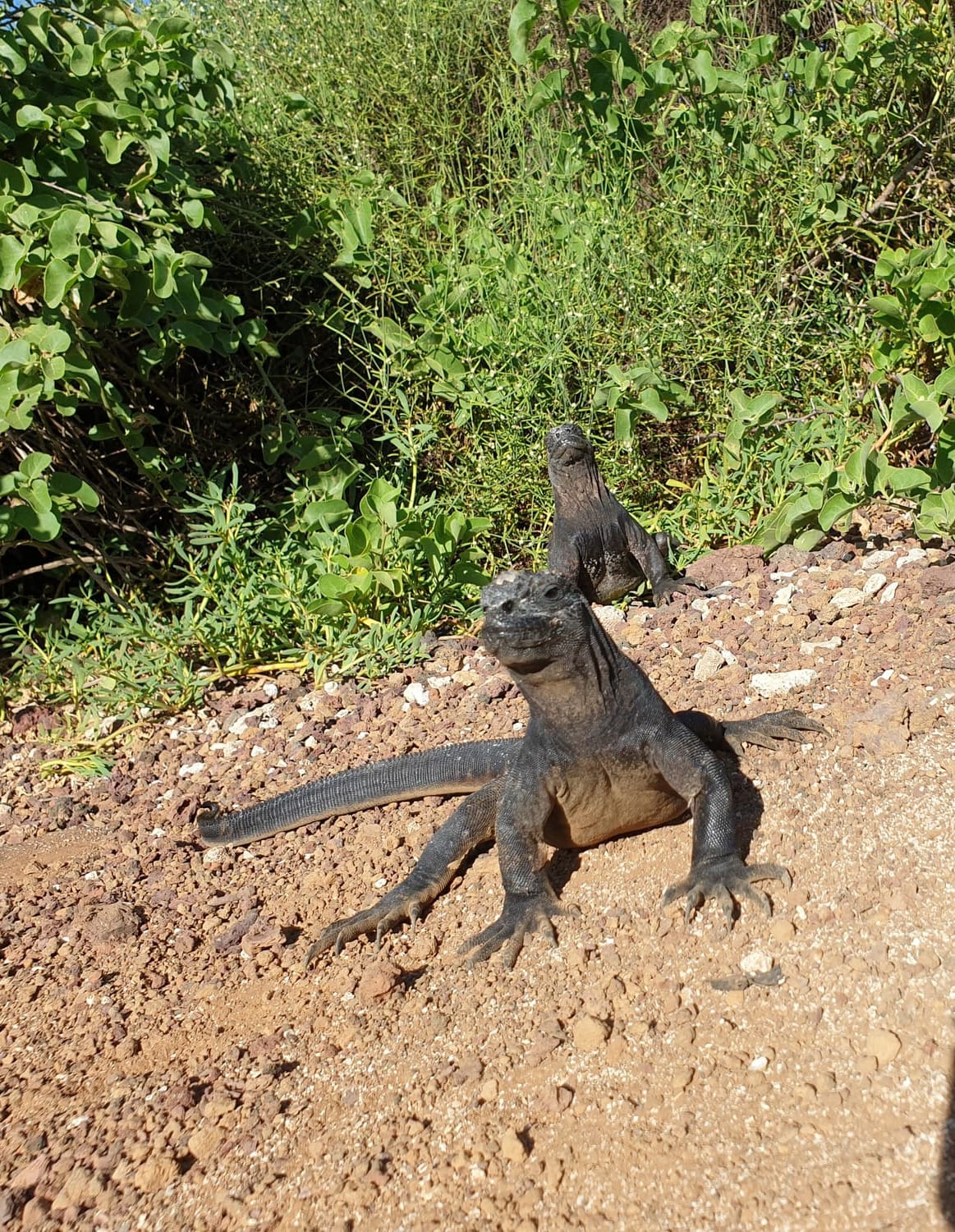
La Ratonera
Amblyrhynchus cristatus hassi Eibl-Eibesfeldt, 1962 – Santa Cruz Marine Iguana
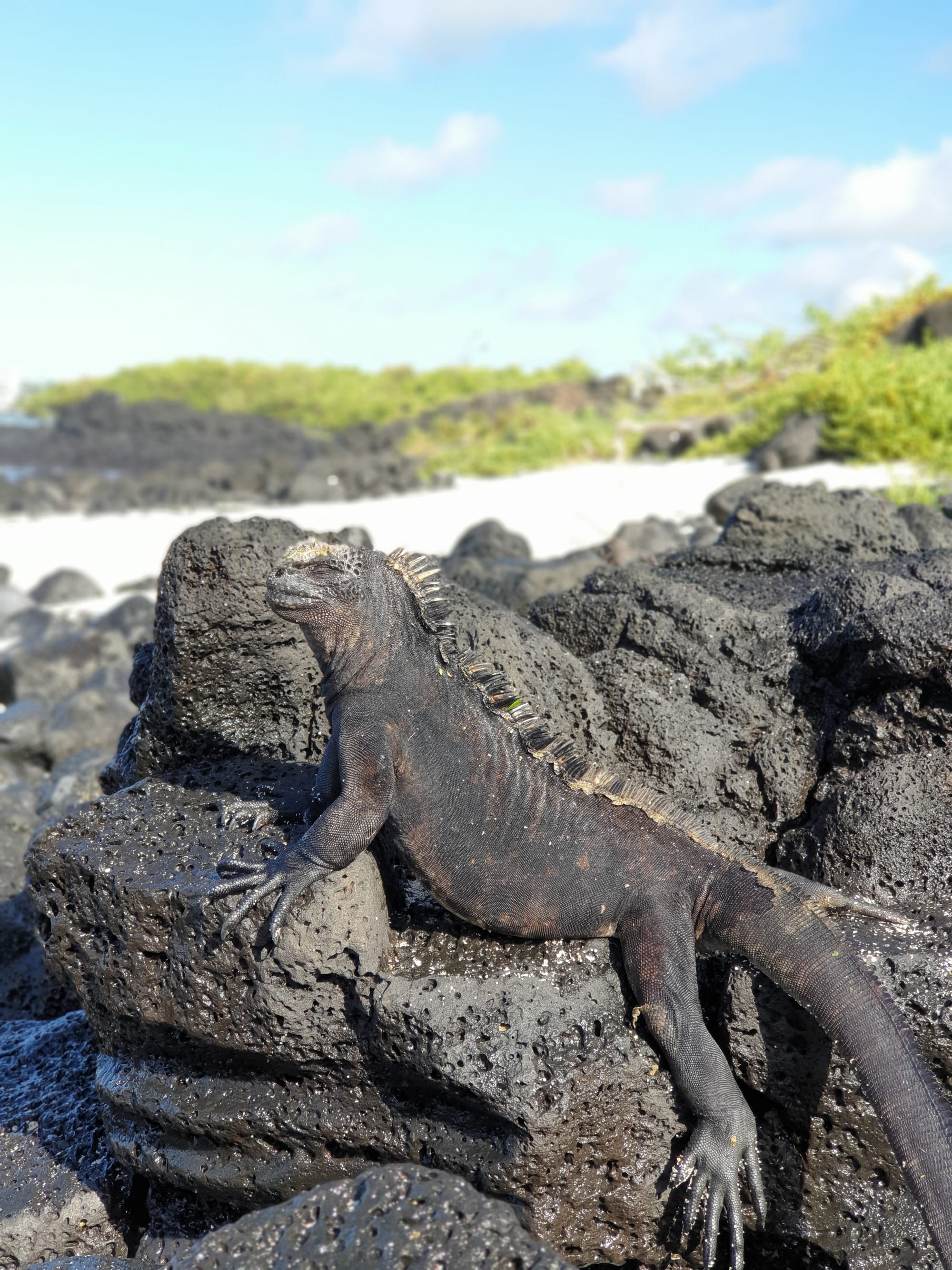
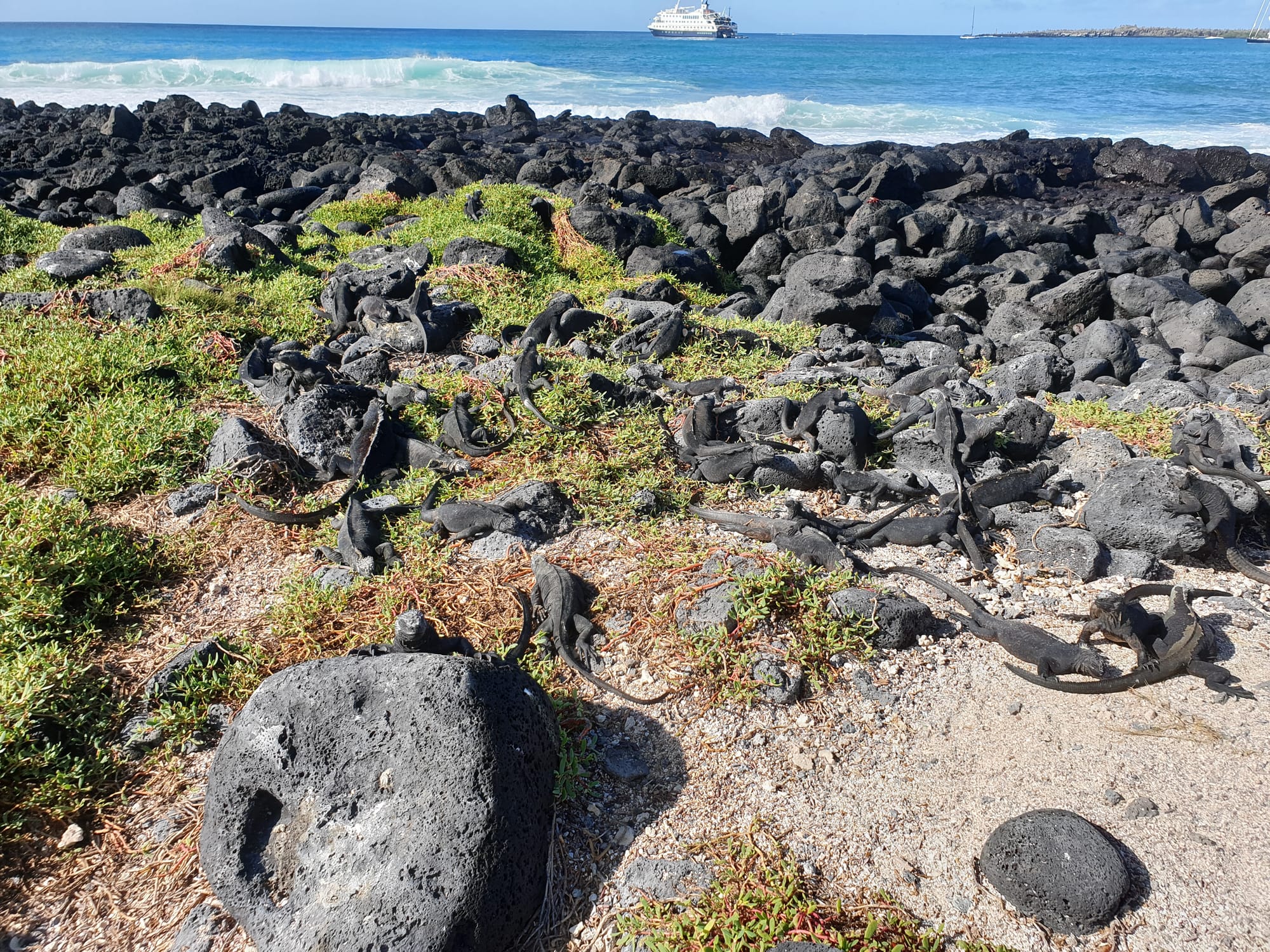
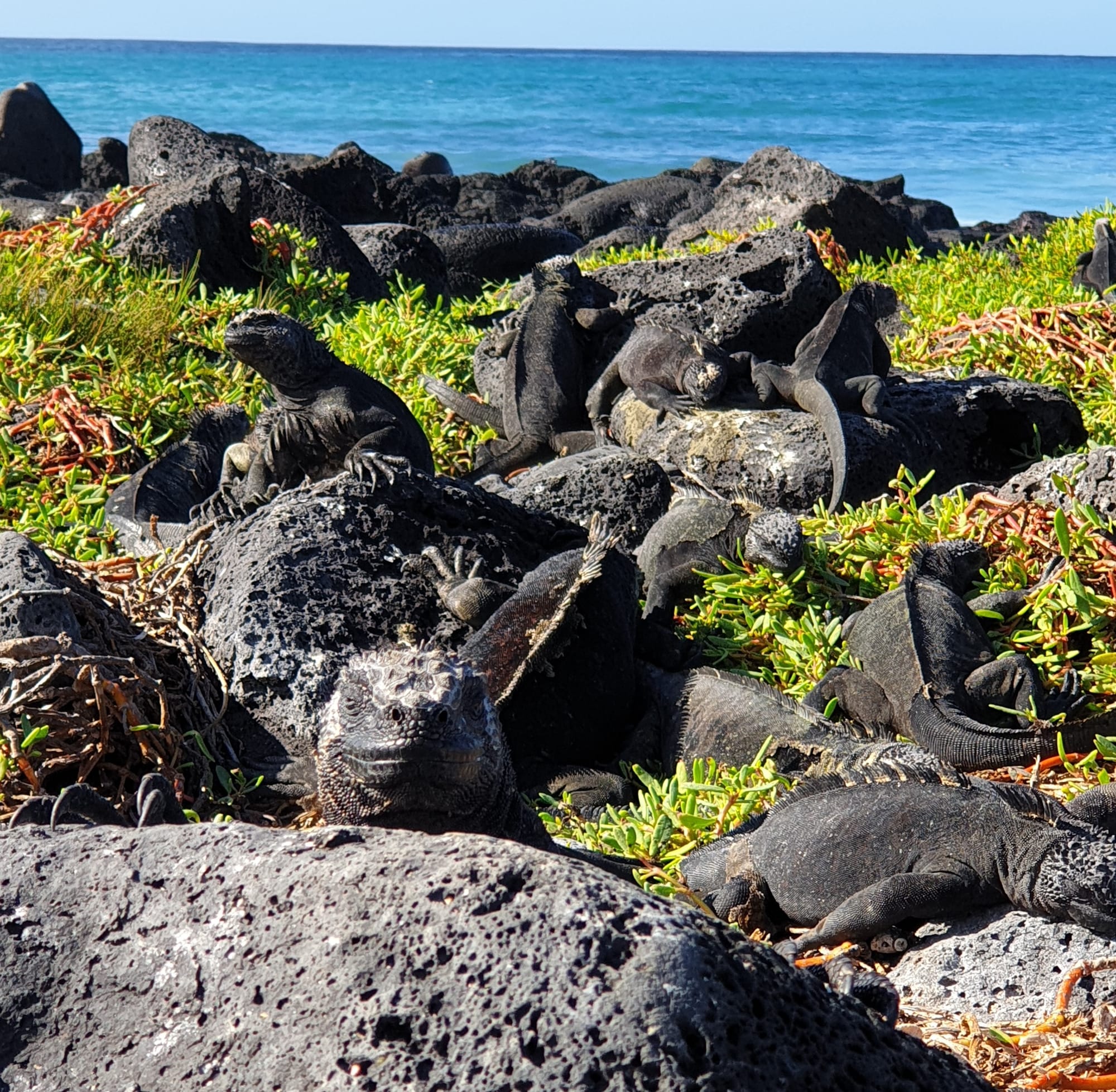
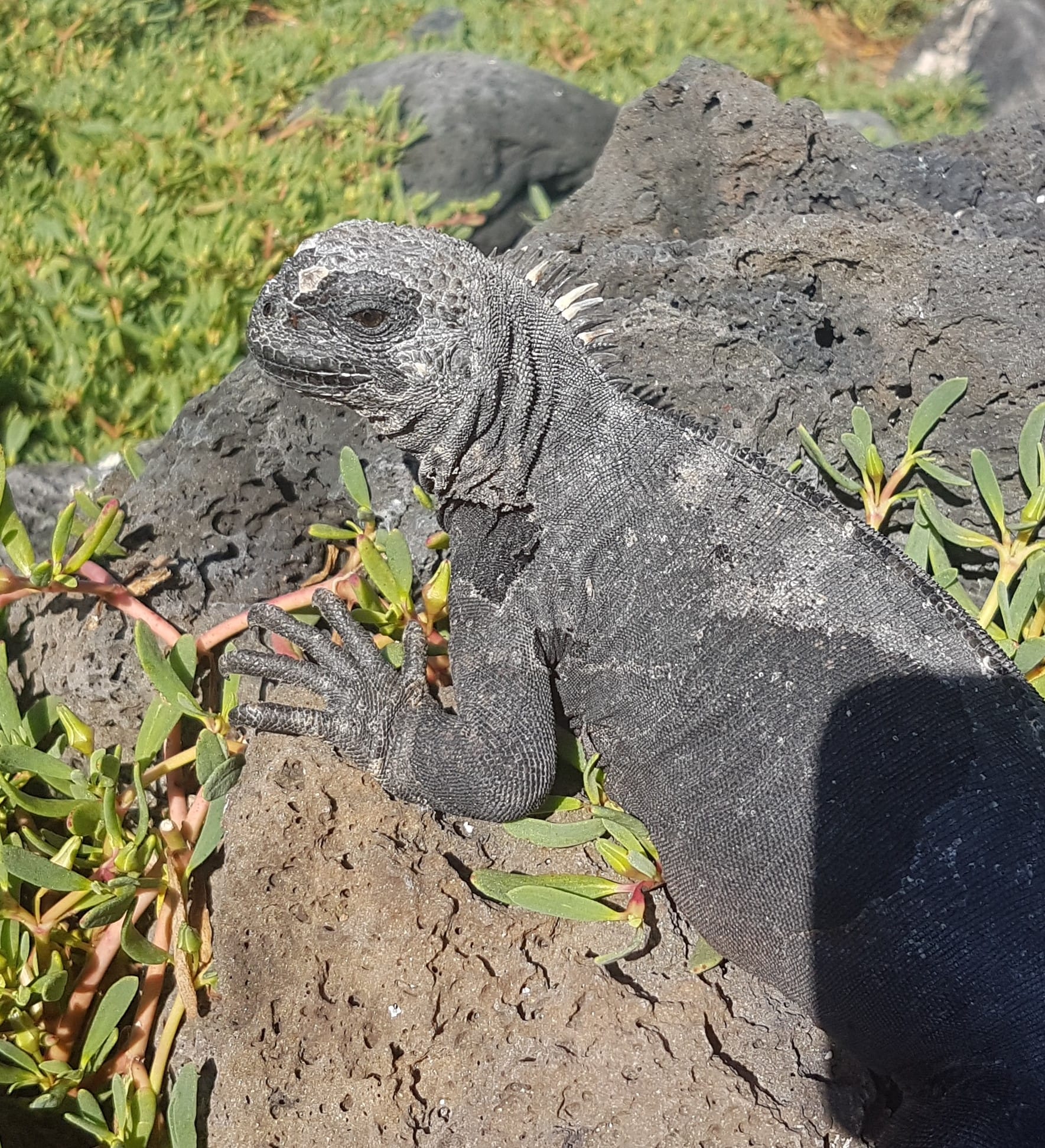
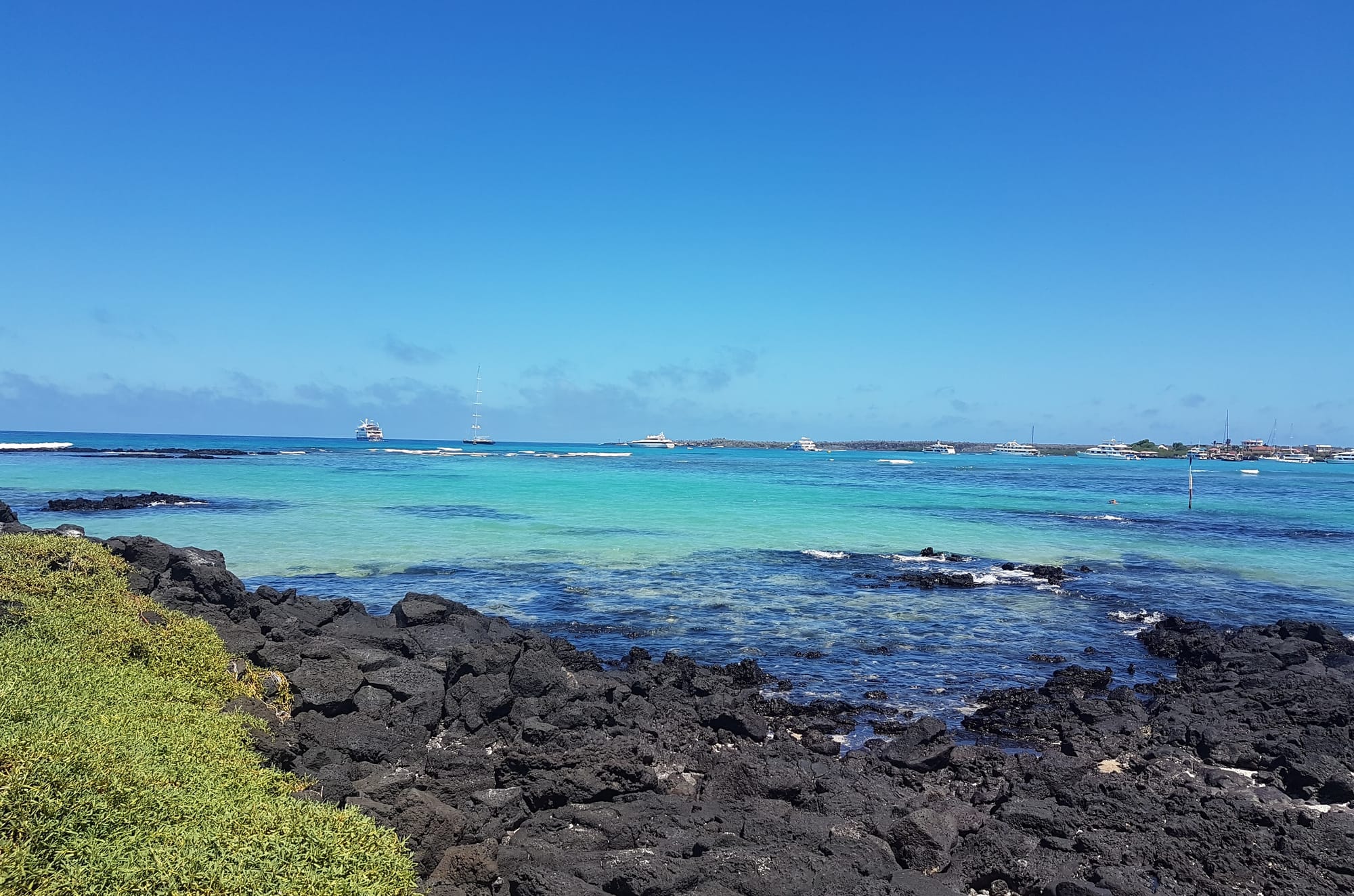
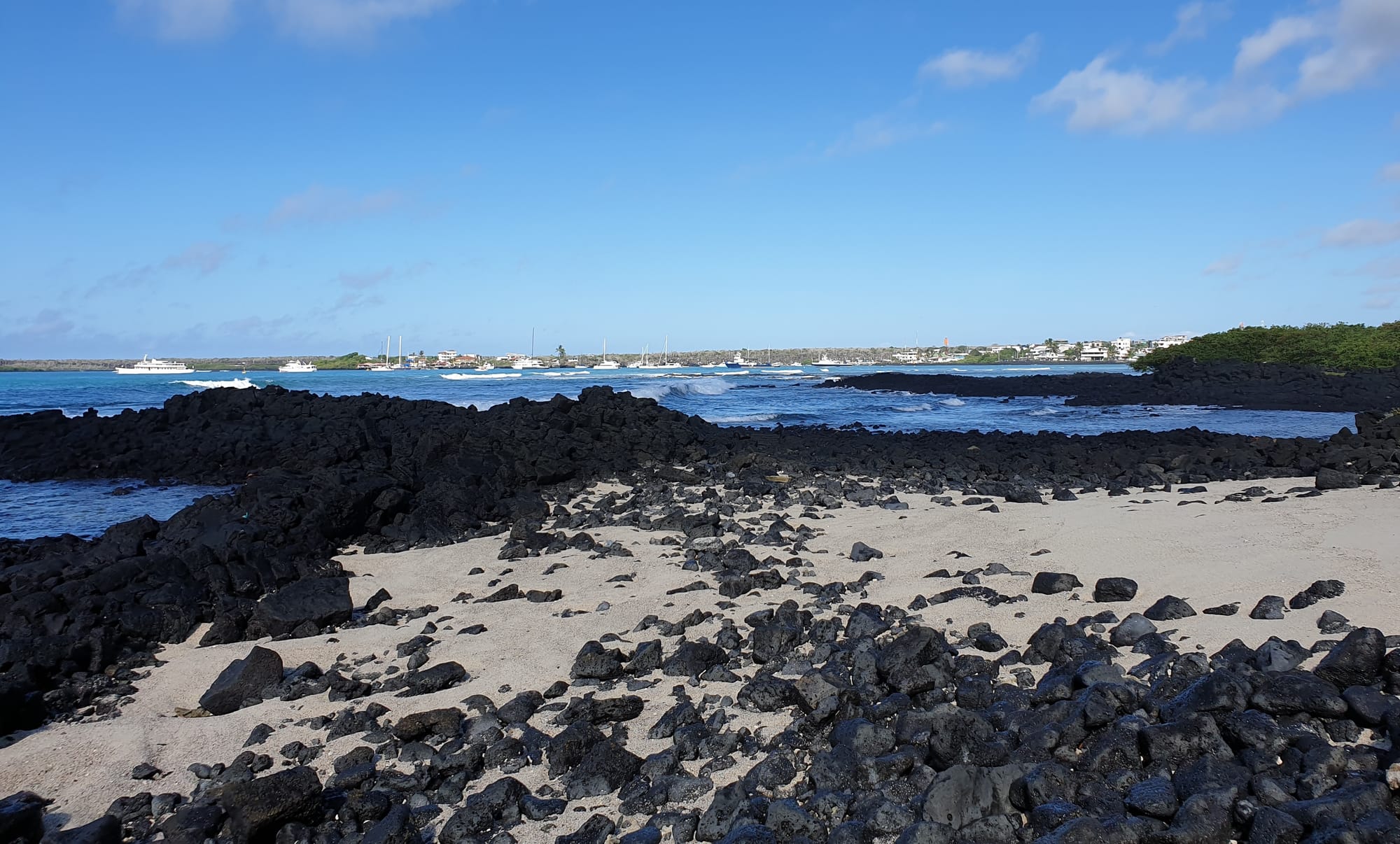
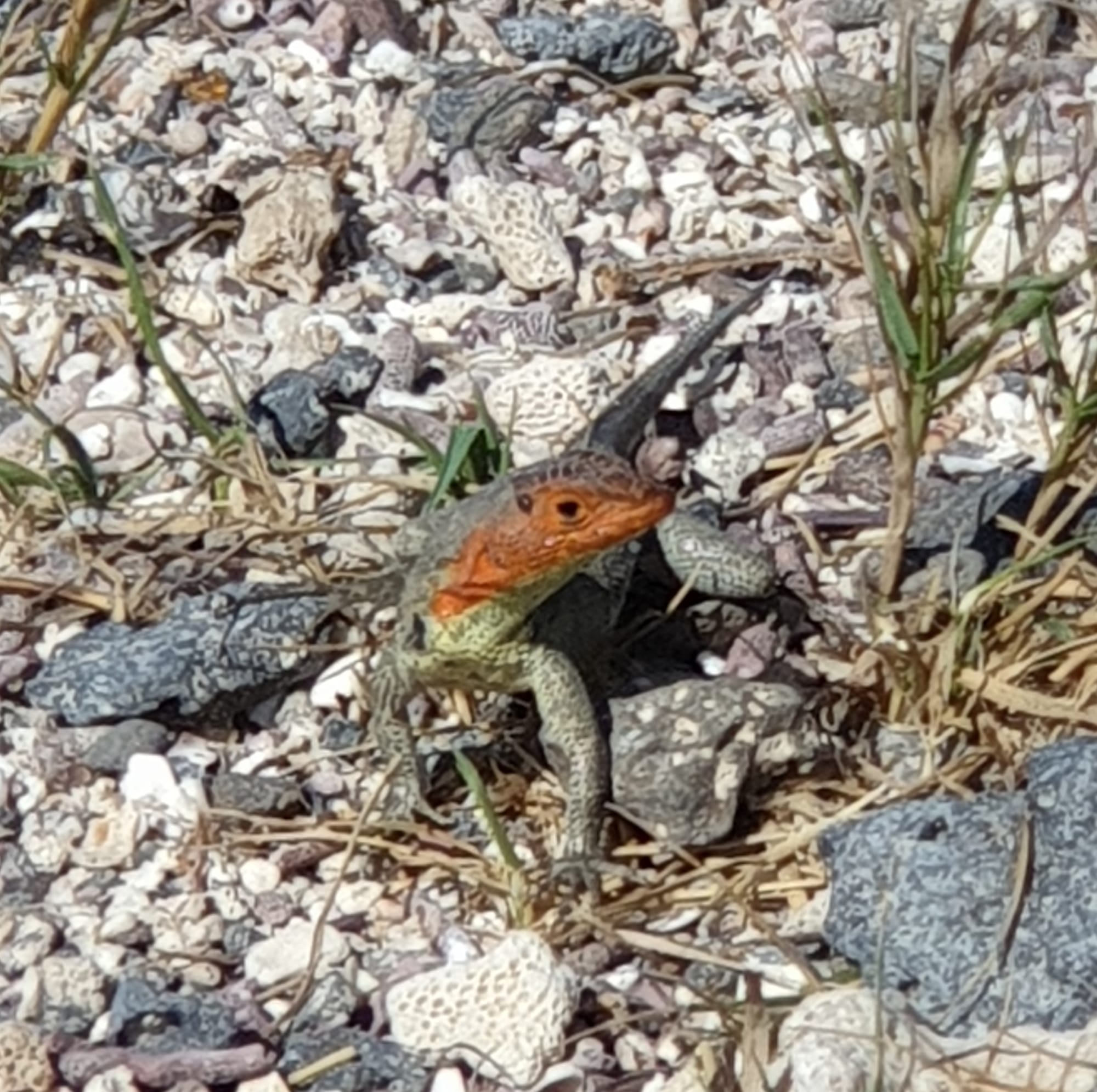
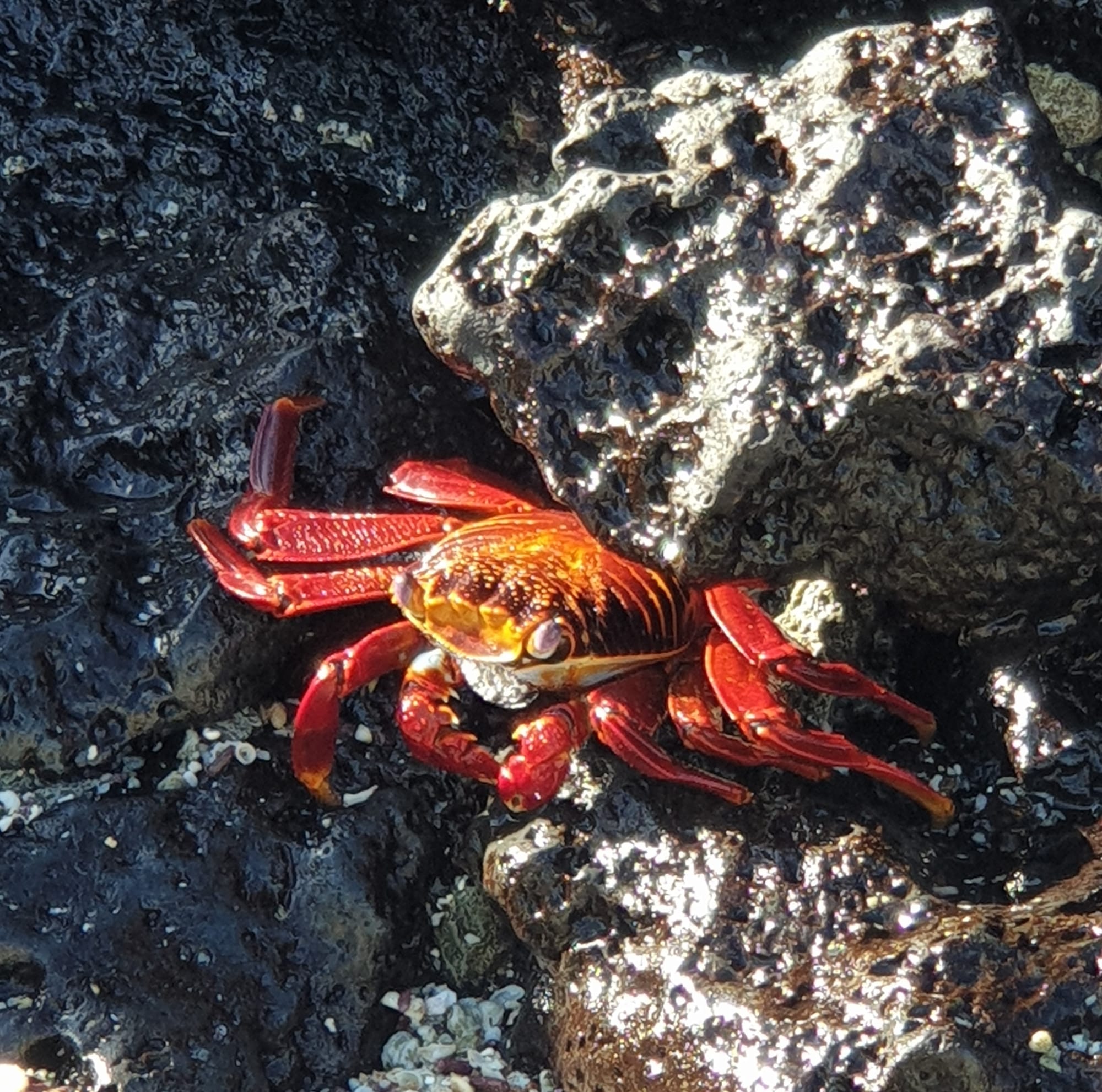
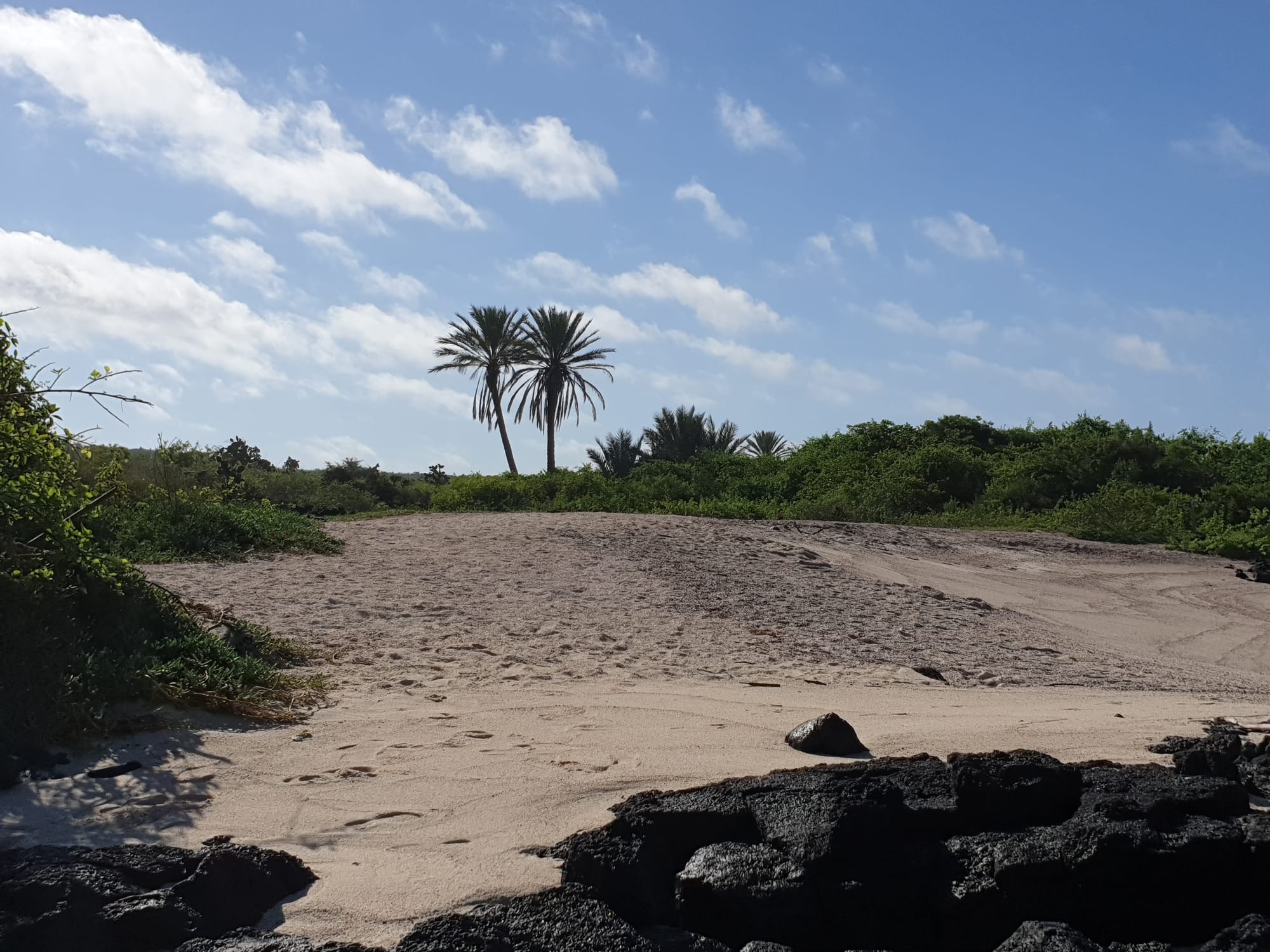
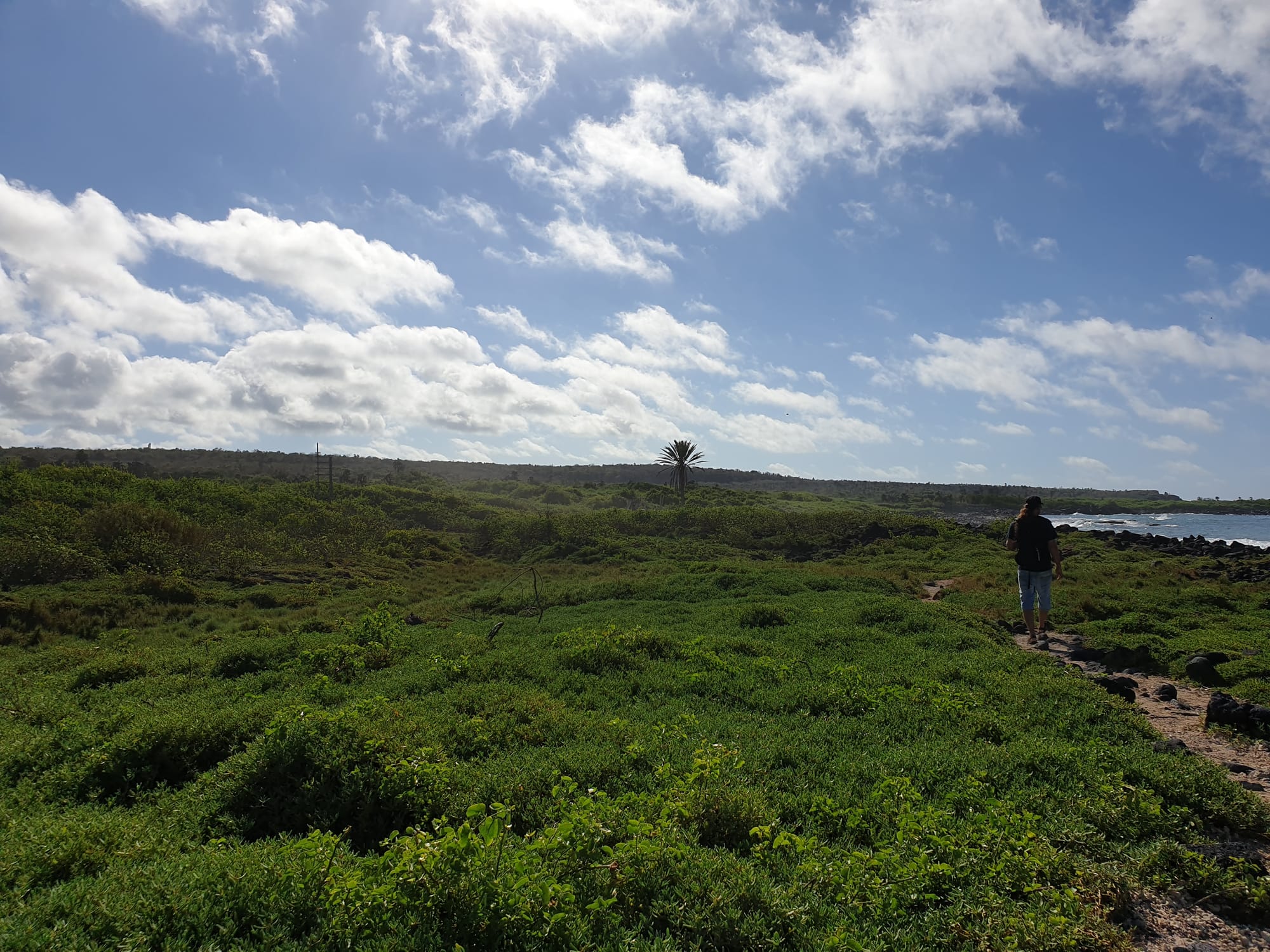
Microlophus indefatigabilis Santa Cruz lava lizard
Grapsus grapsus Sally Lightfoot Crab
Tortuga Bay, Playa Brava
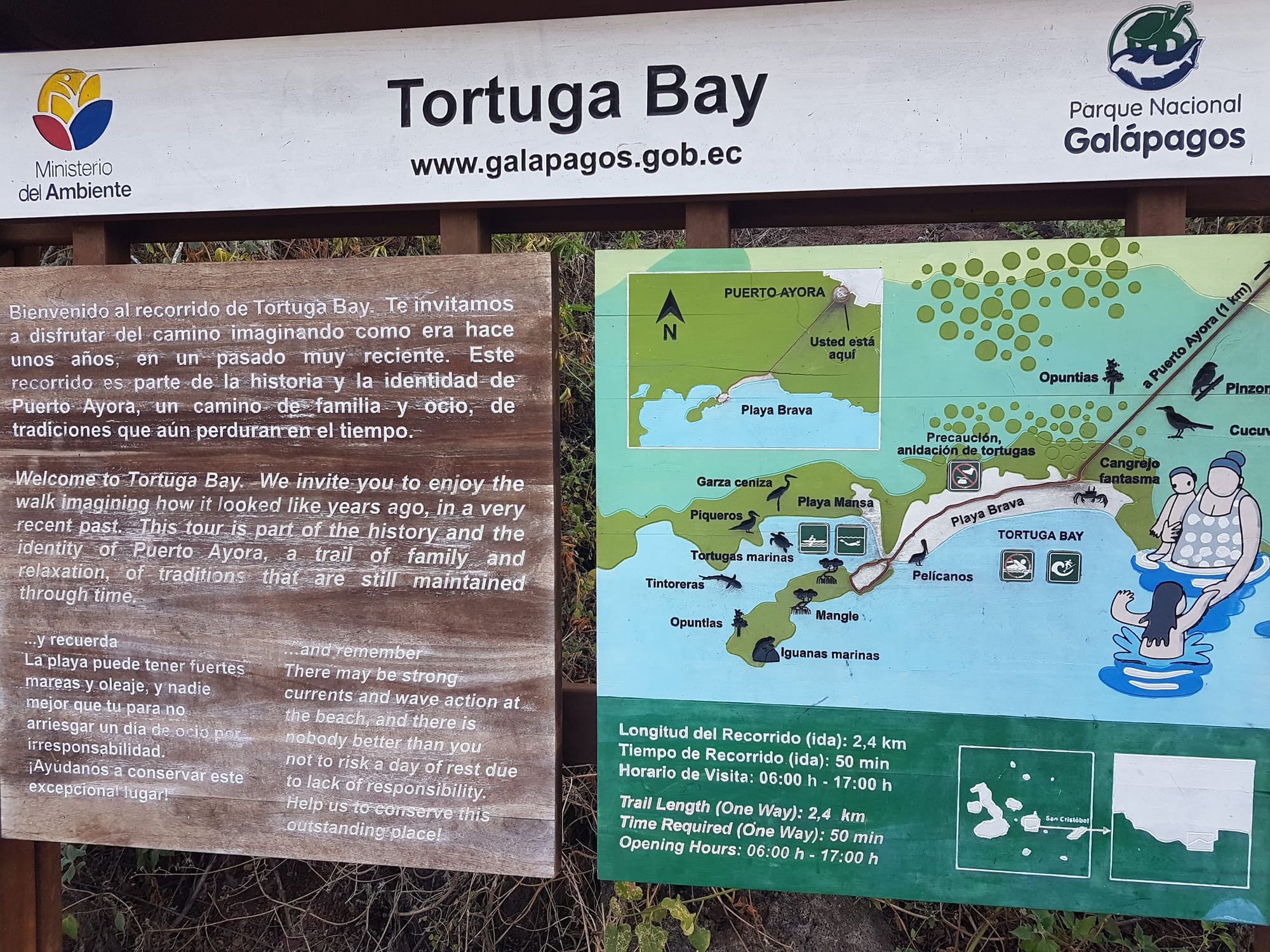
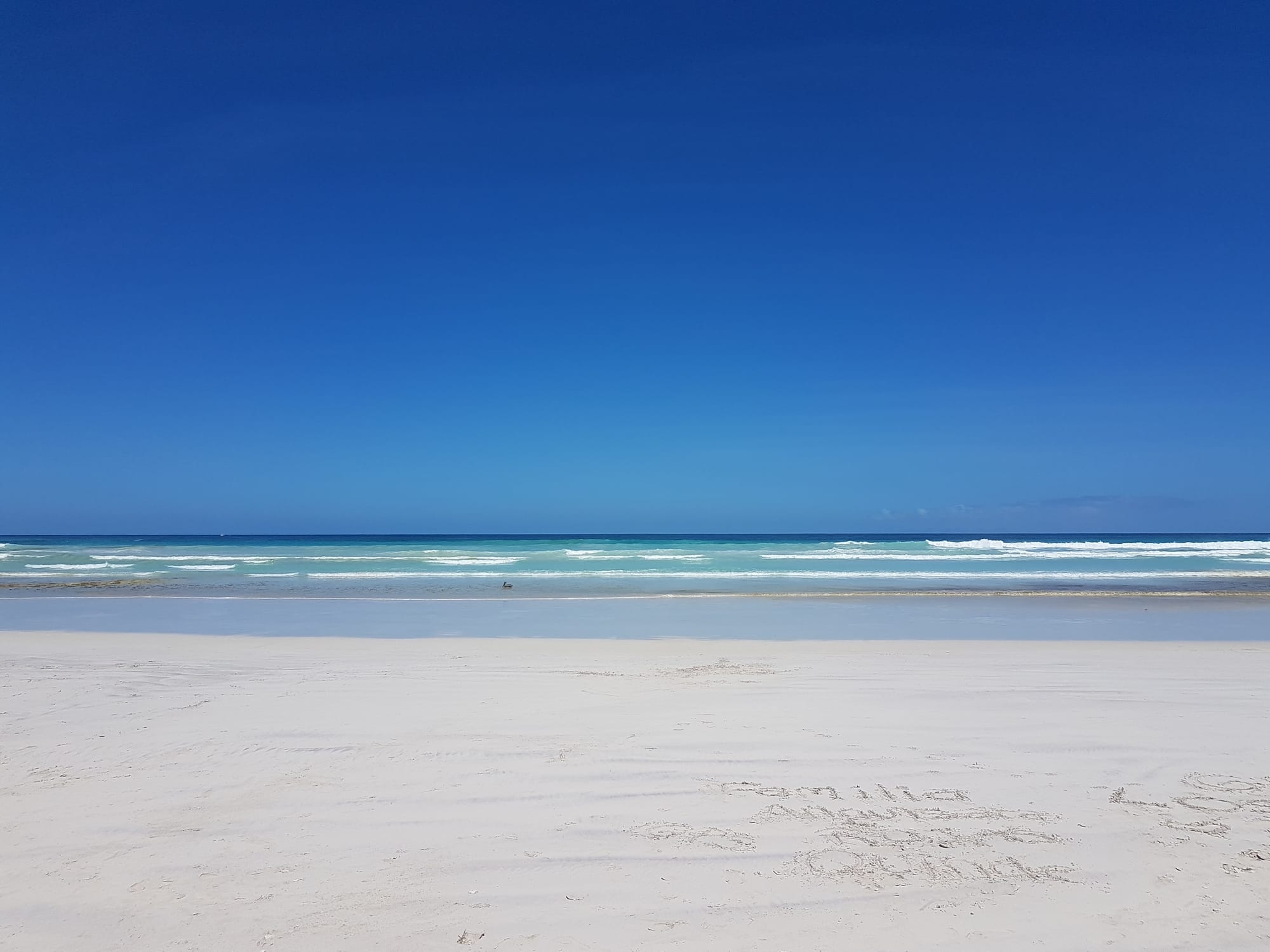
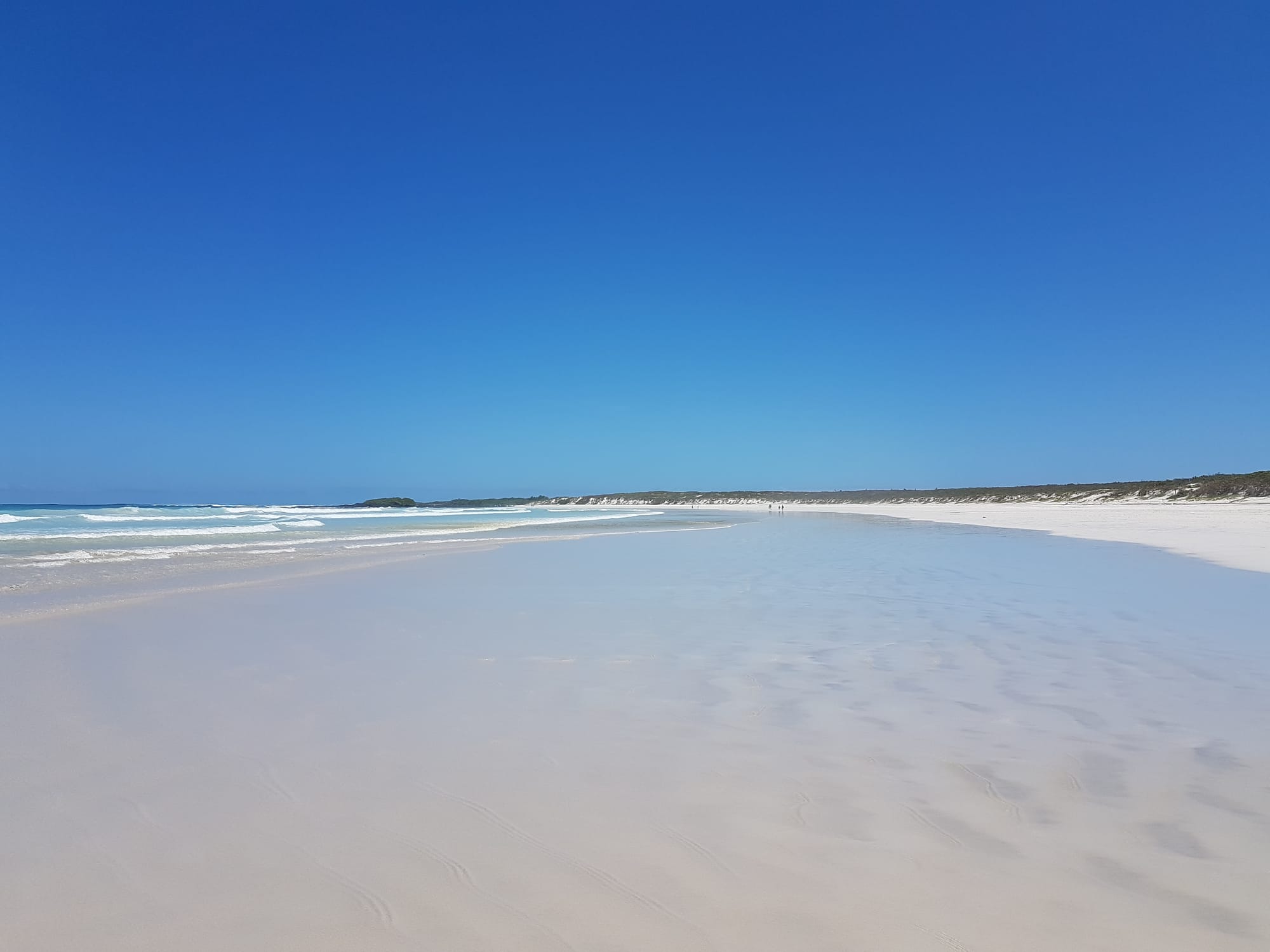
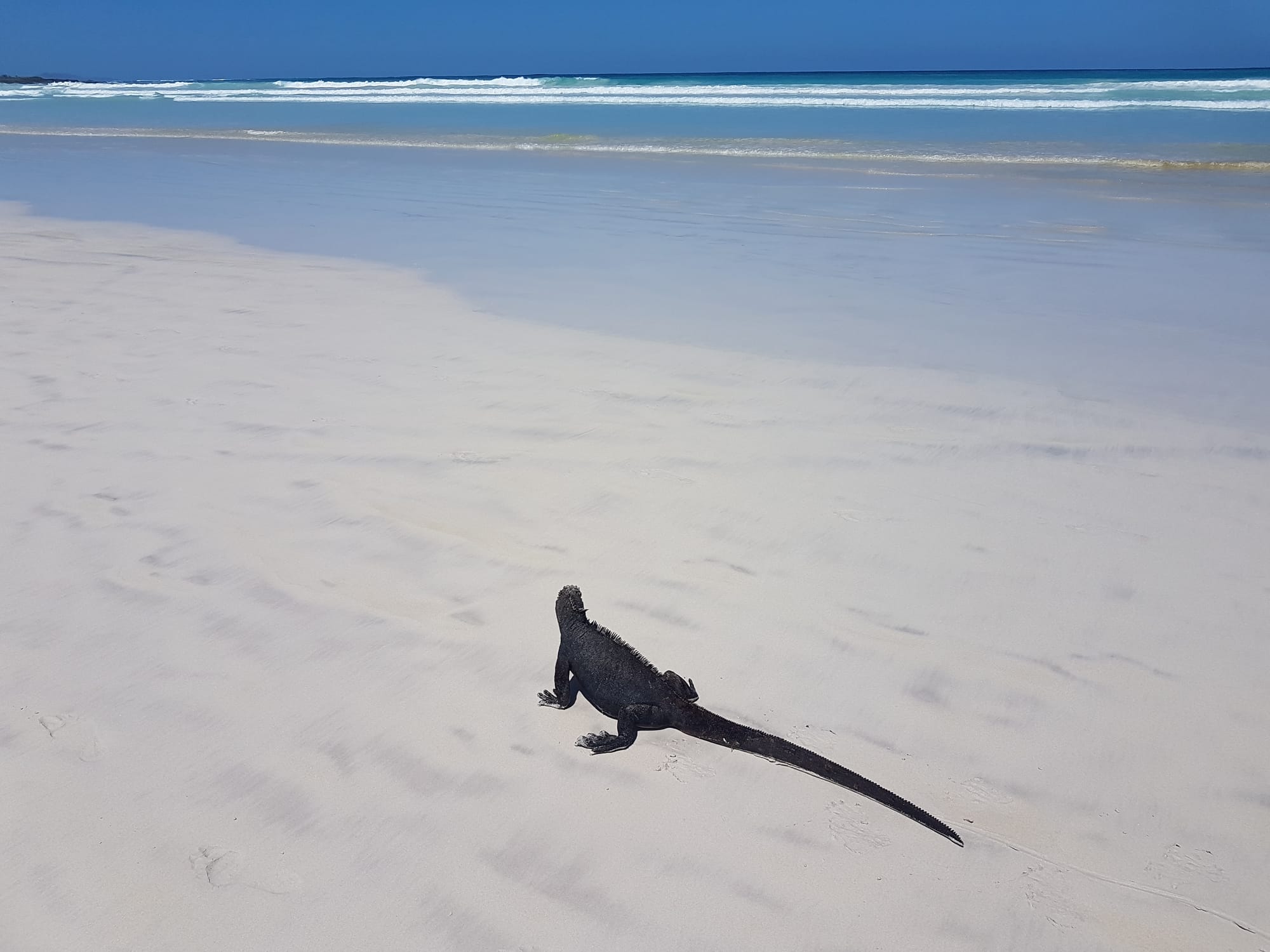
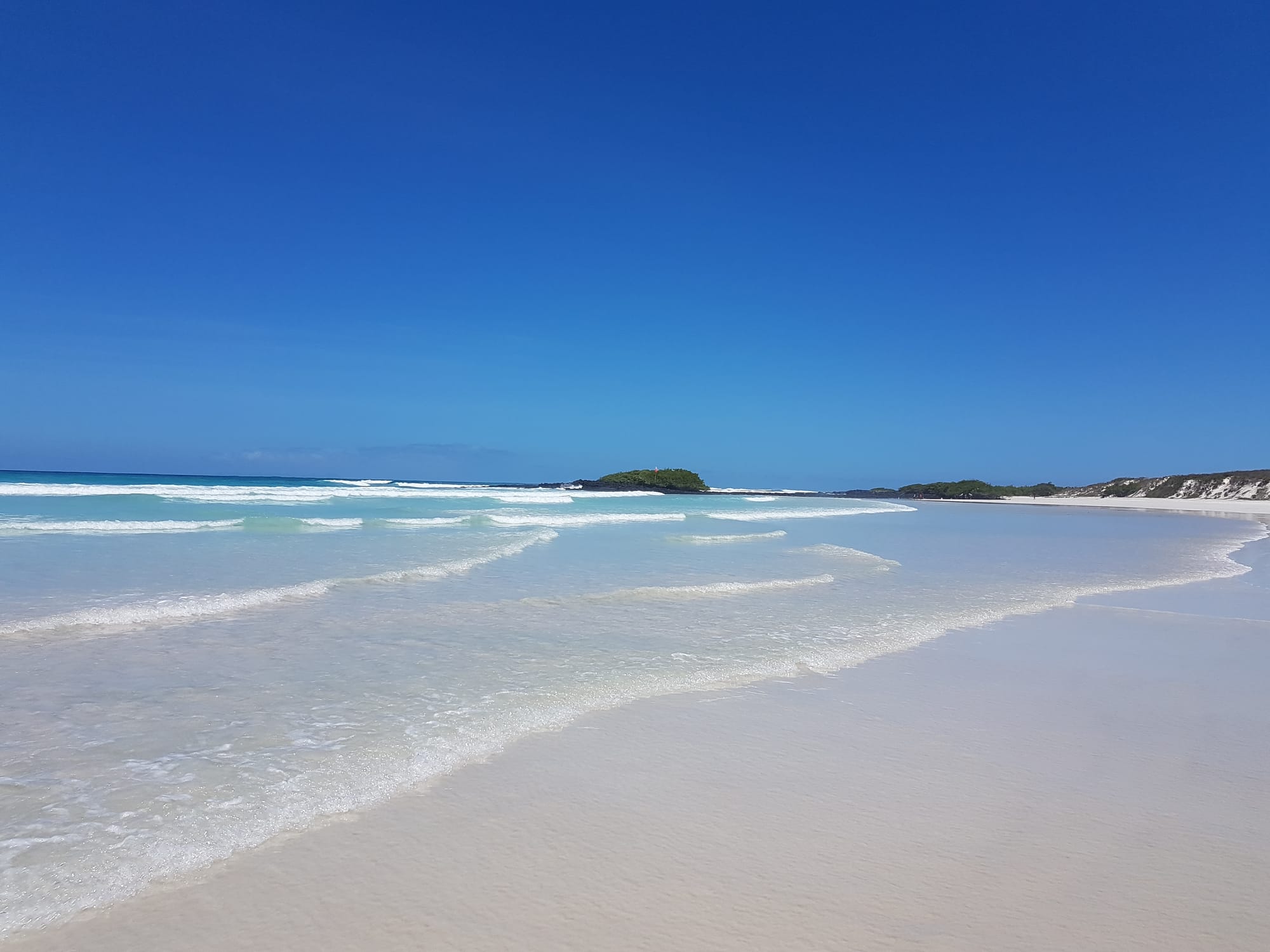
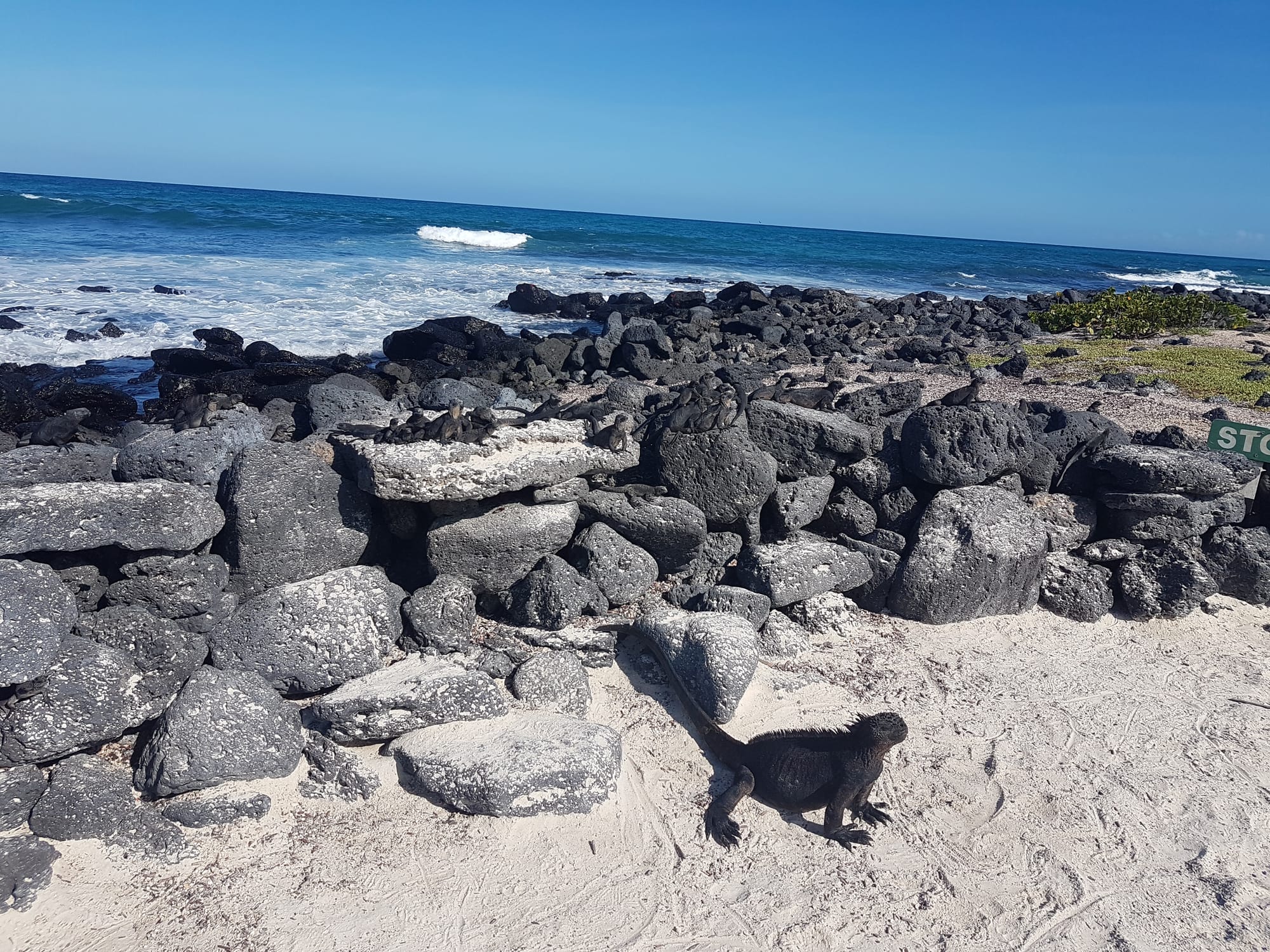
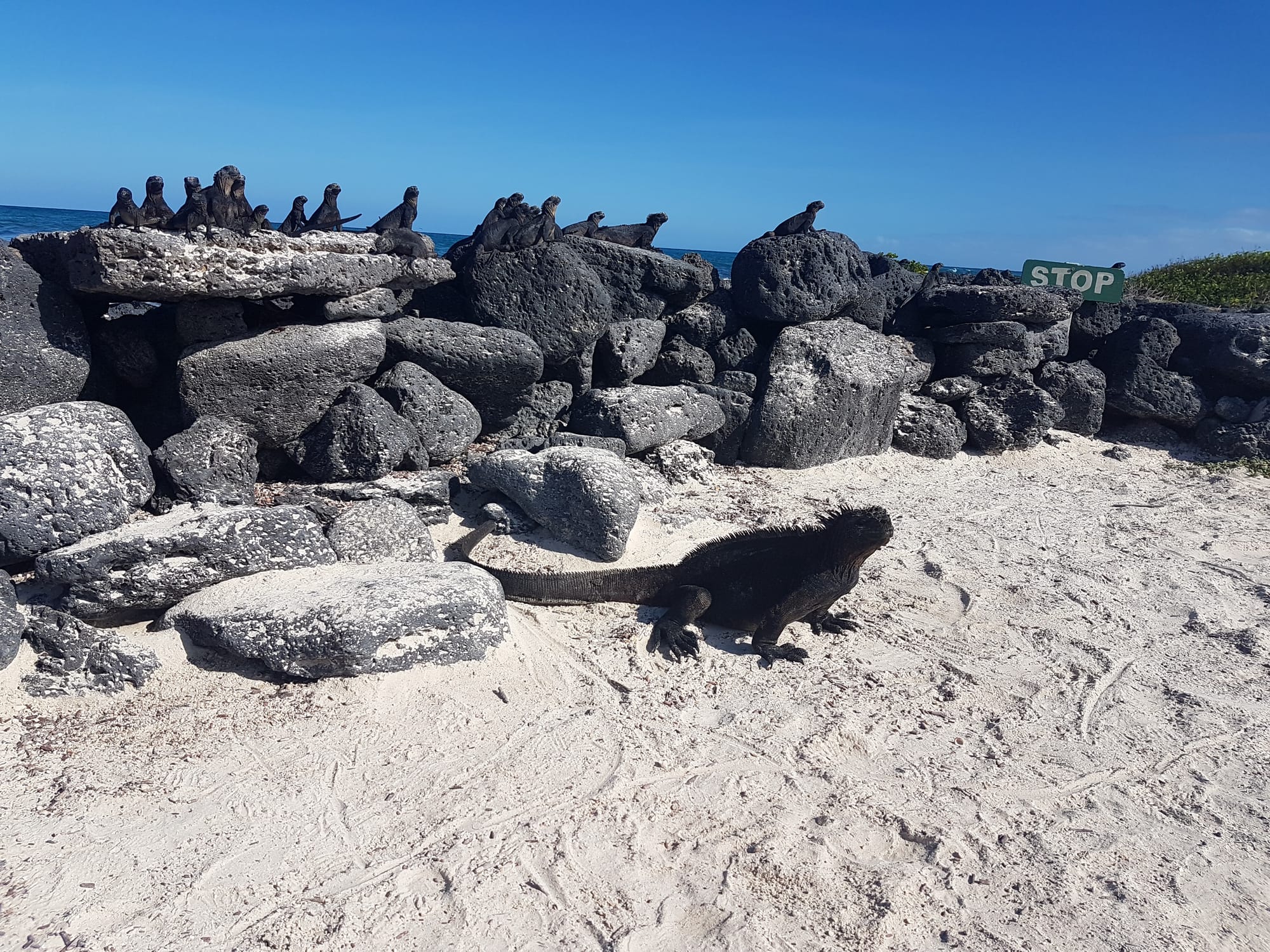
Playa Mansa
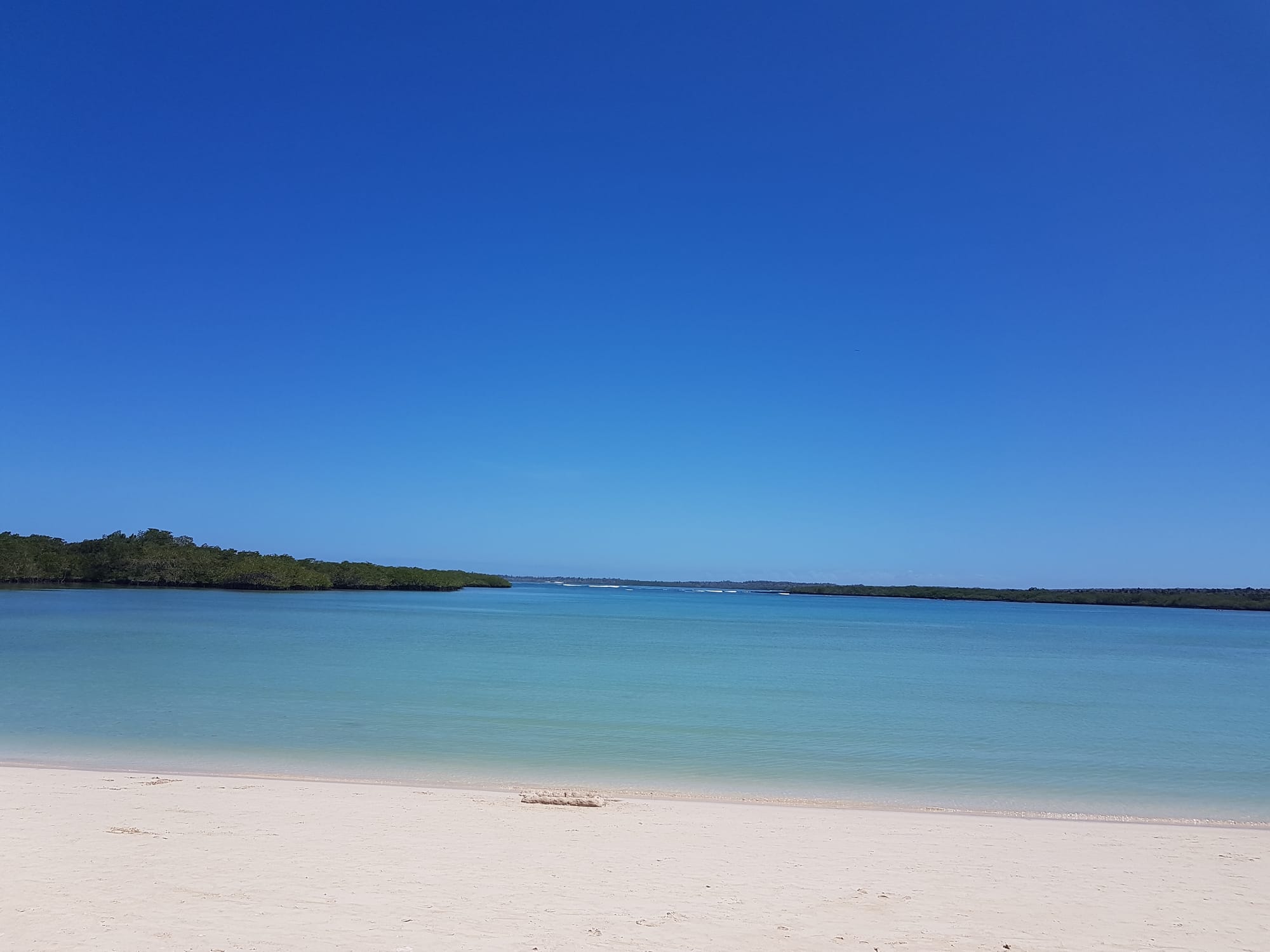
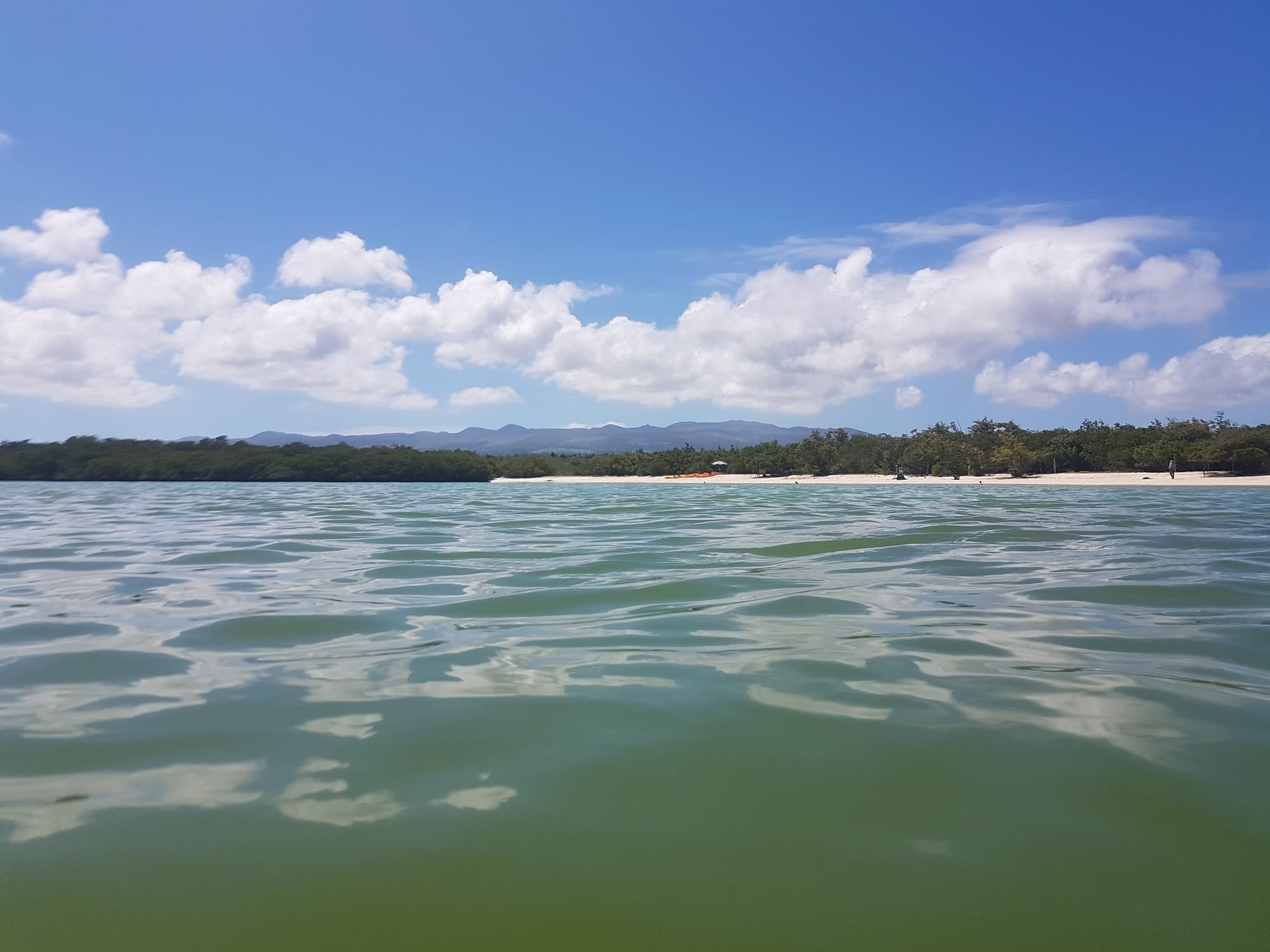
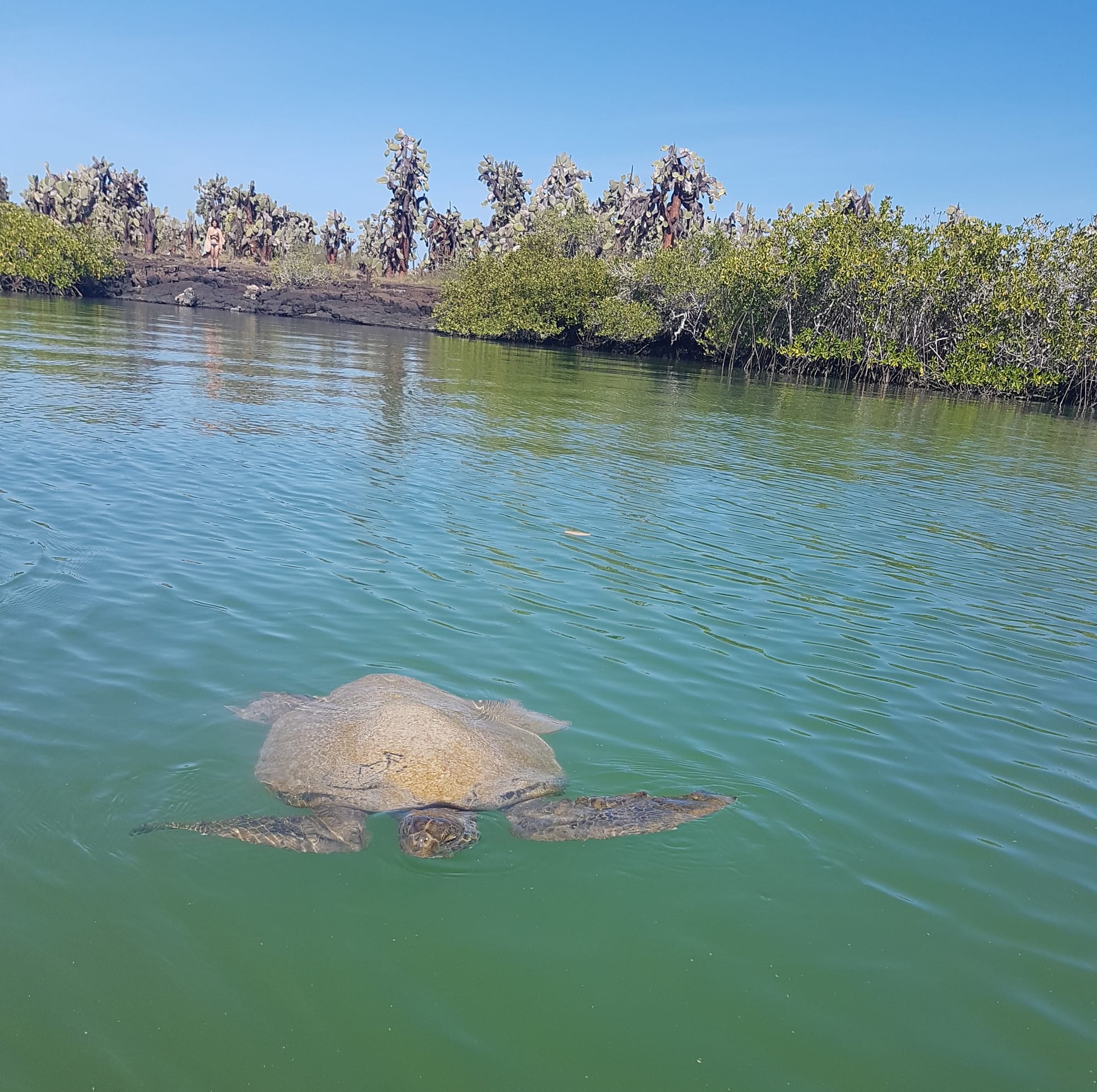
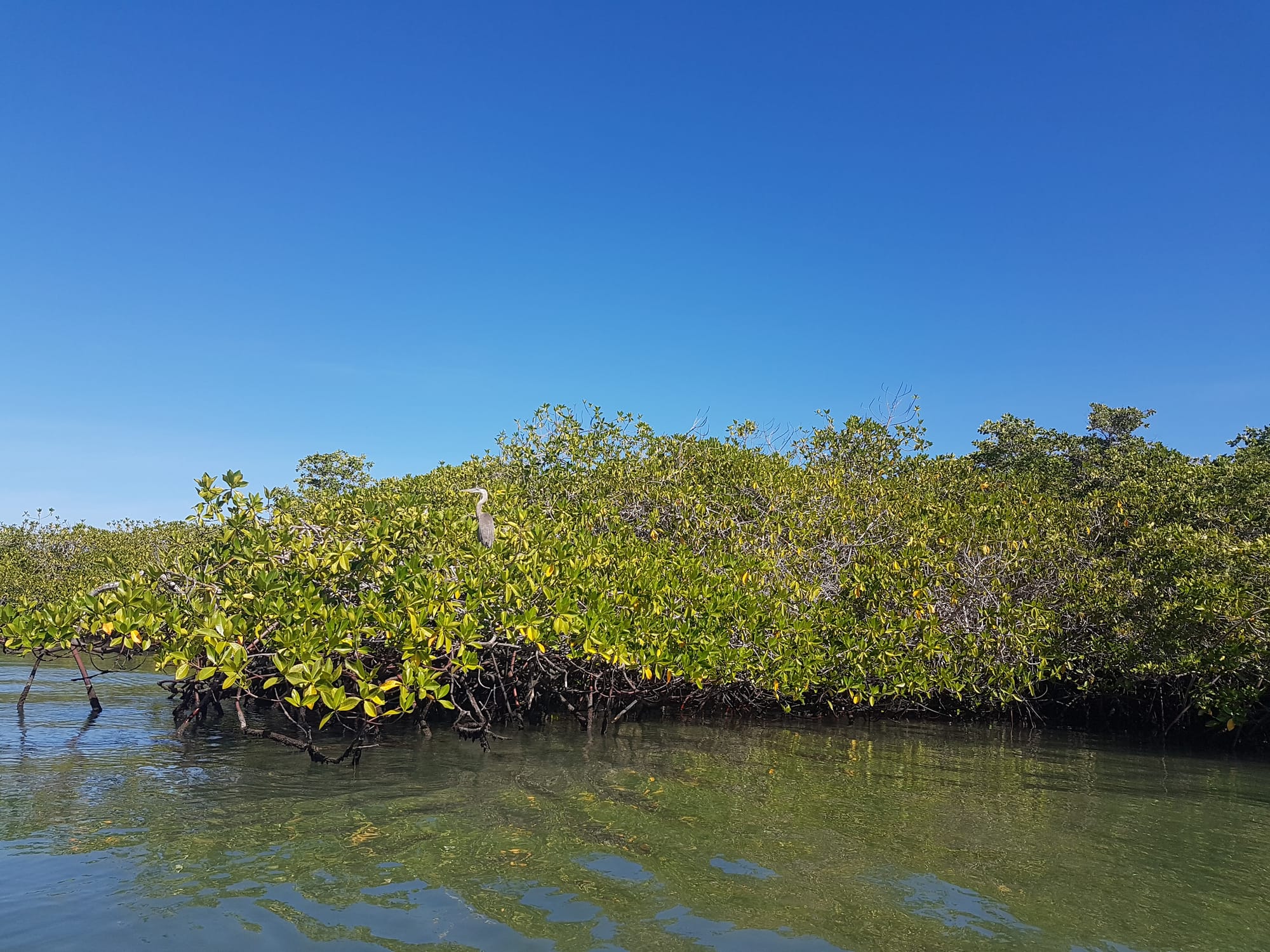
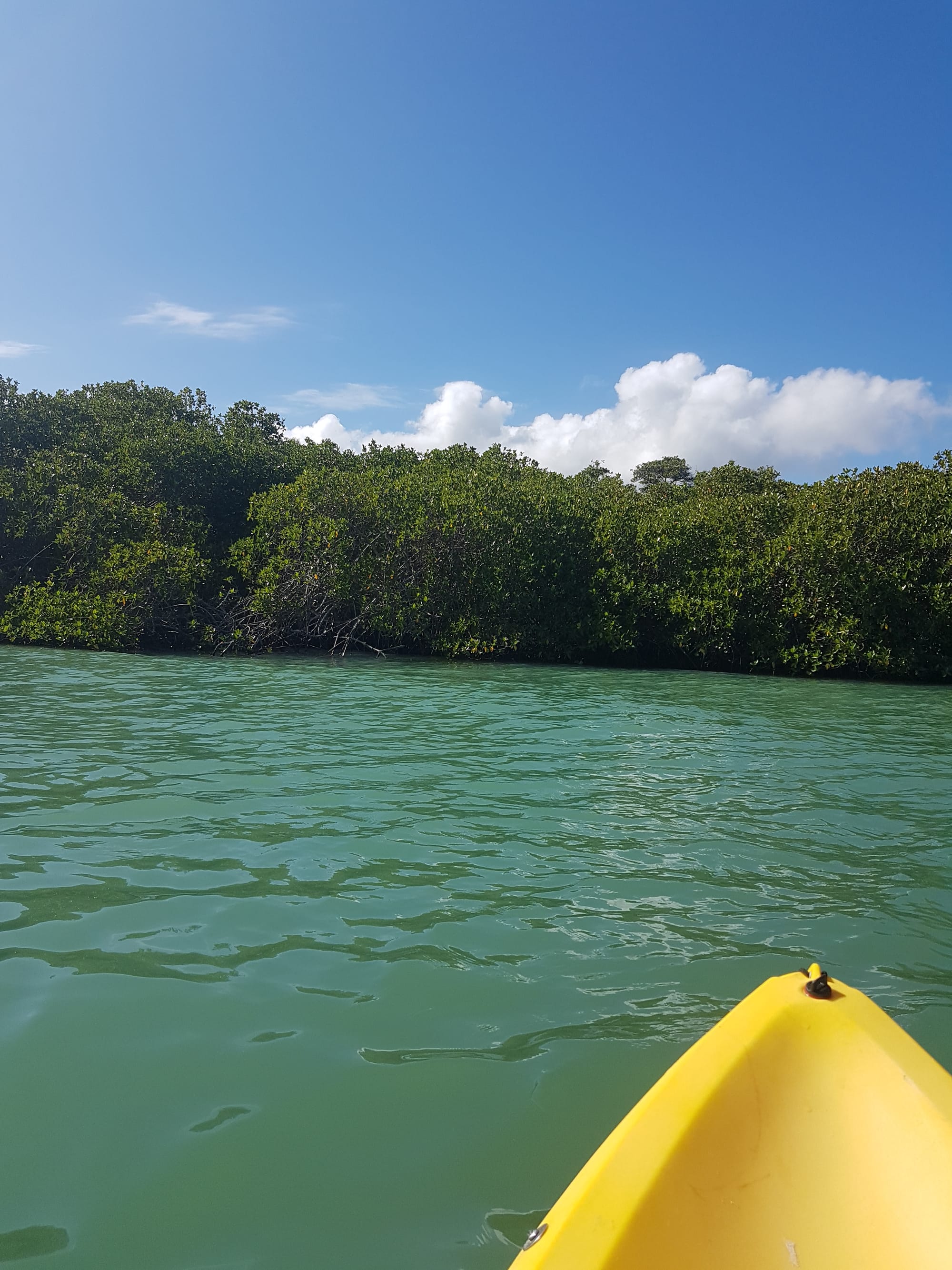
Chelonia mydas Green Sea Turtle
Laguncularia racemosa White Mangrove
Las Ninfas Lagoon
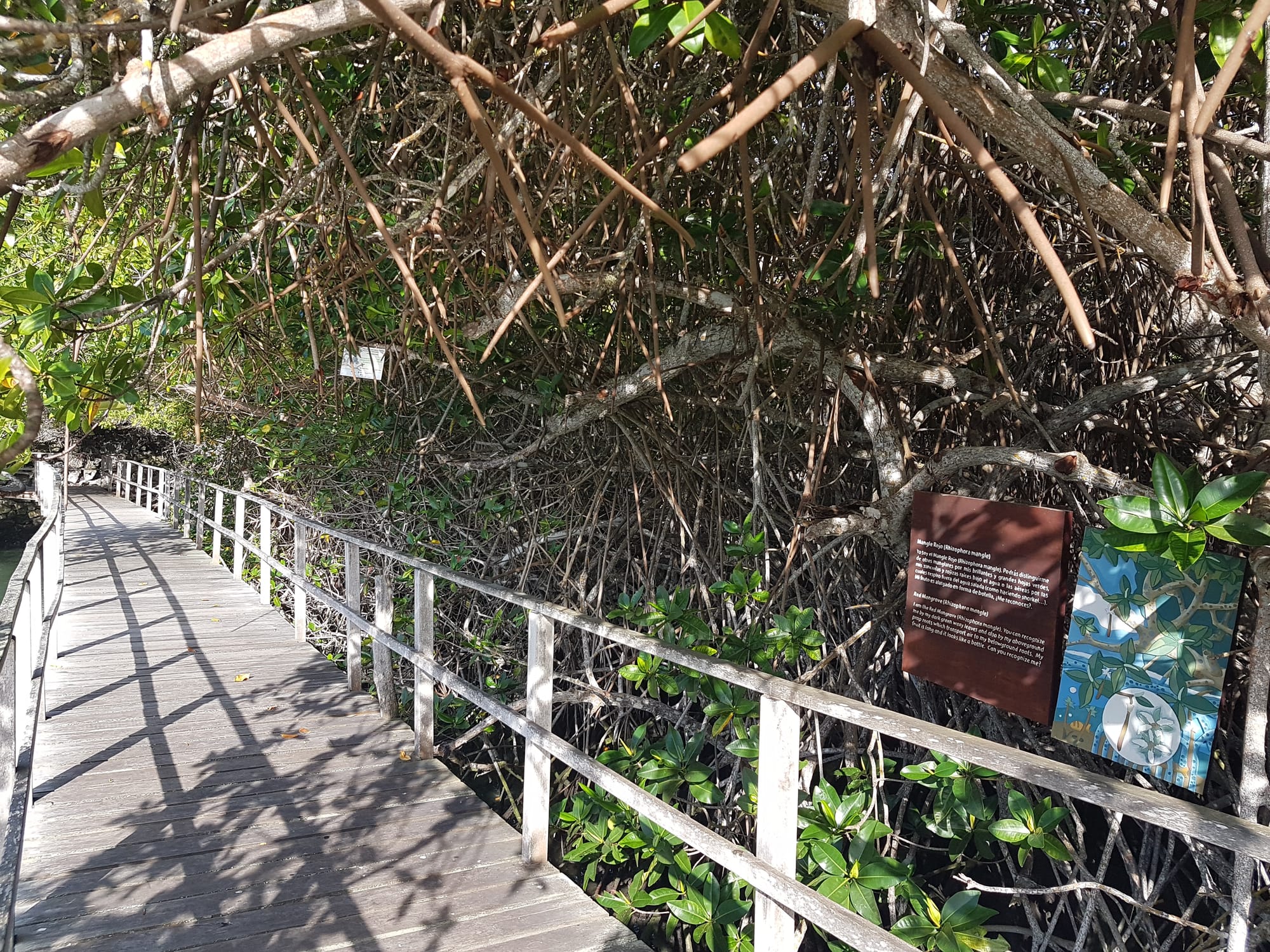
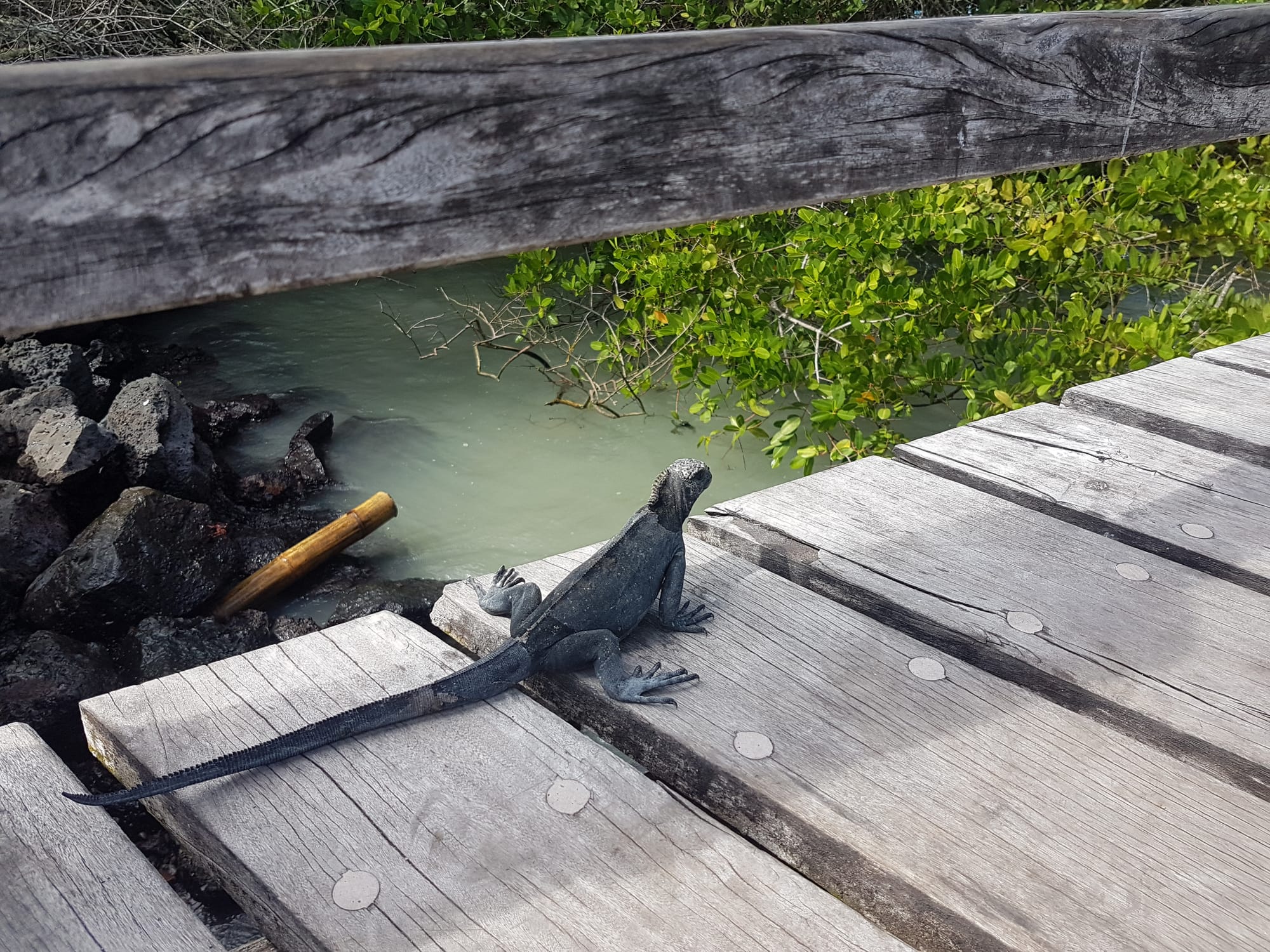
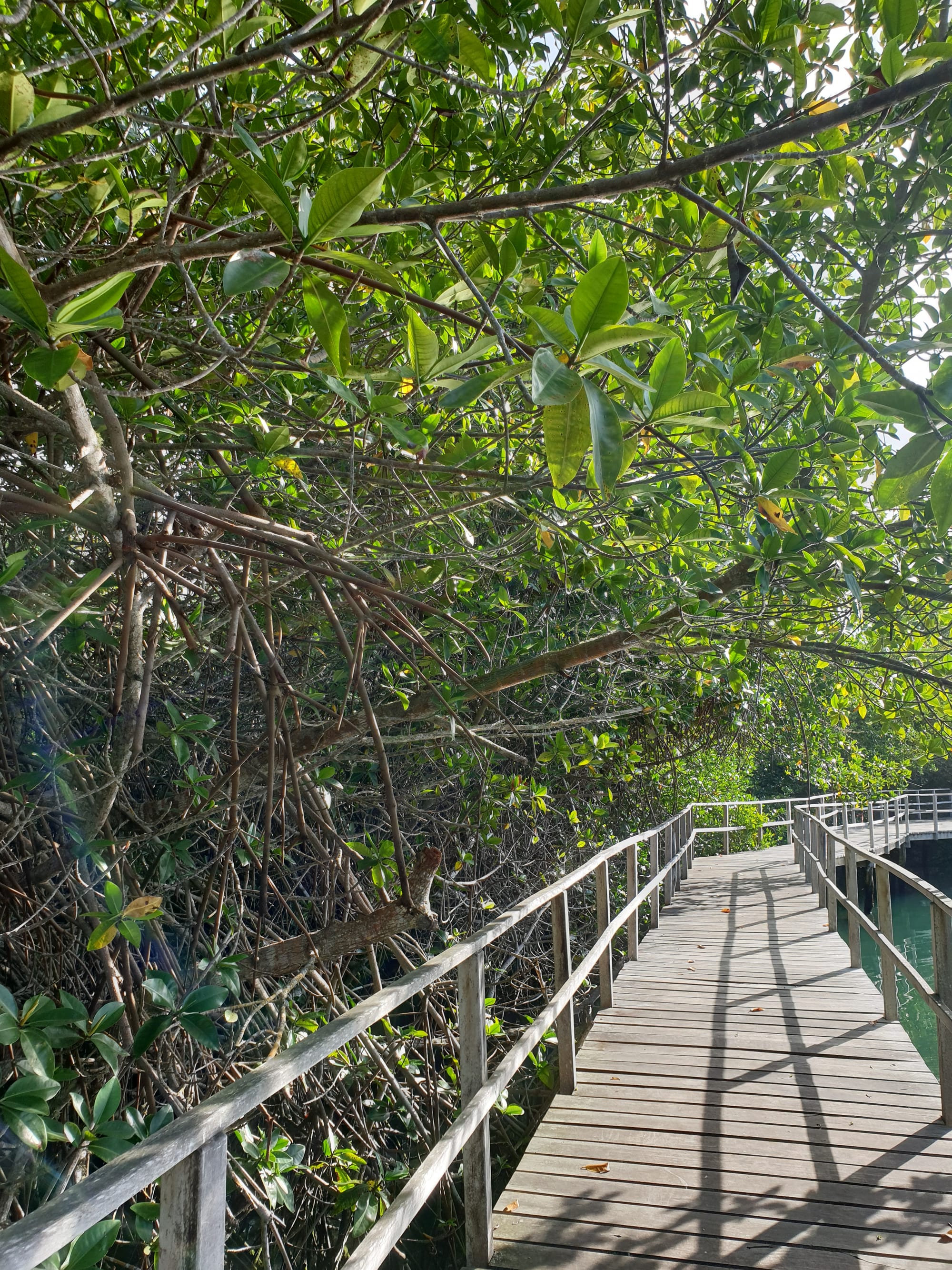
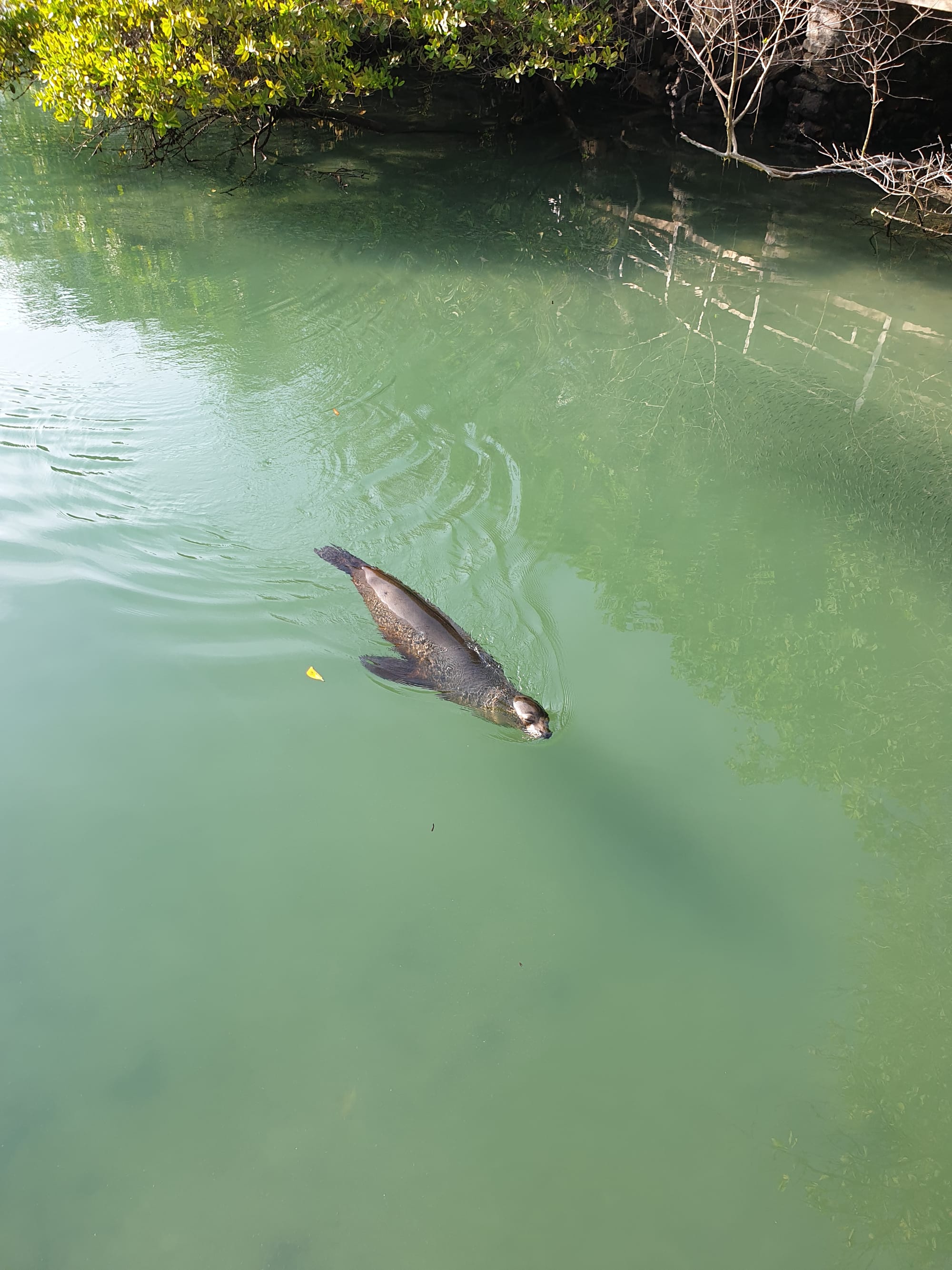
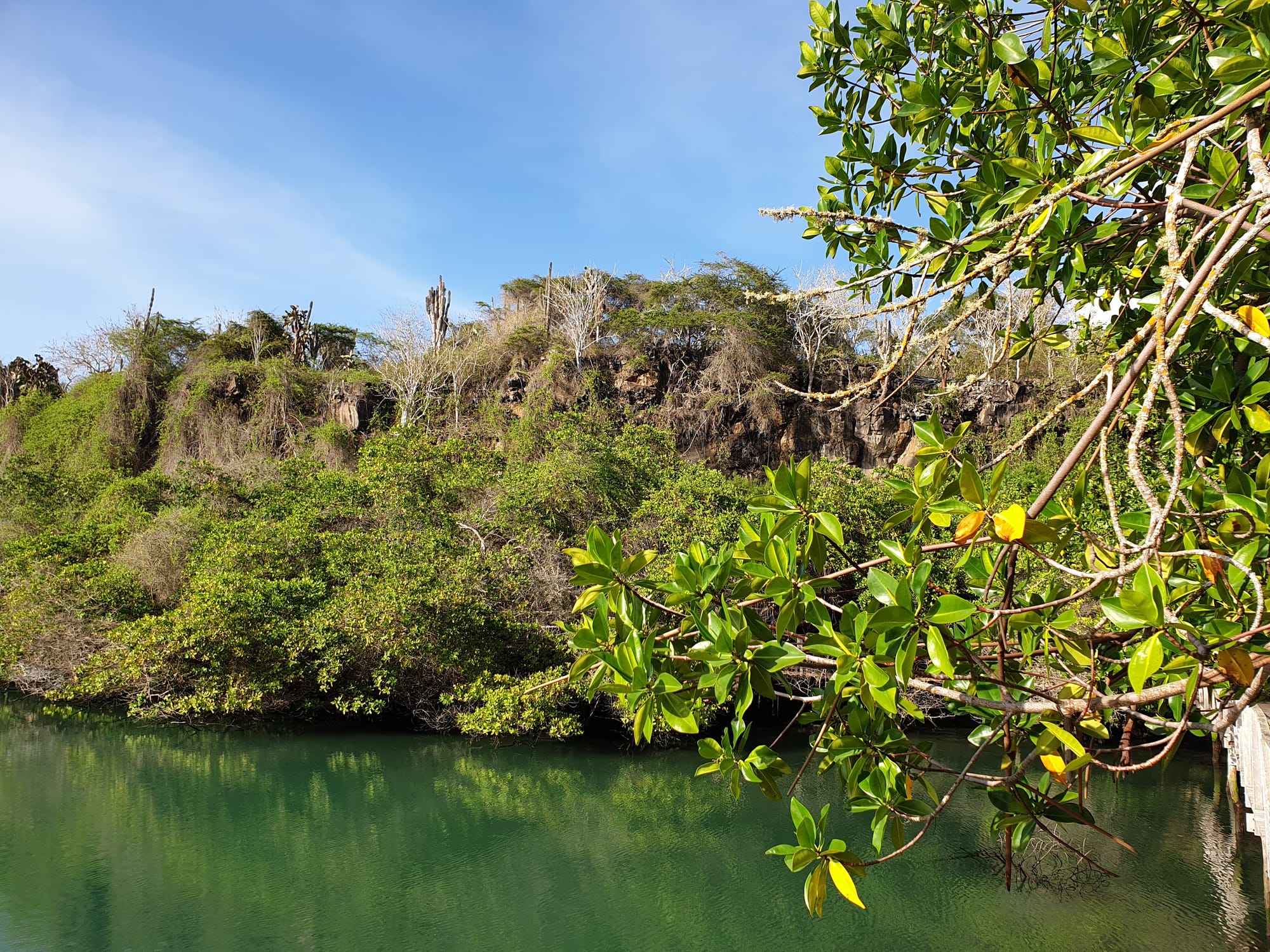
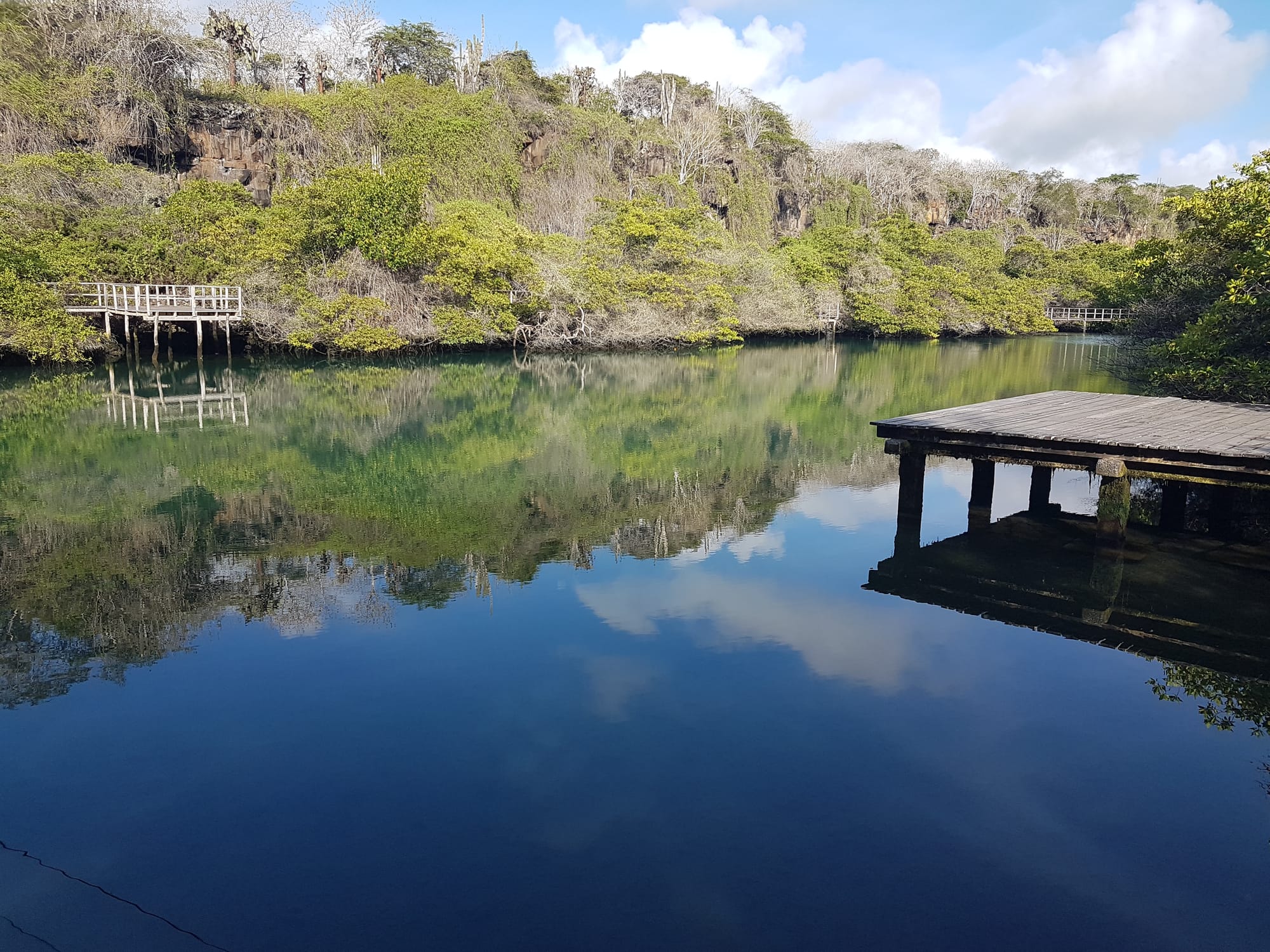
Puerto Ayora
